4th Annual Journalism Awards Winners
Congratulations to the winners of the Sacramento Press Club’s 4th annual awards for politics and policy reporting in California. The best work from 2023 was honored at our journalism awards dinner on April 11, 2024.
Thank you to José Luis Villegas for documenting this special evening. You can see all of his photos here.
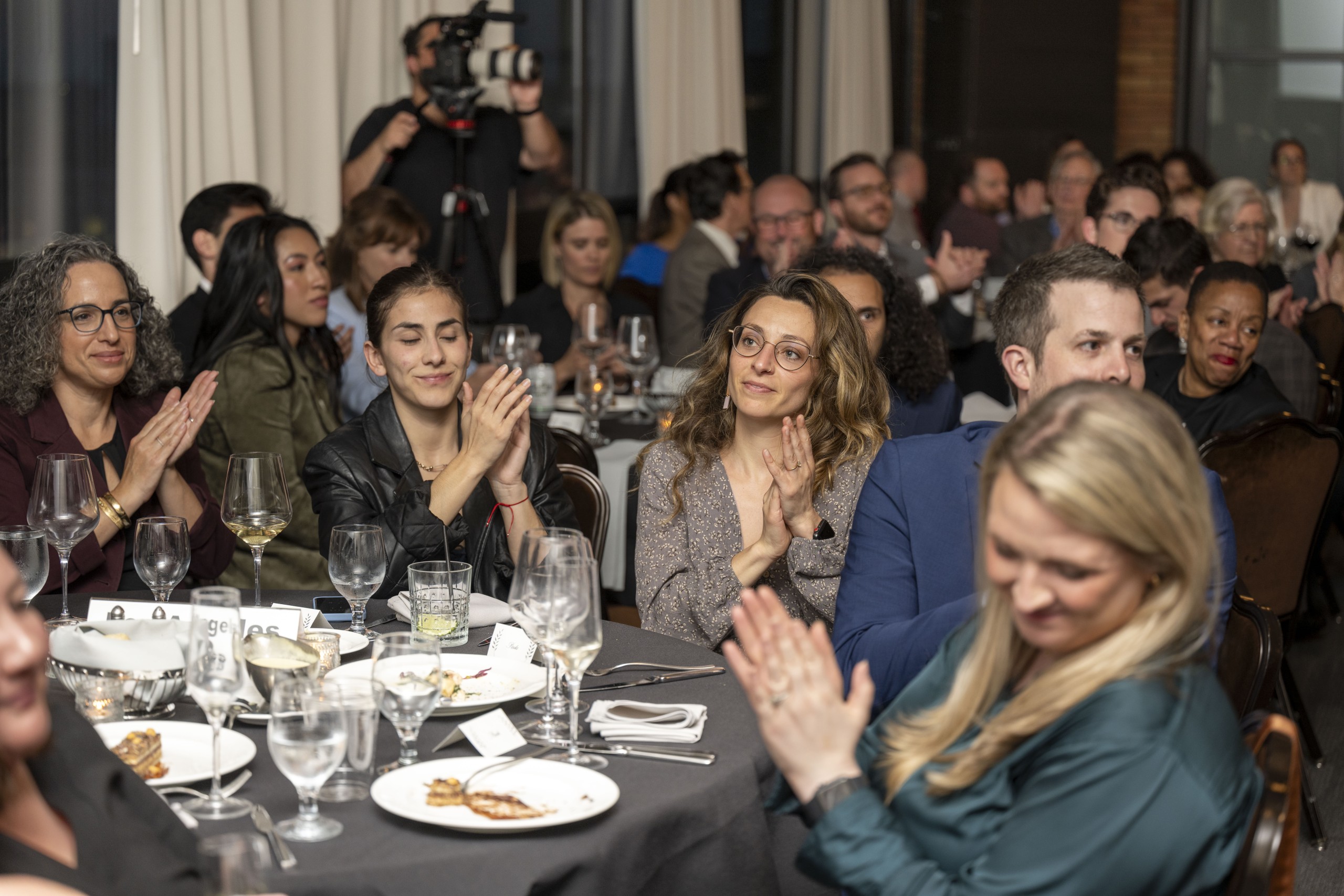

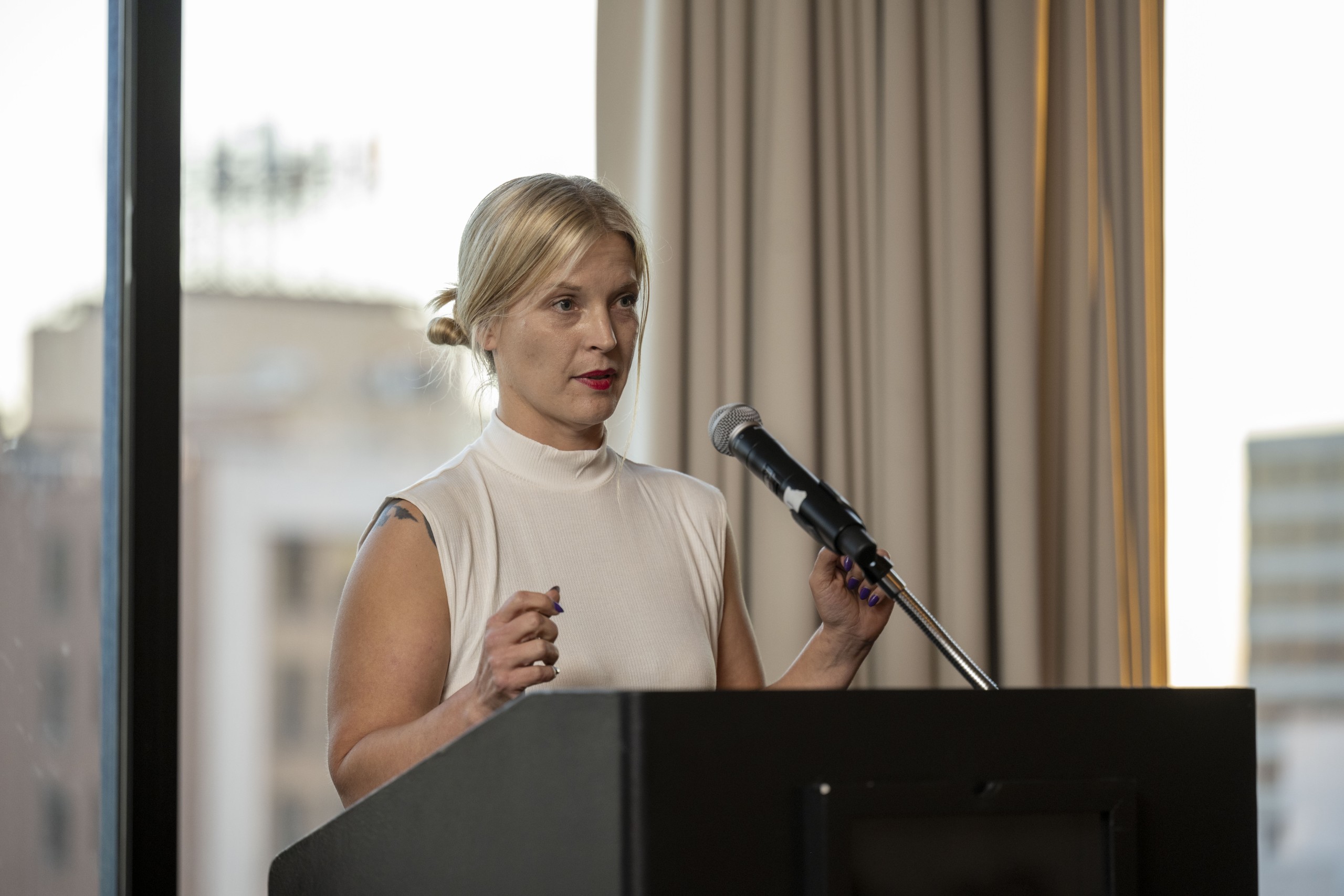
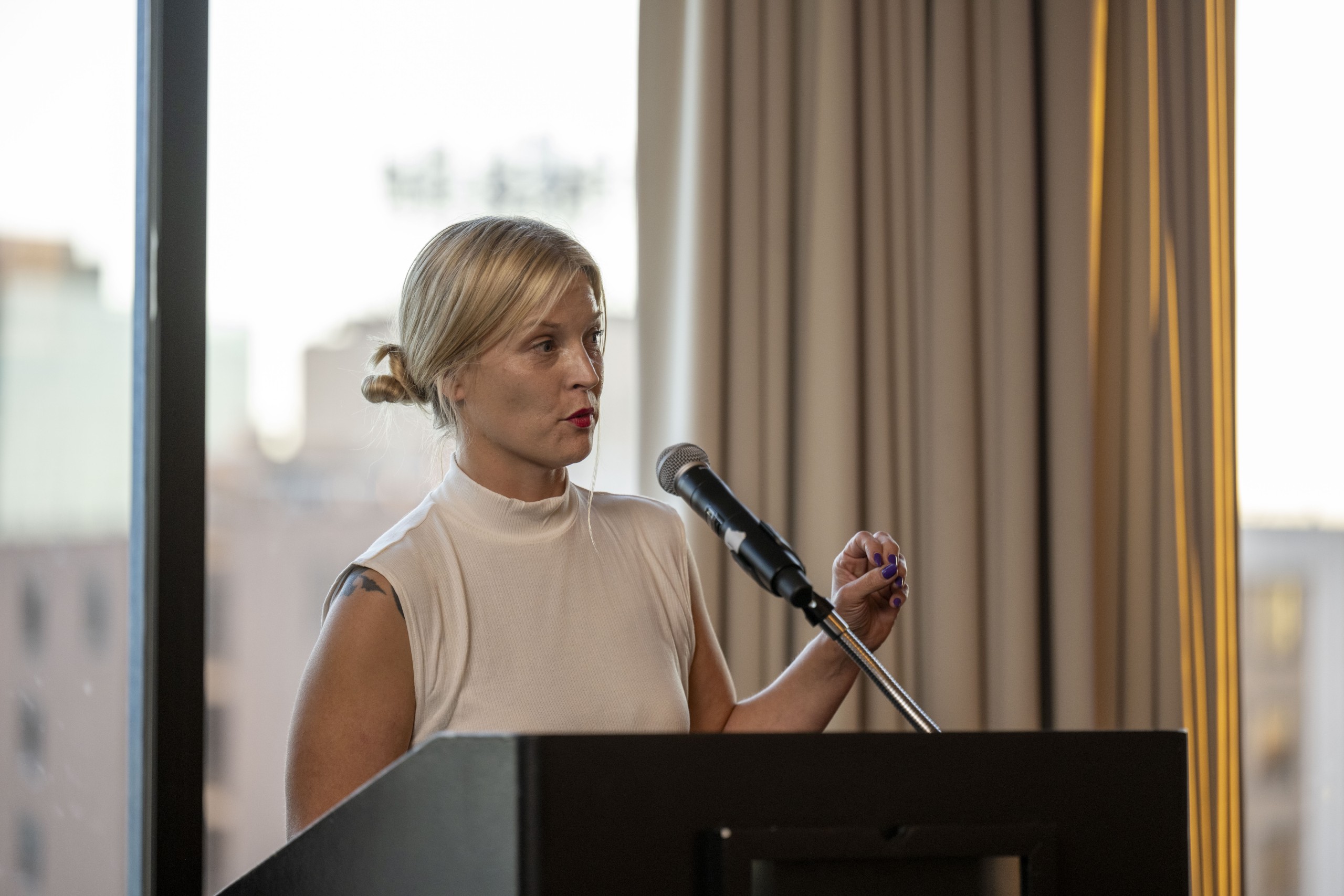
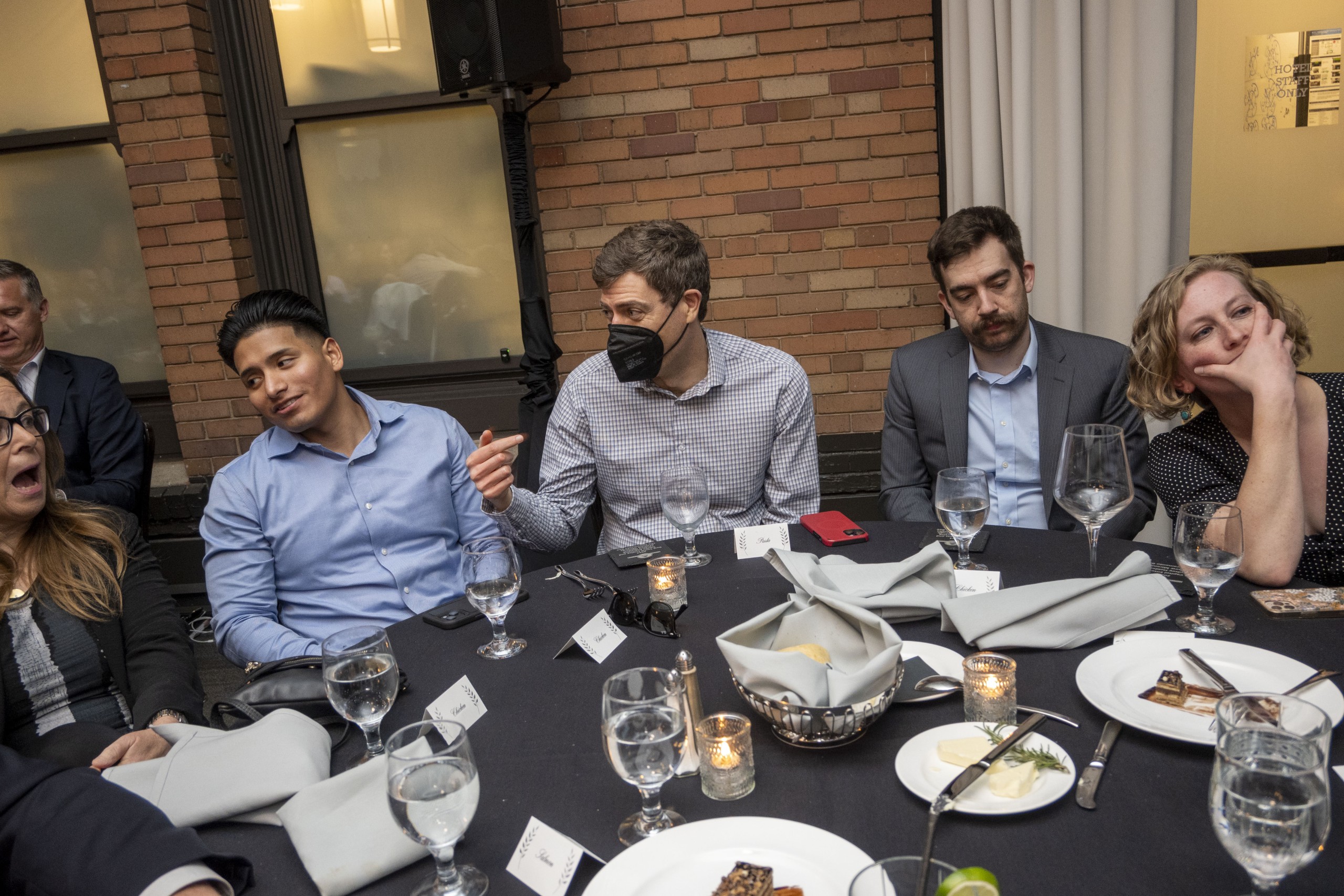
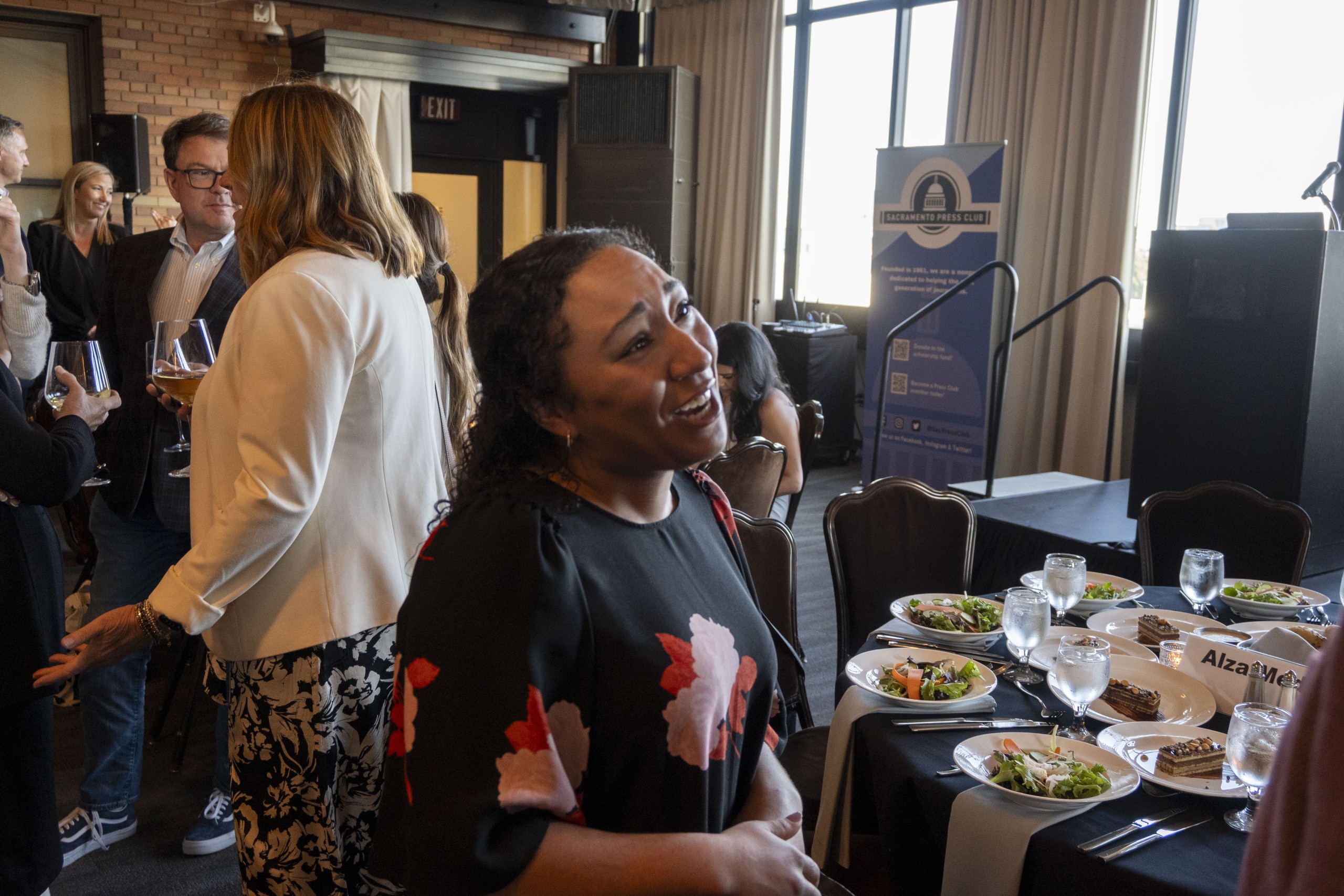
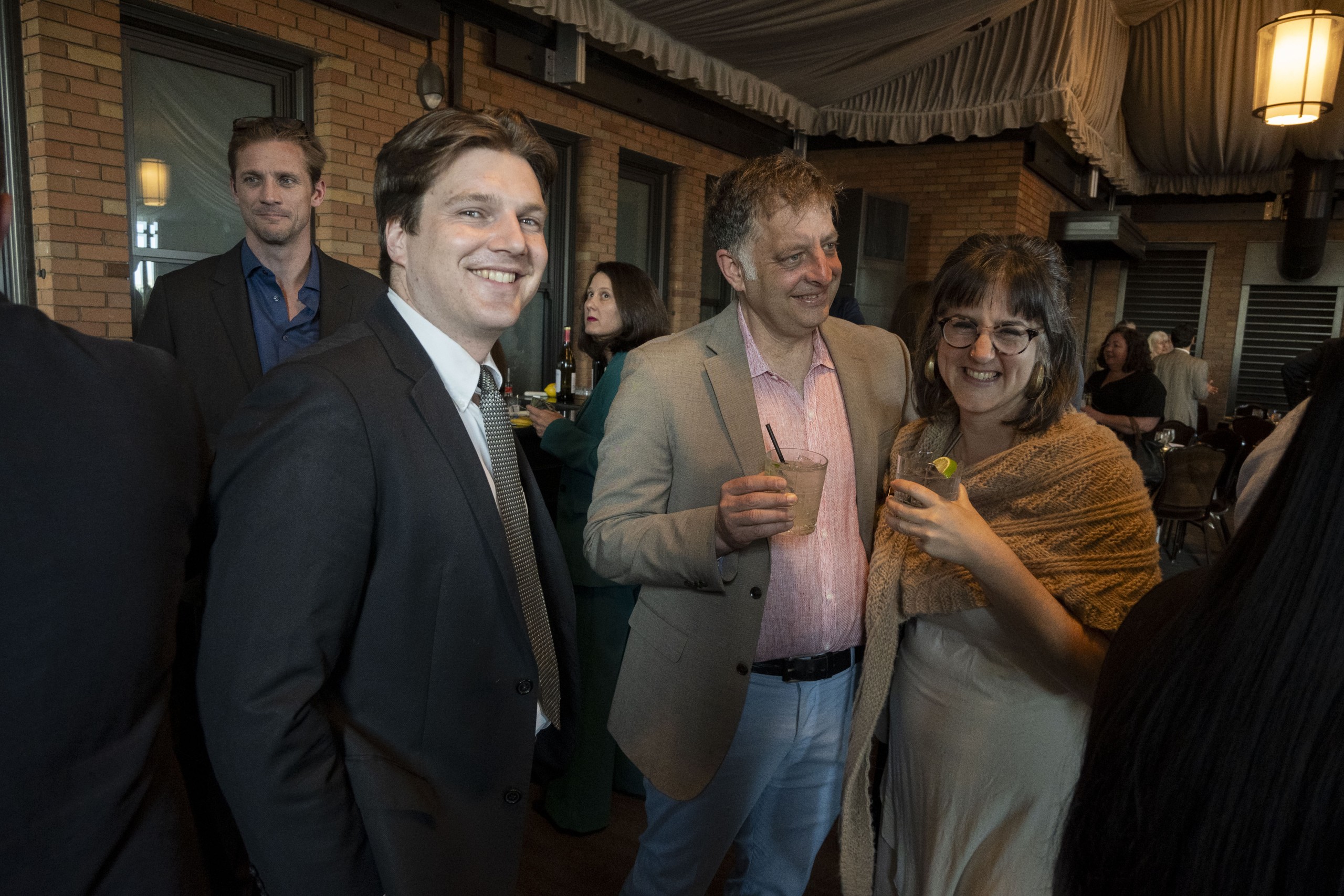

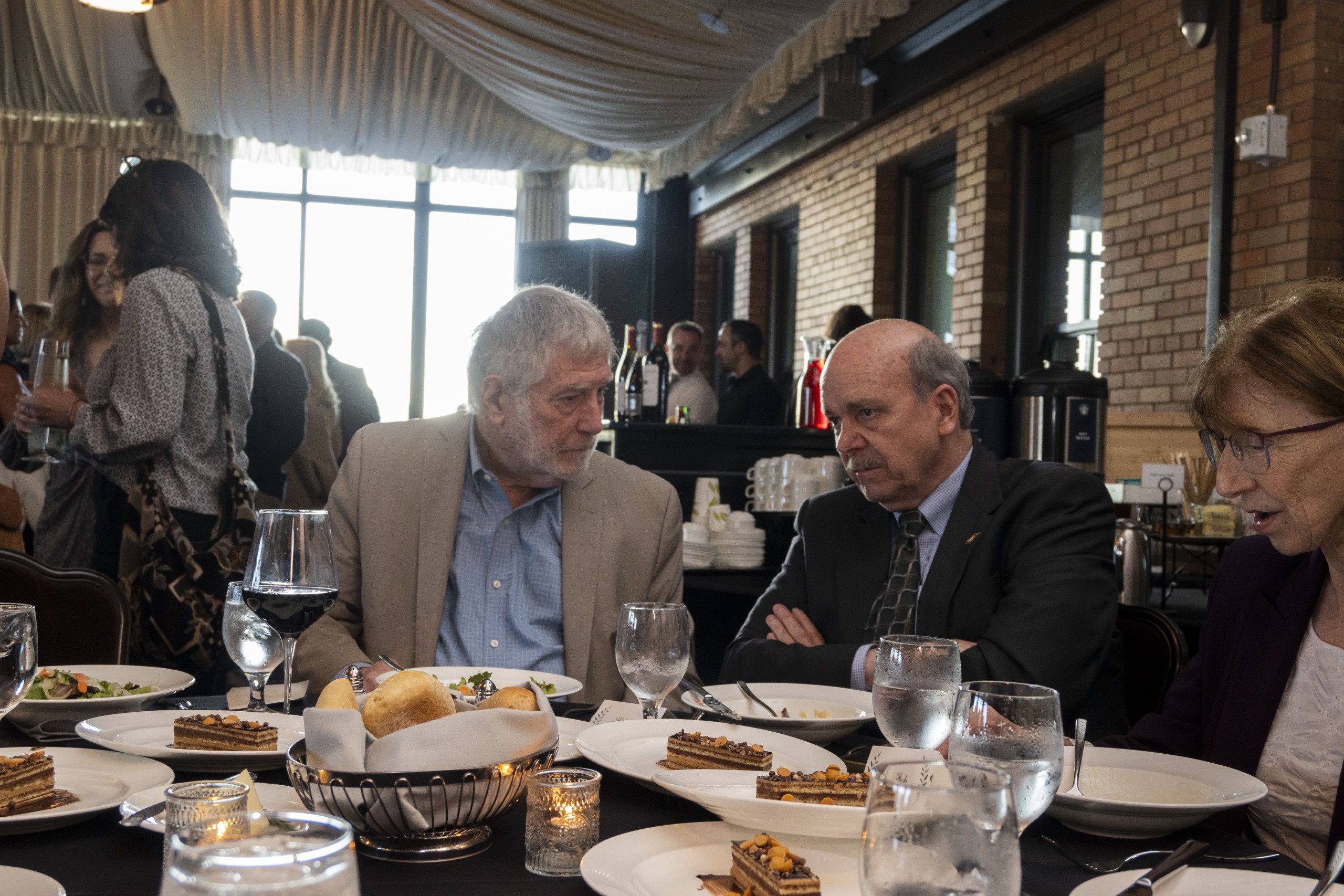

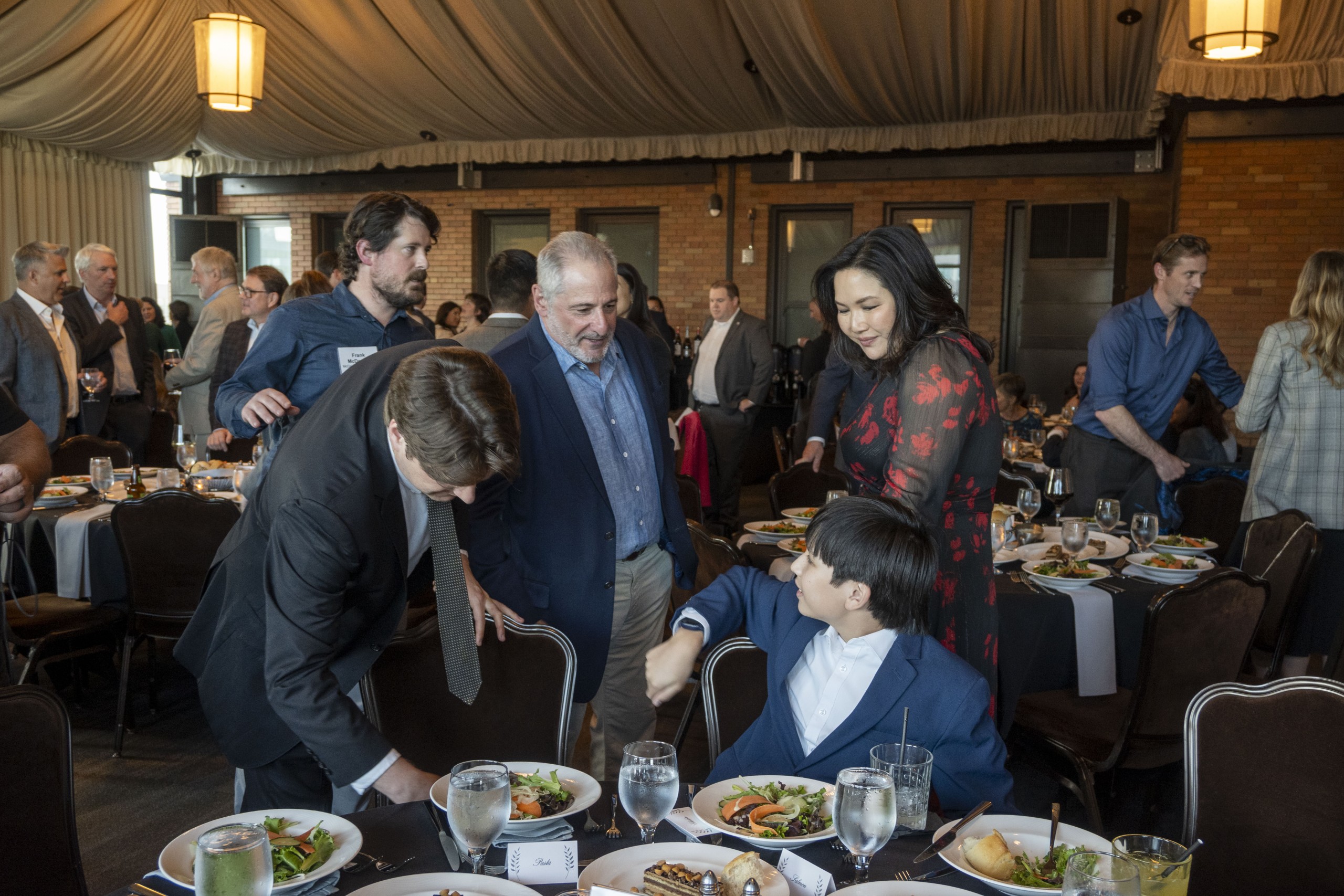

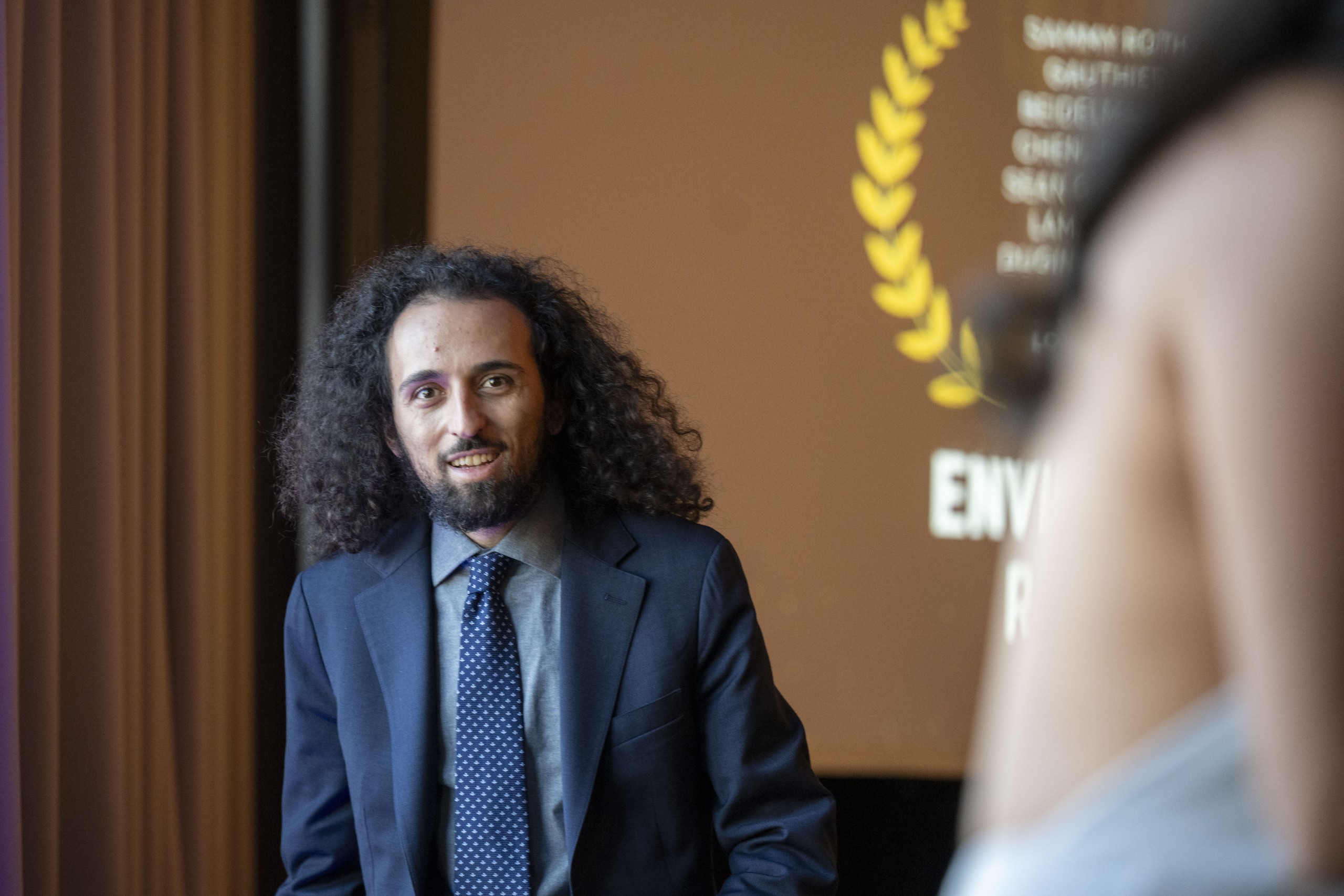
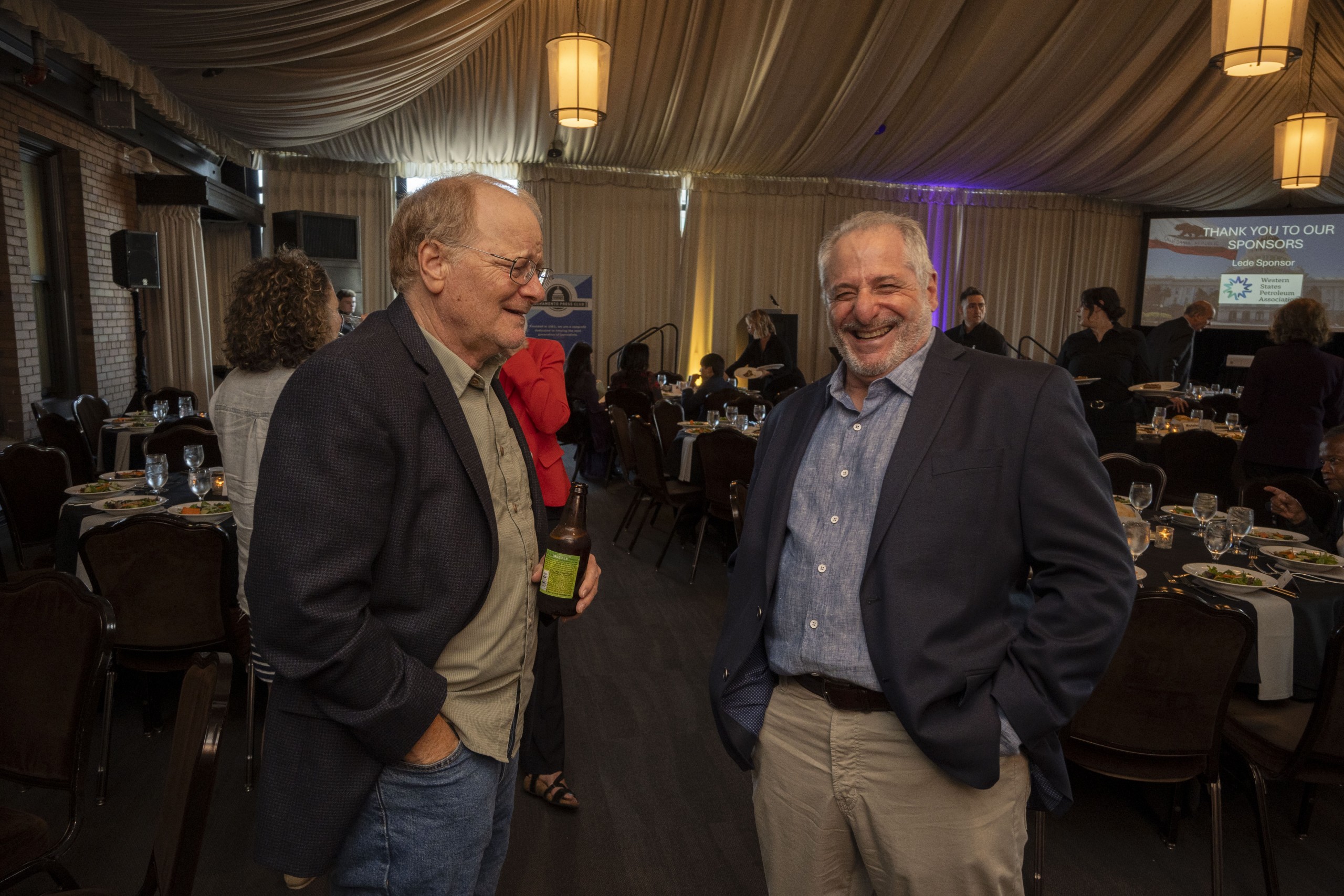
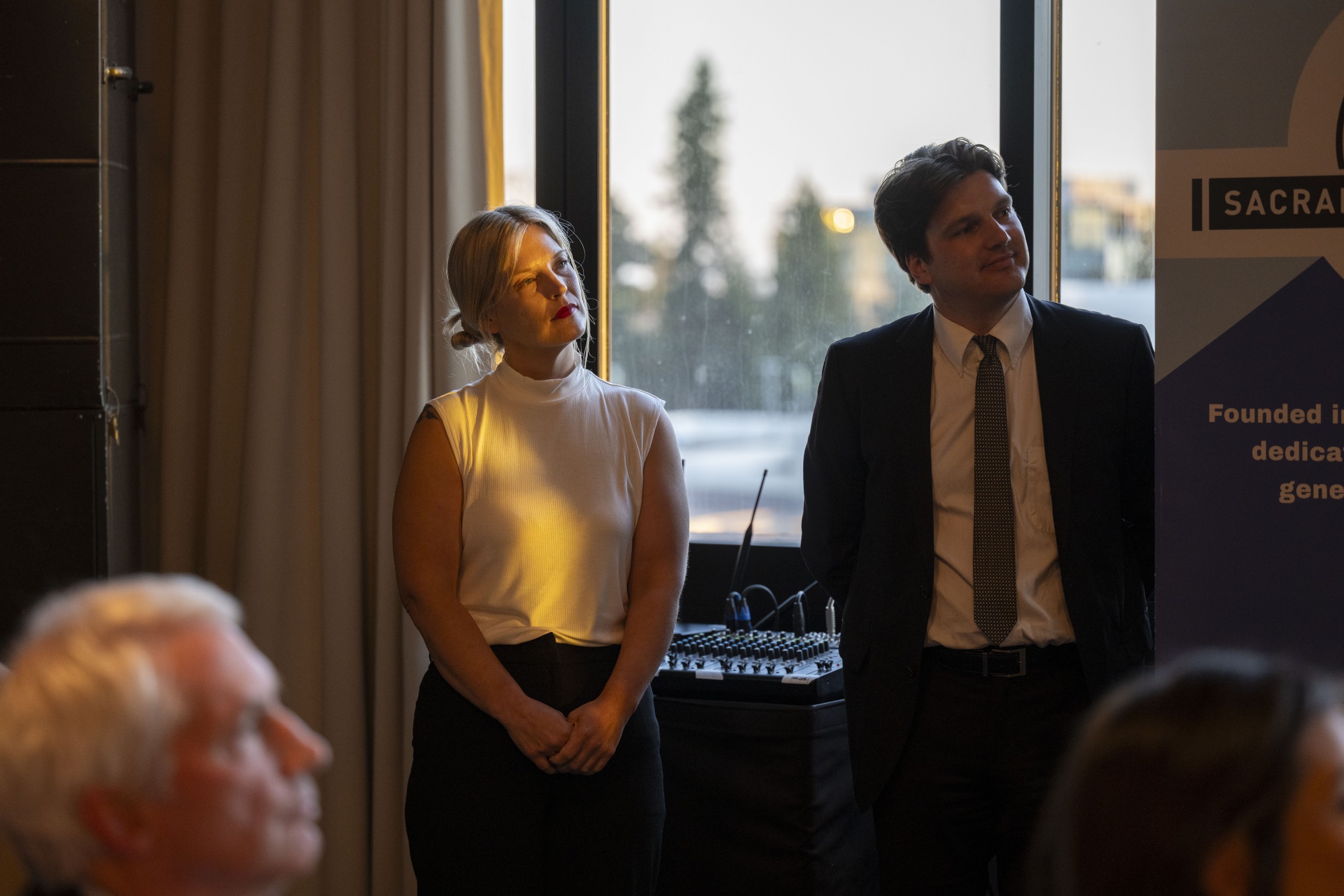


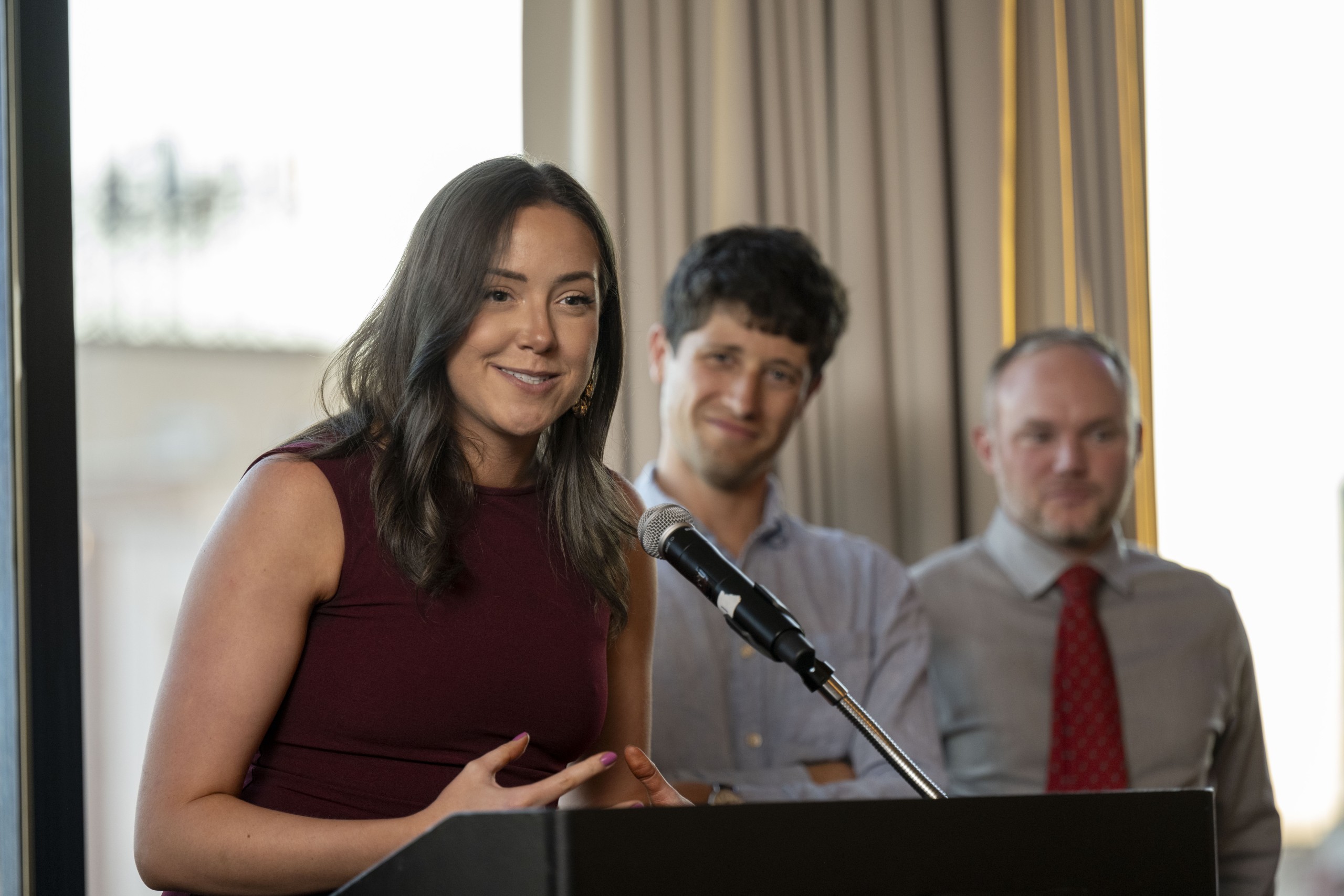
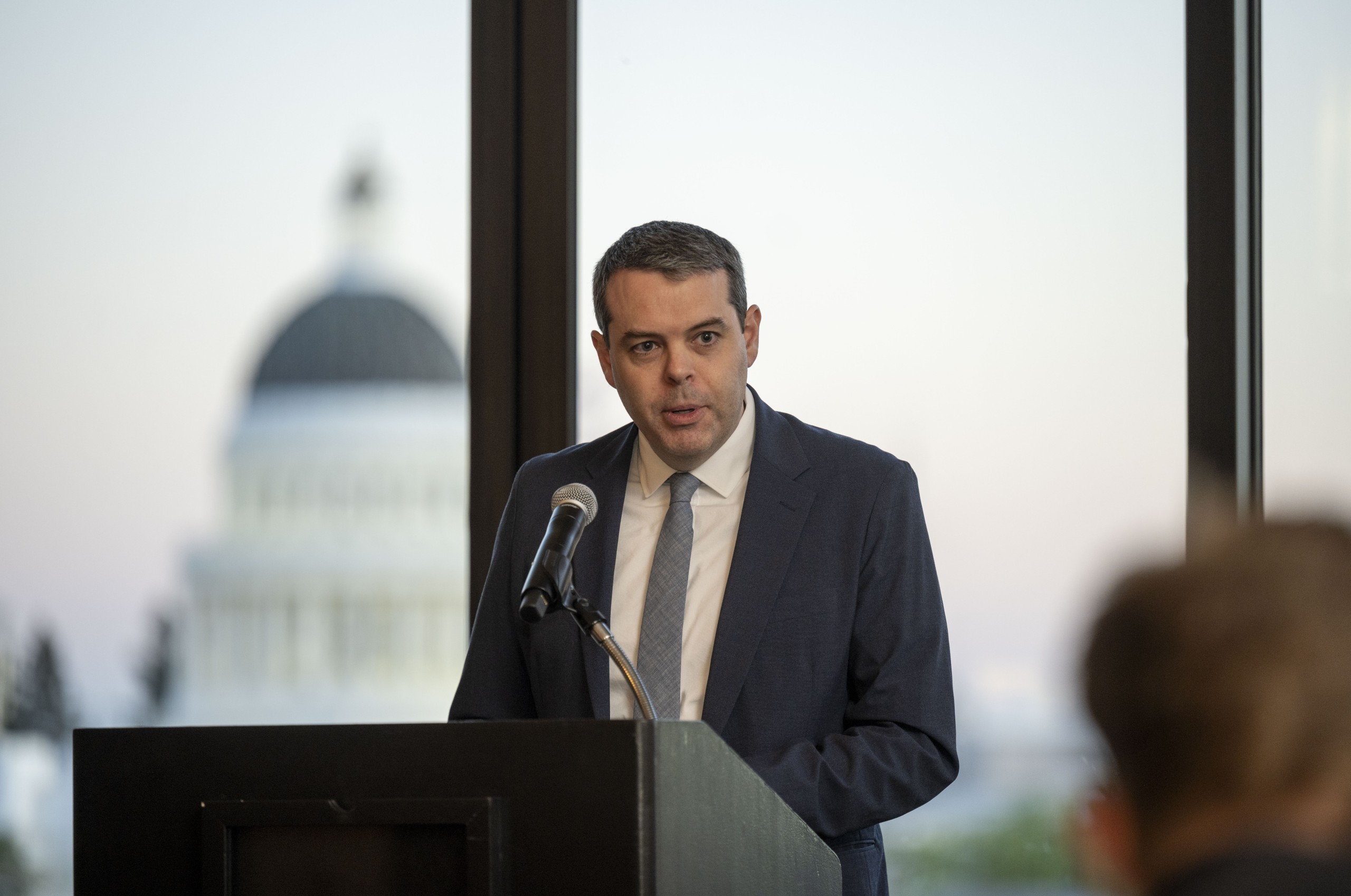
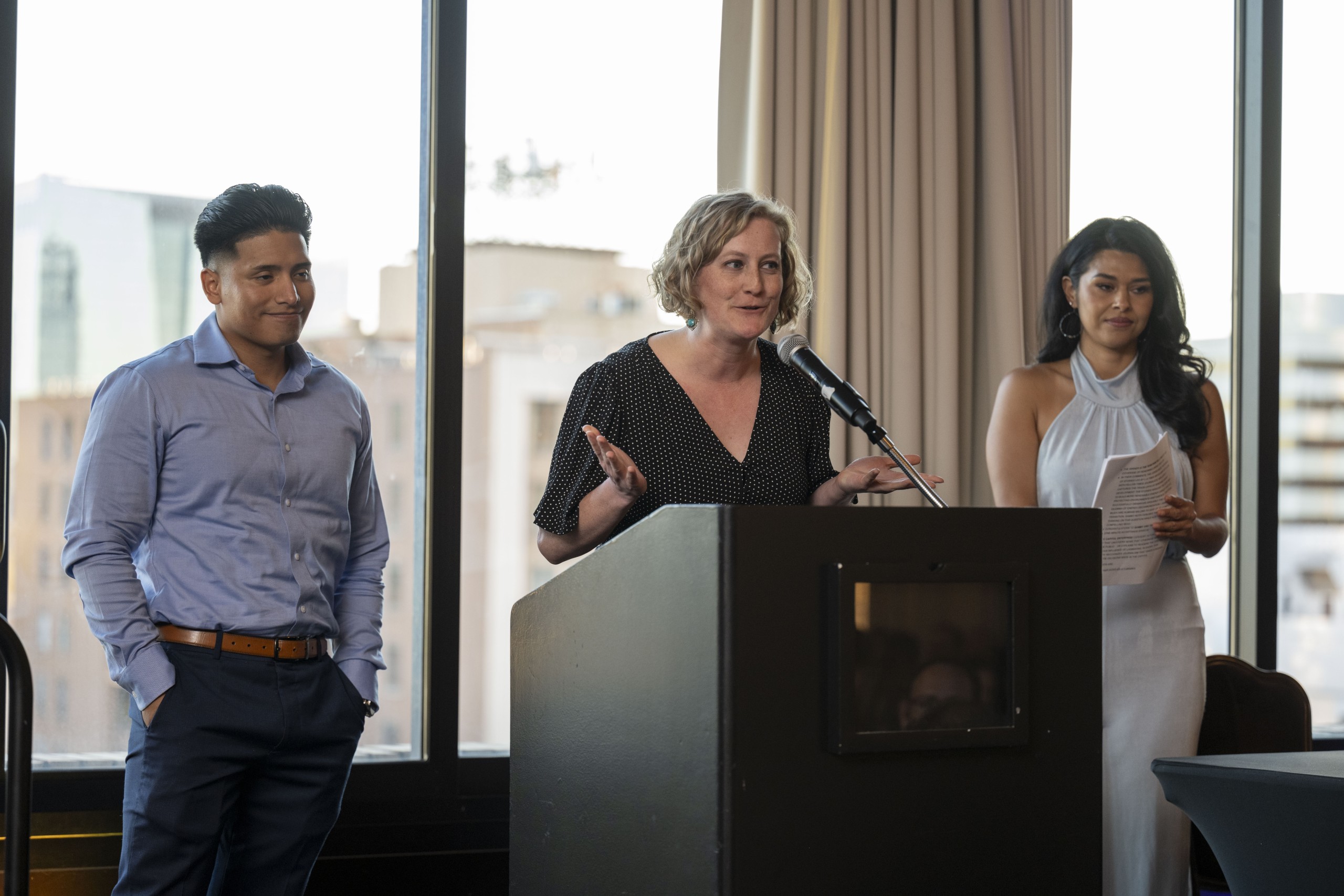

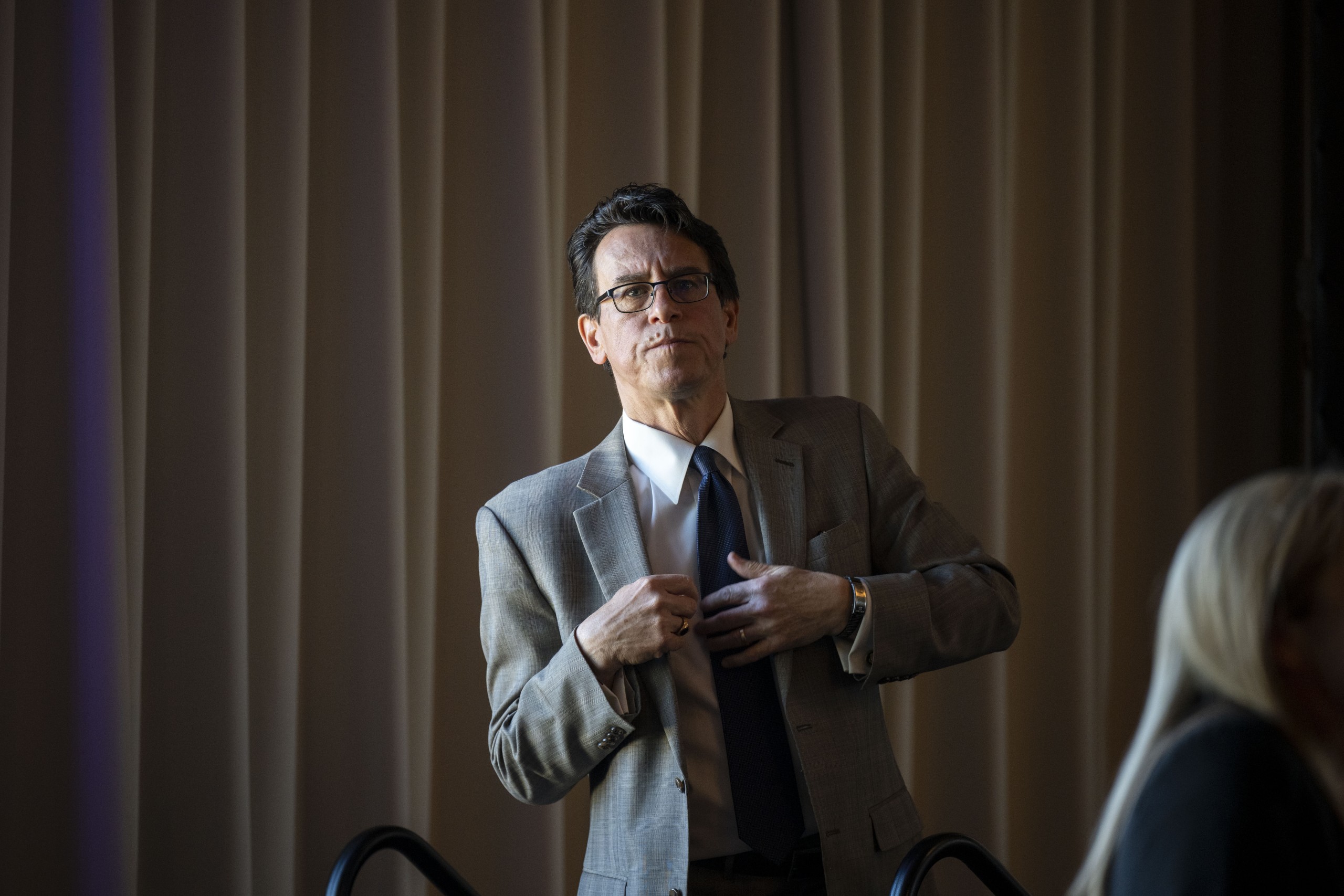

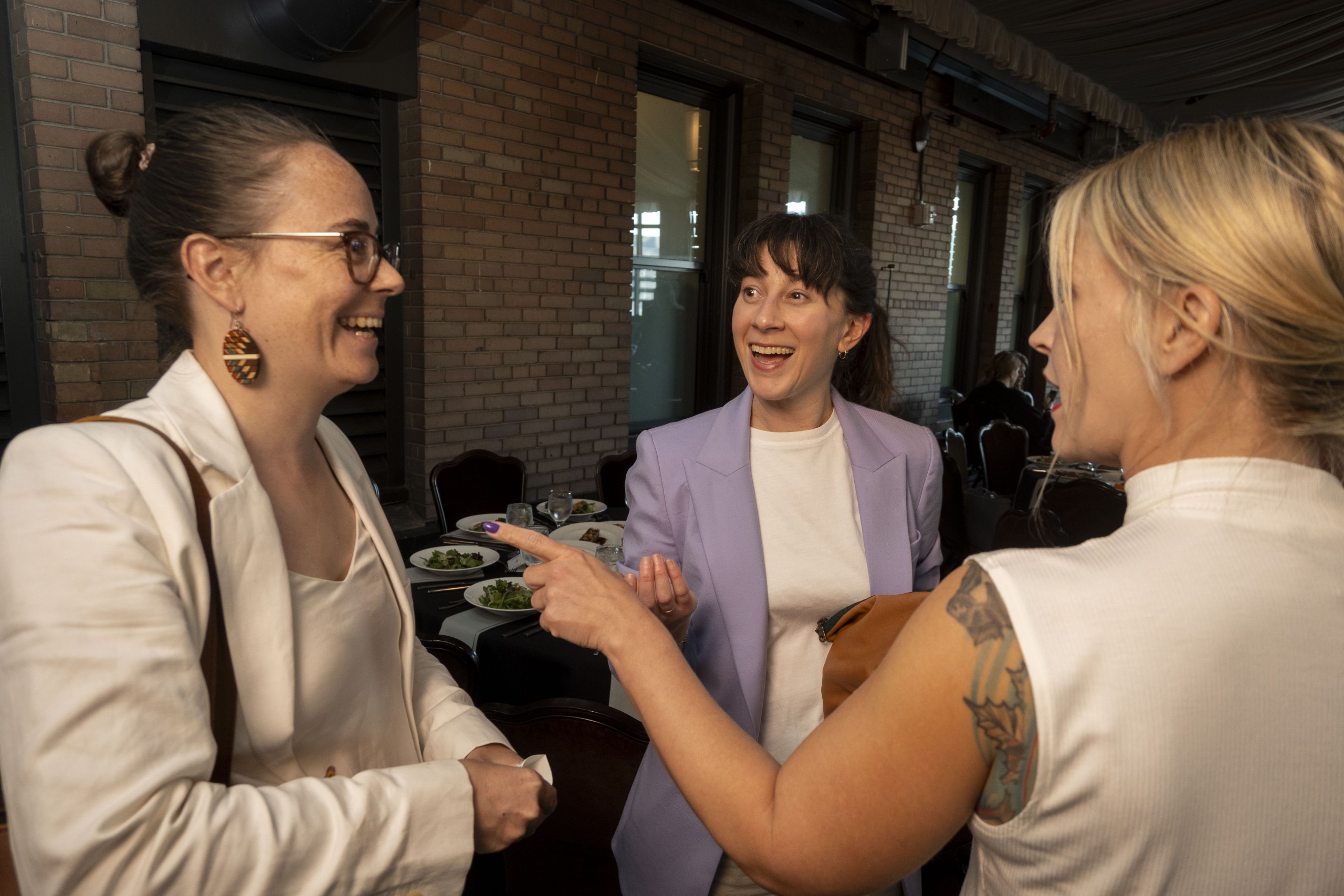
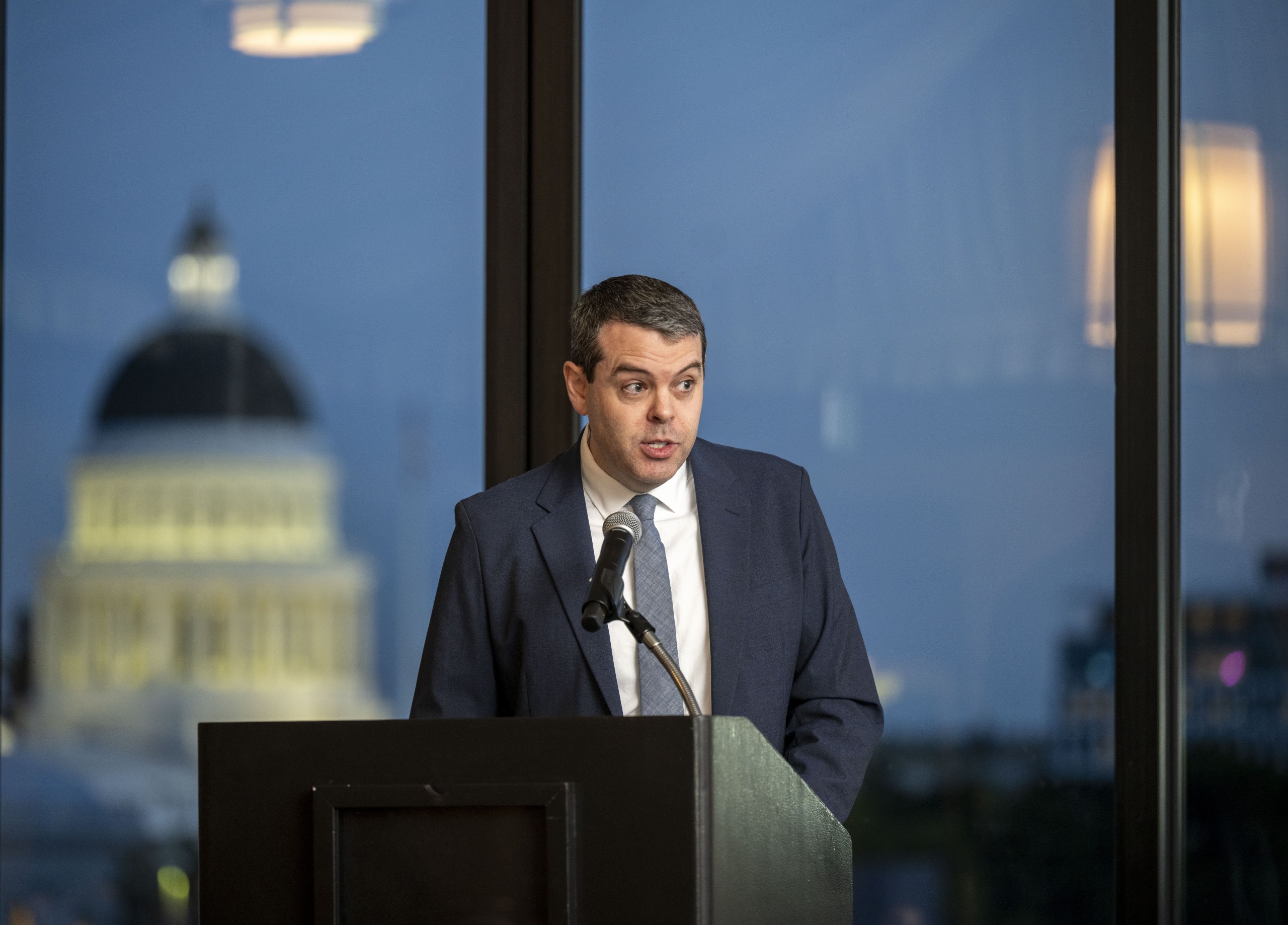

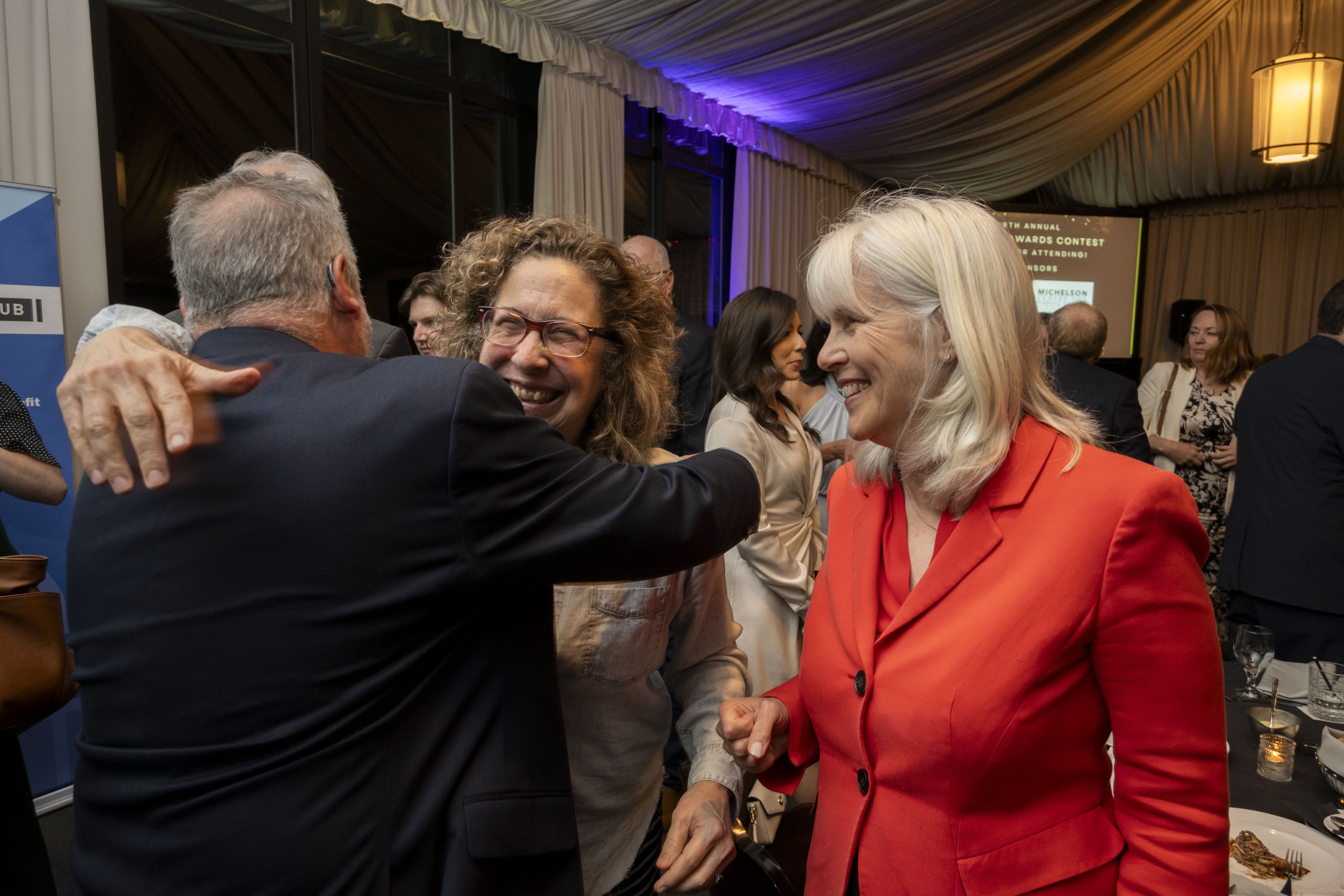
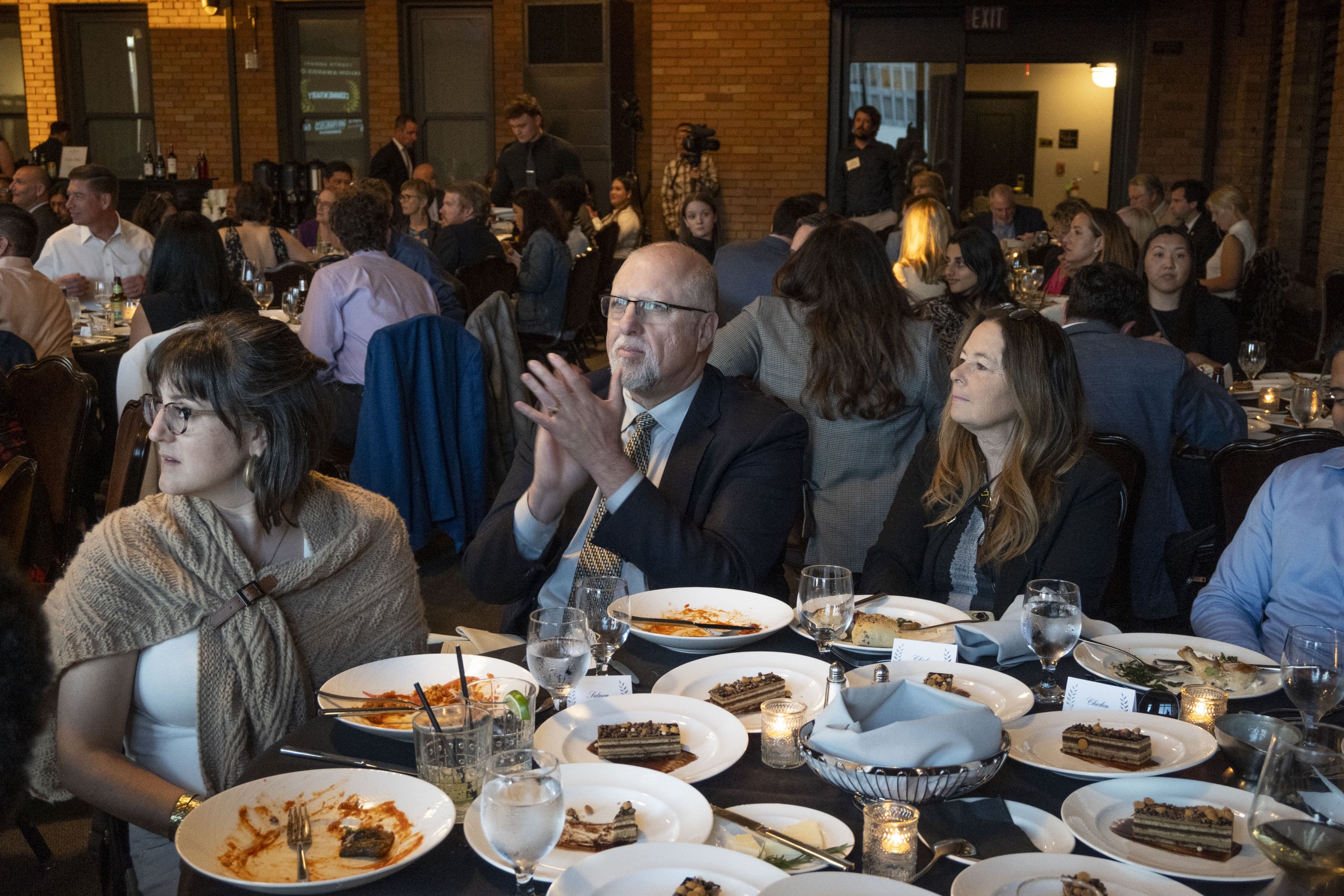


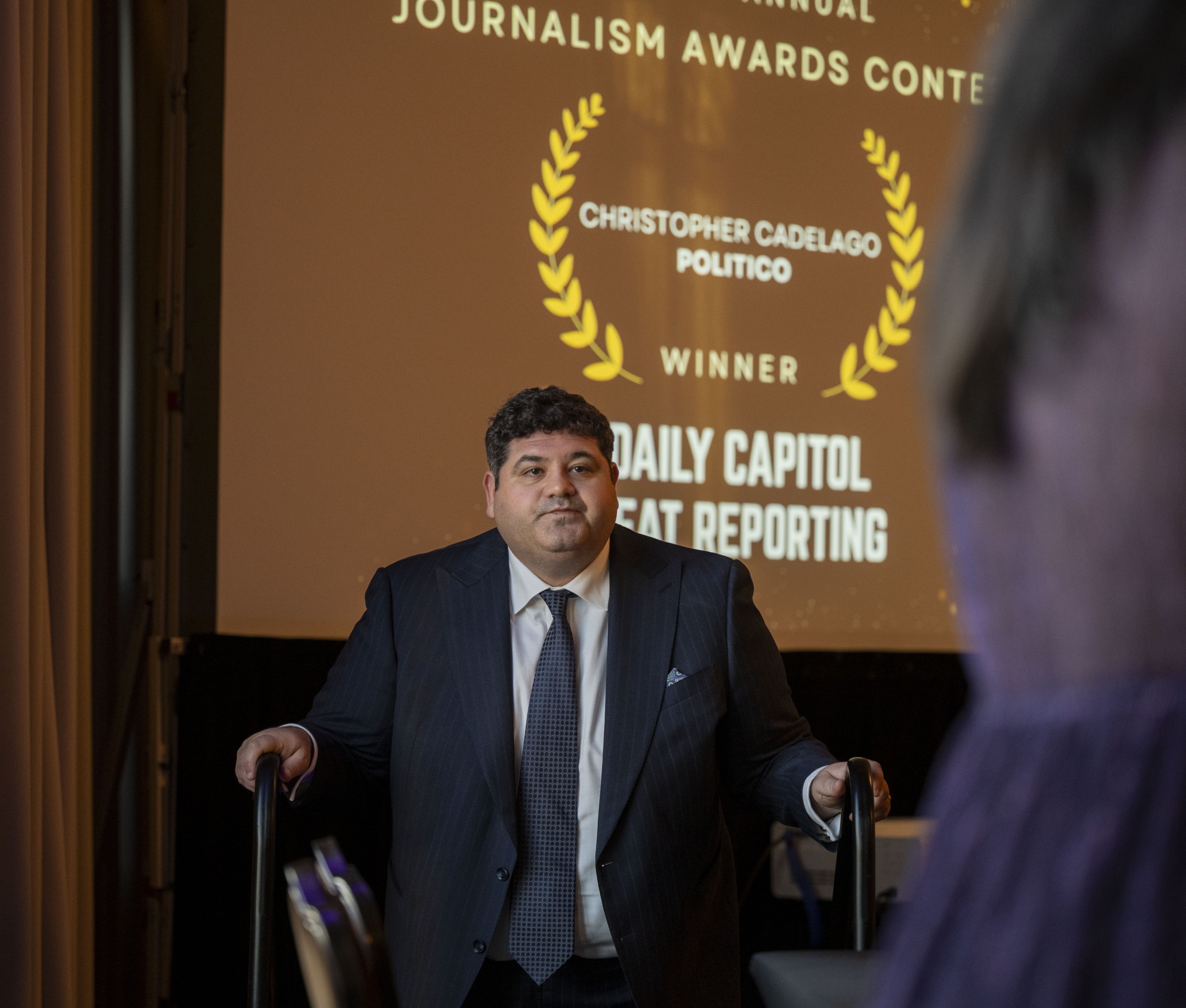

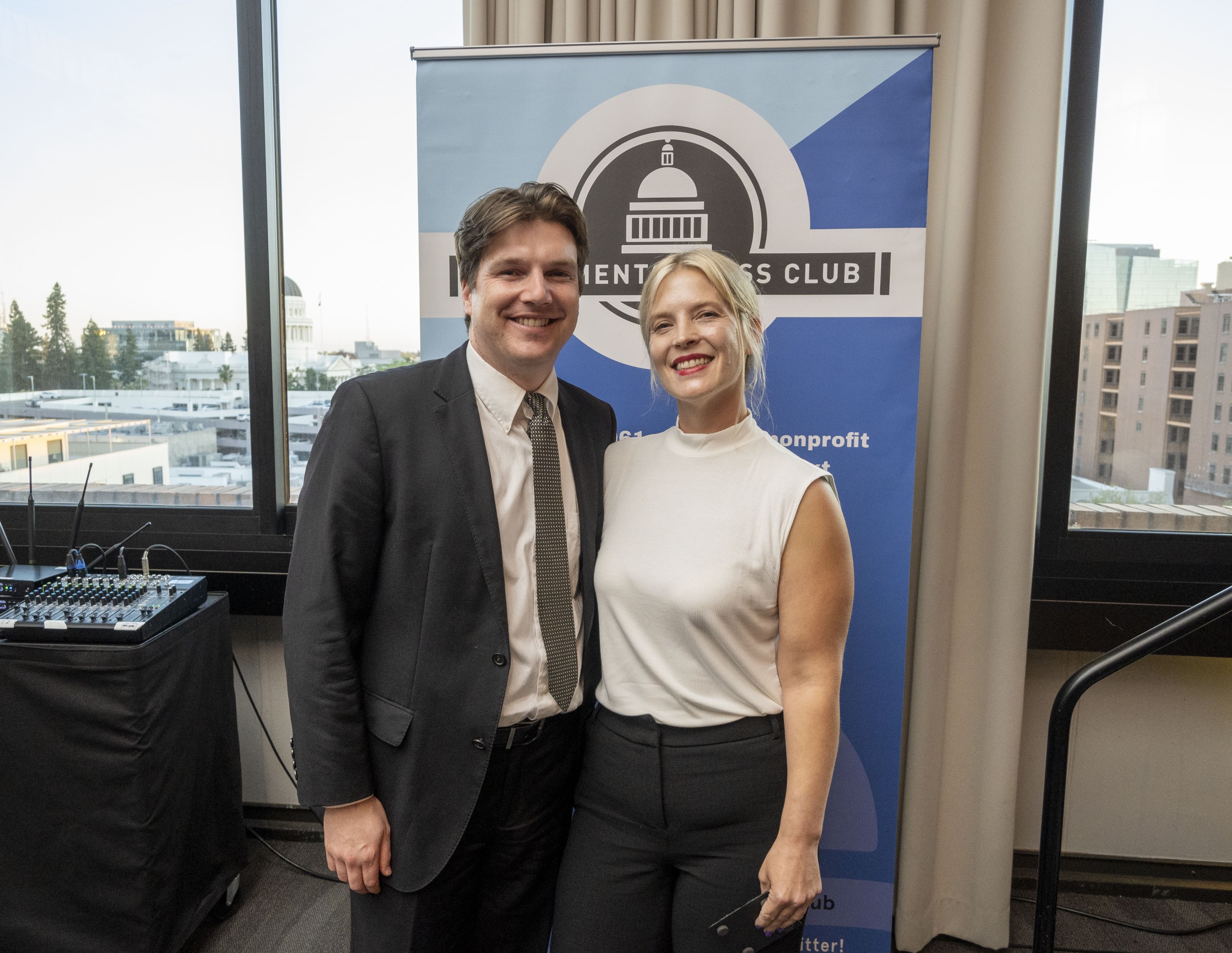

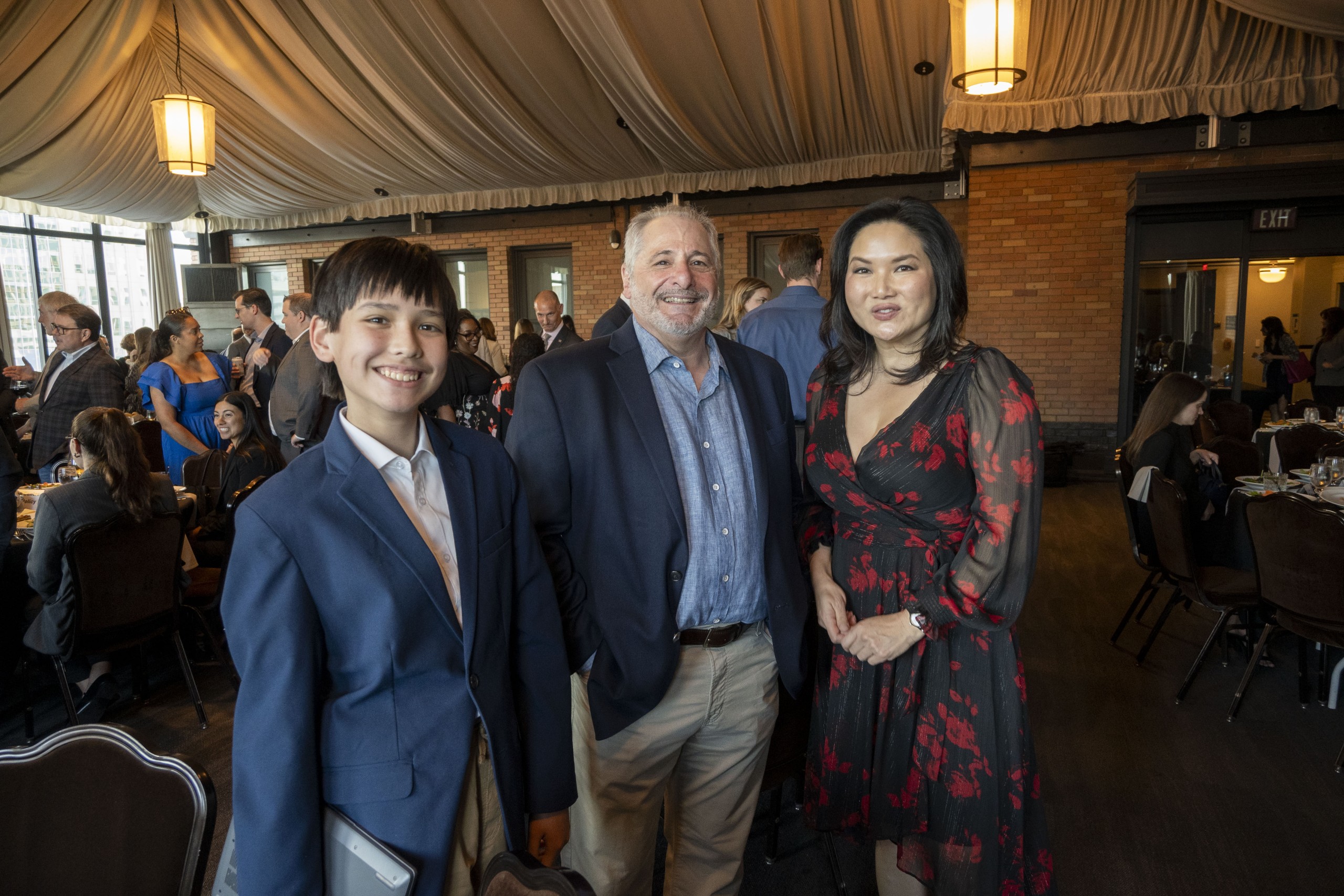


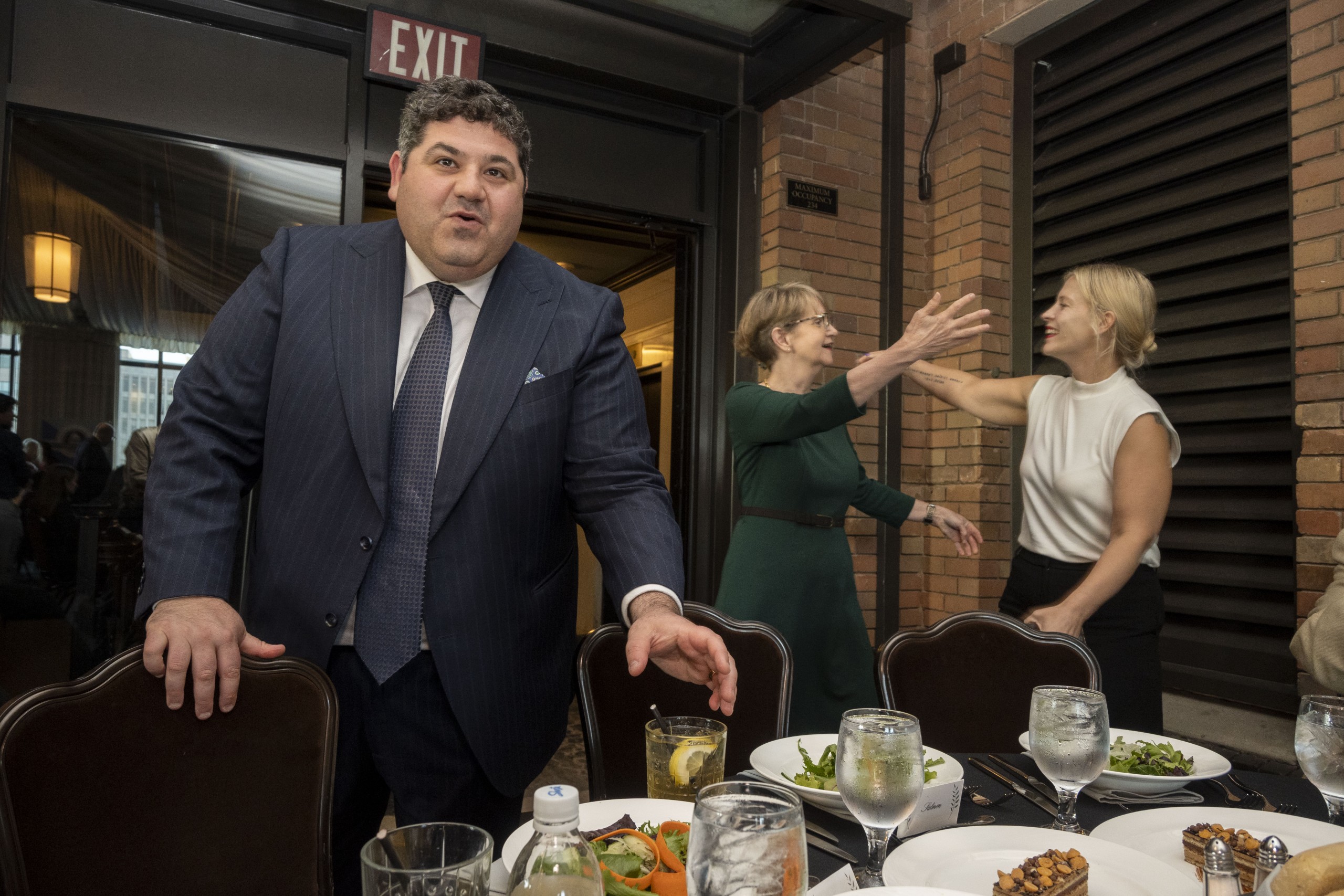

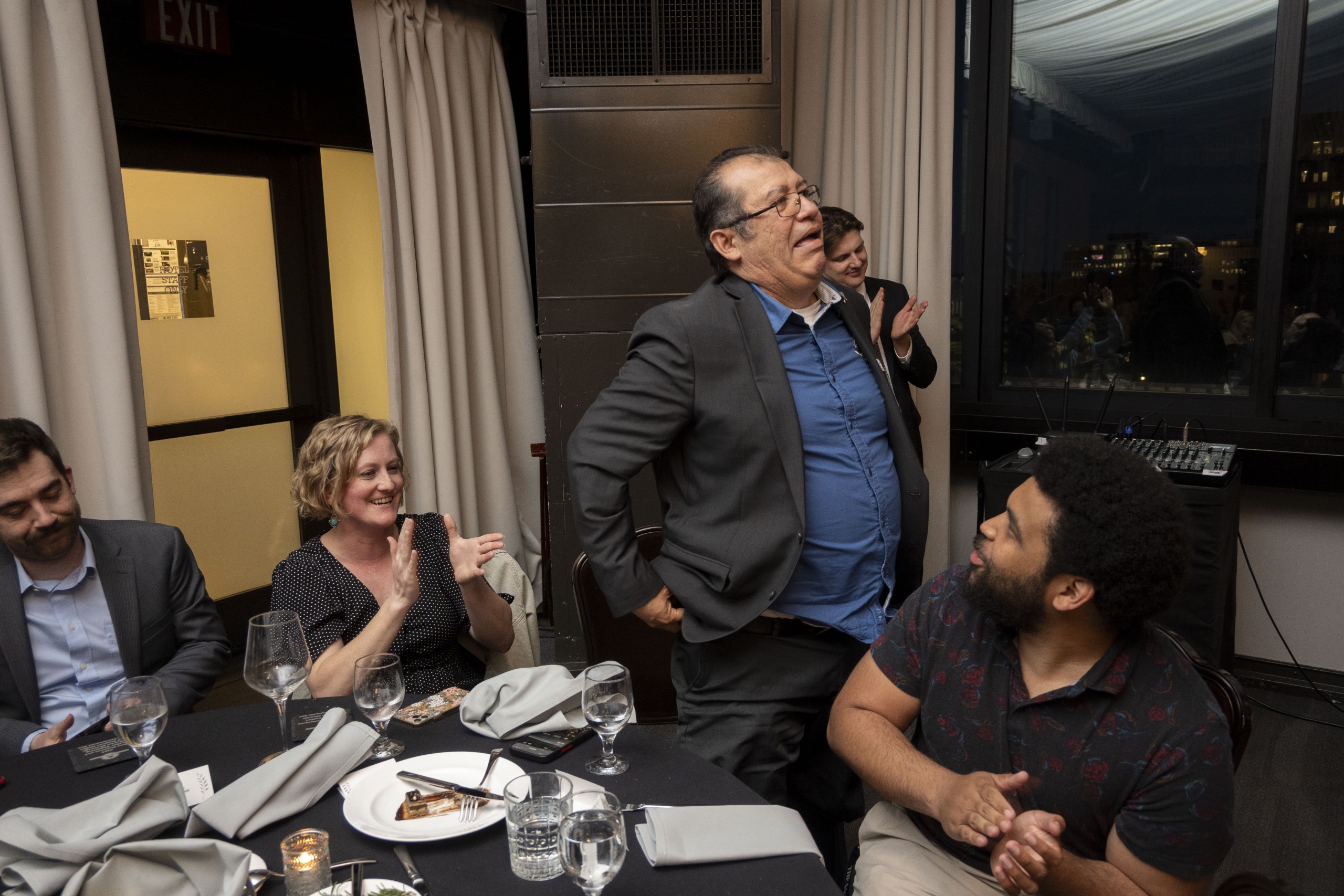
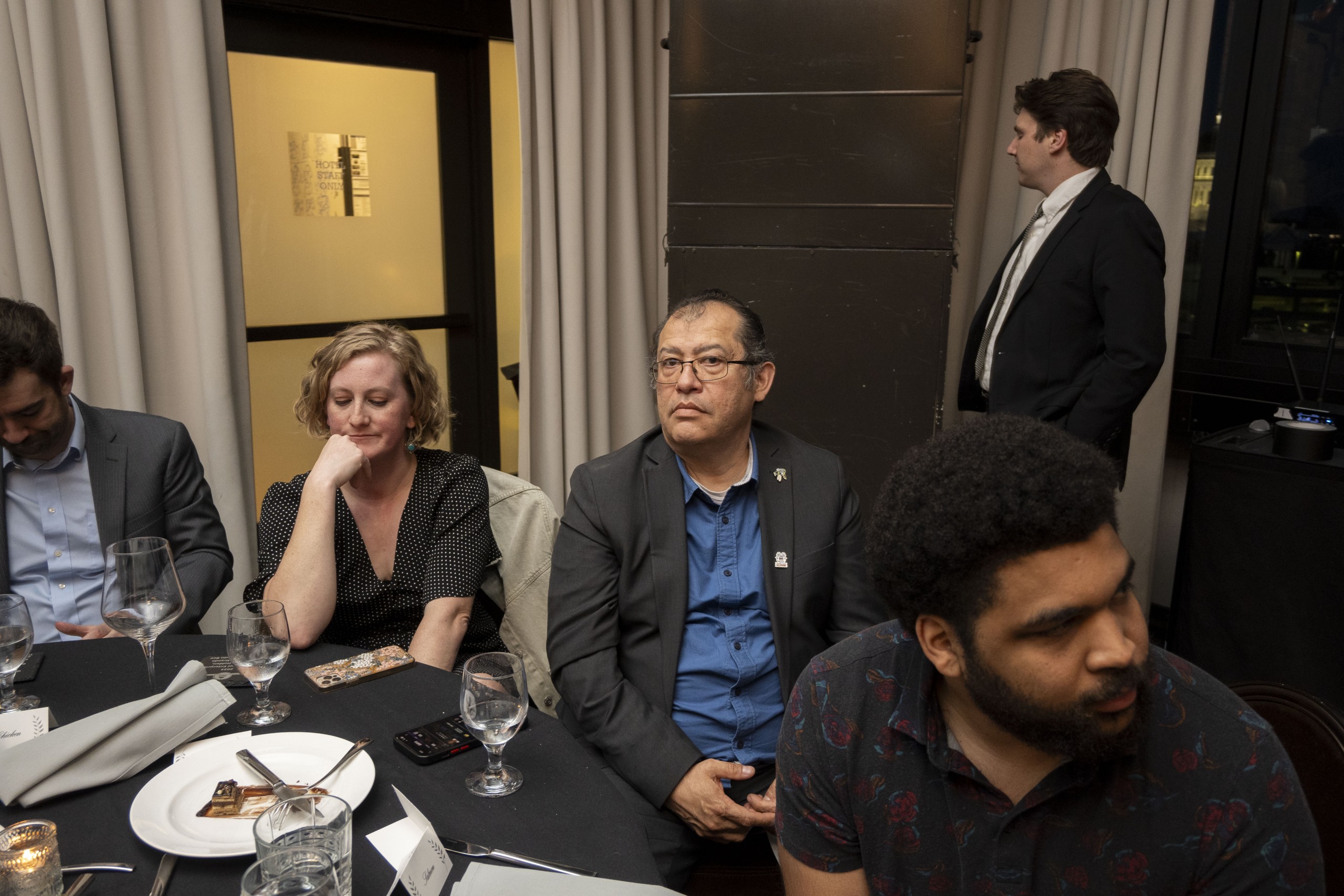
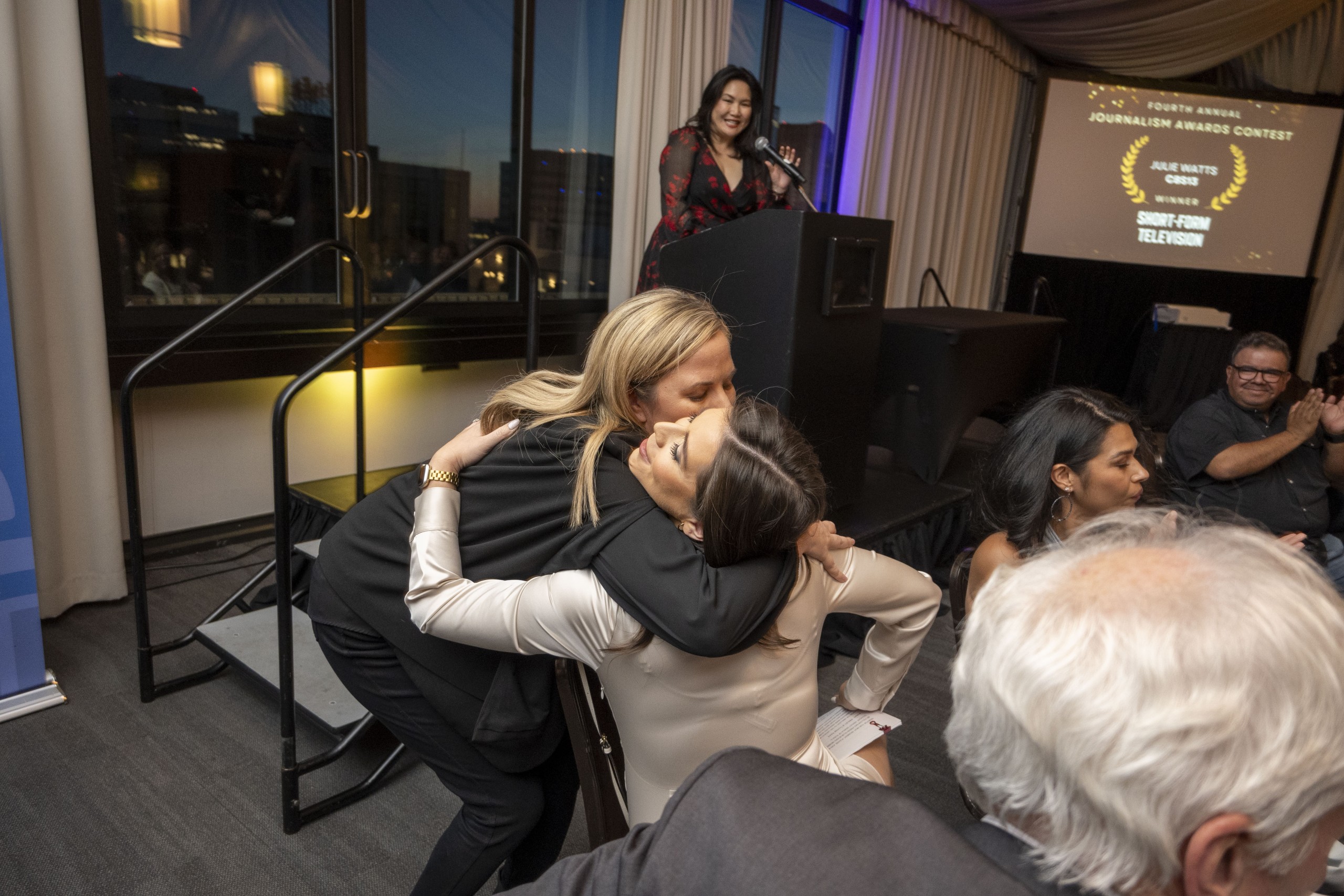

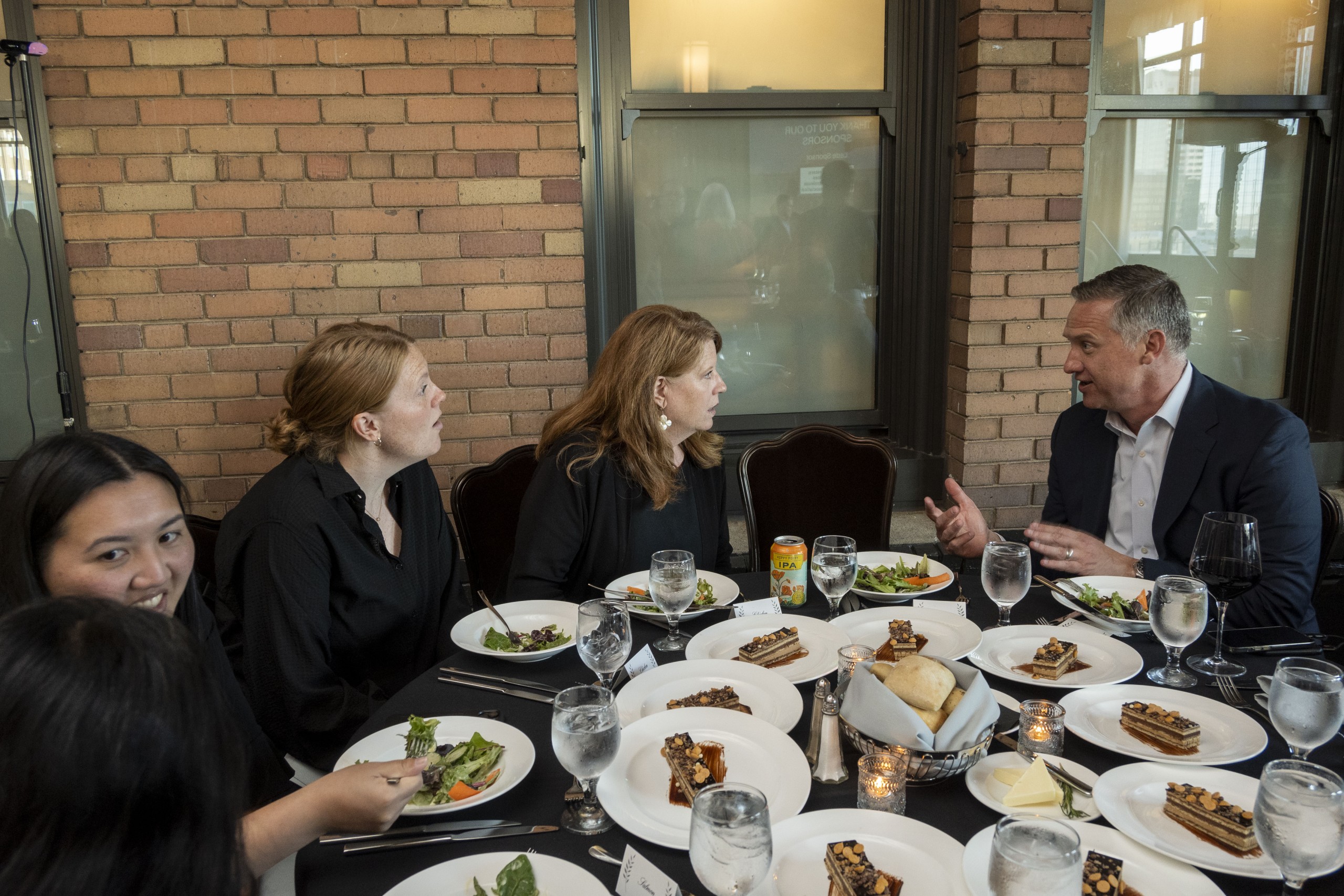
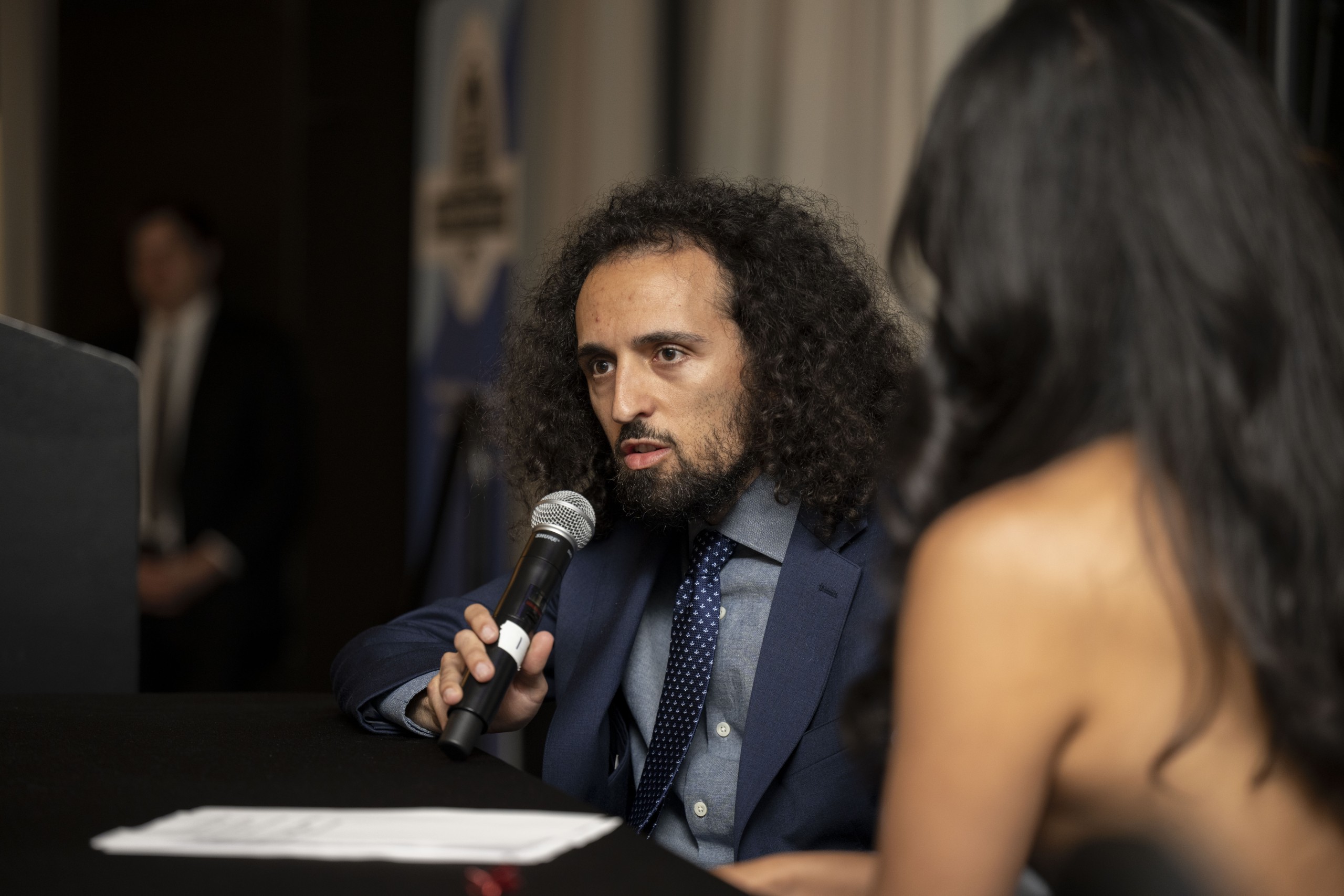
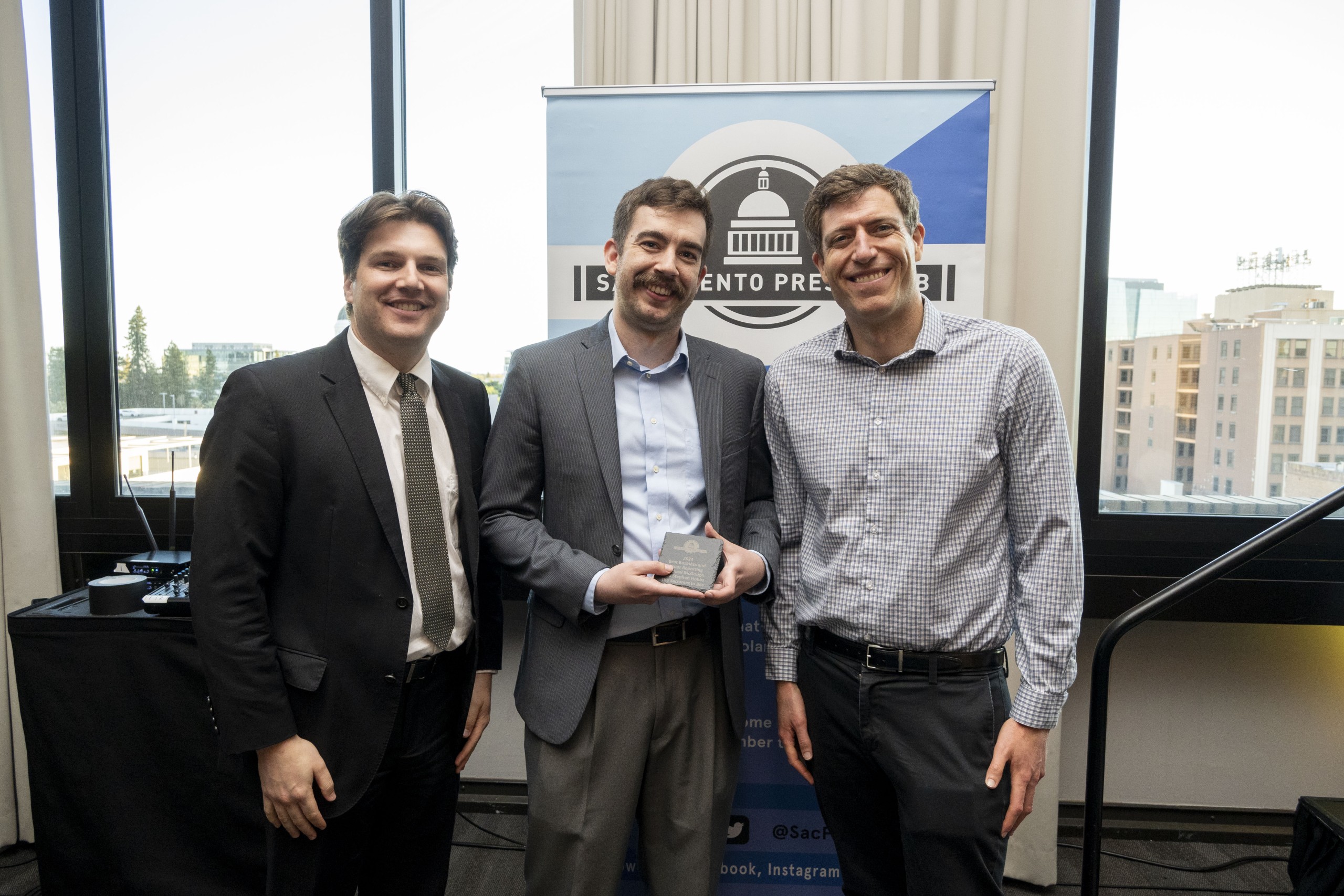

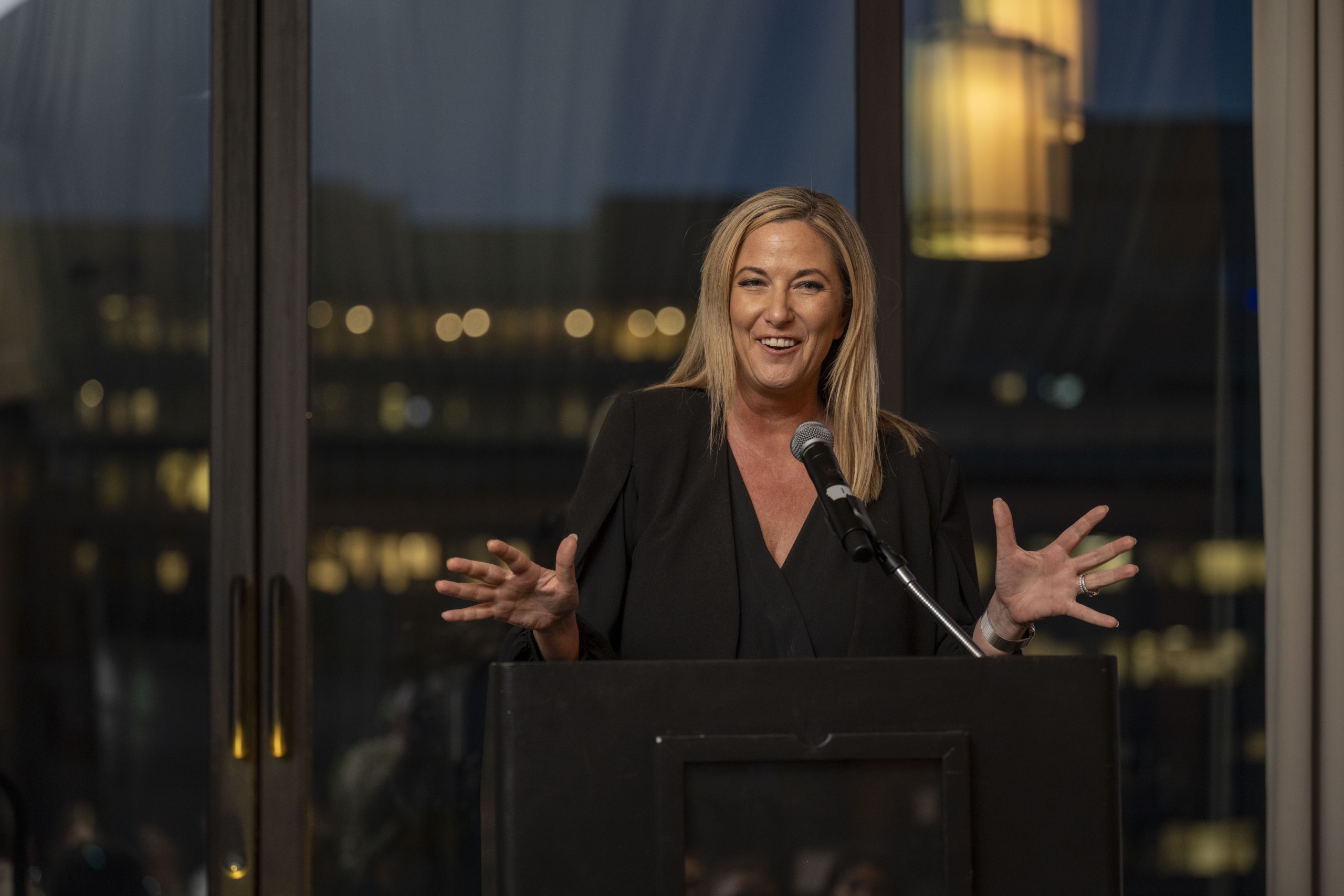

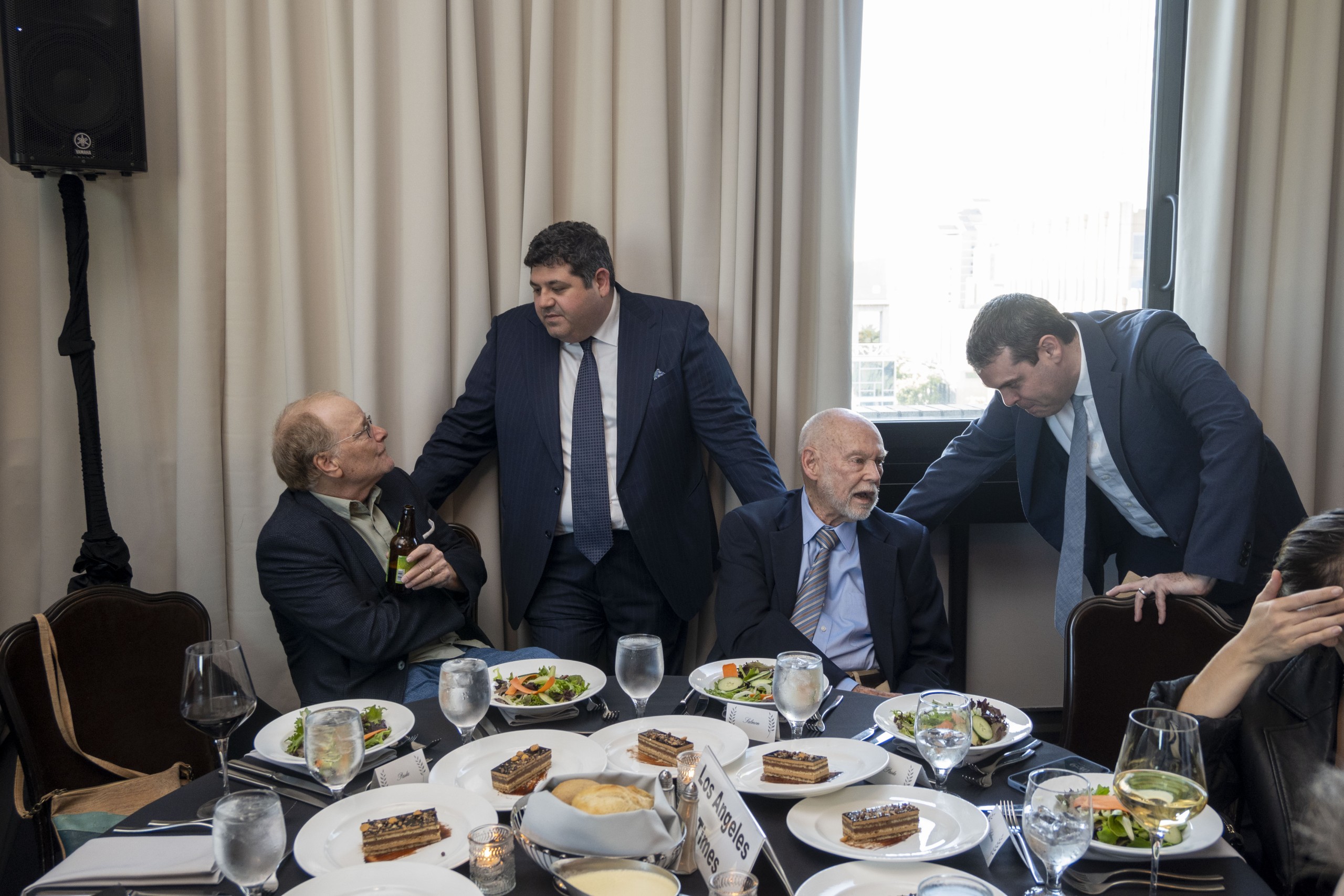


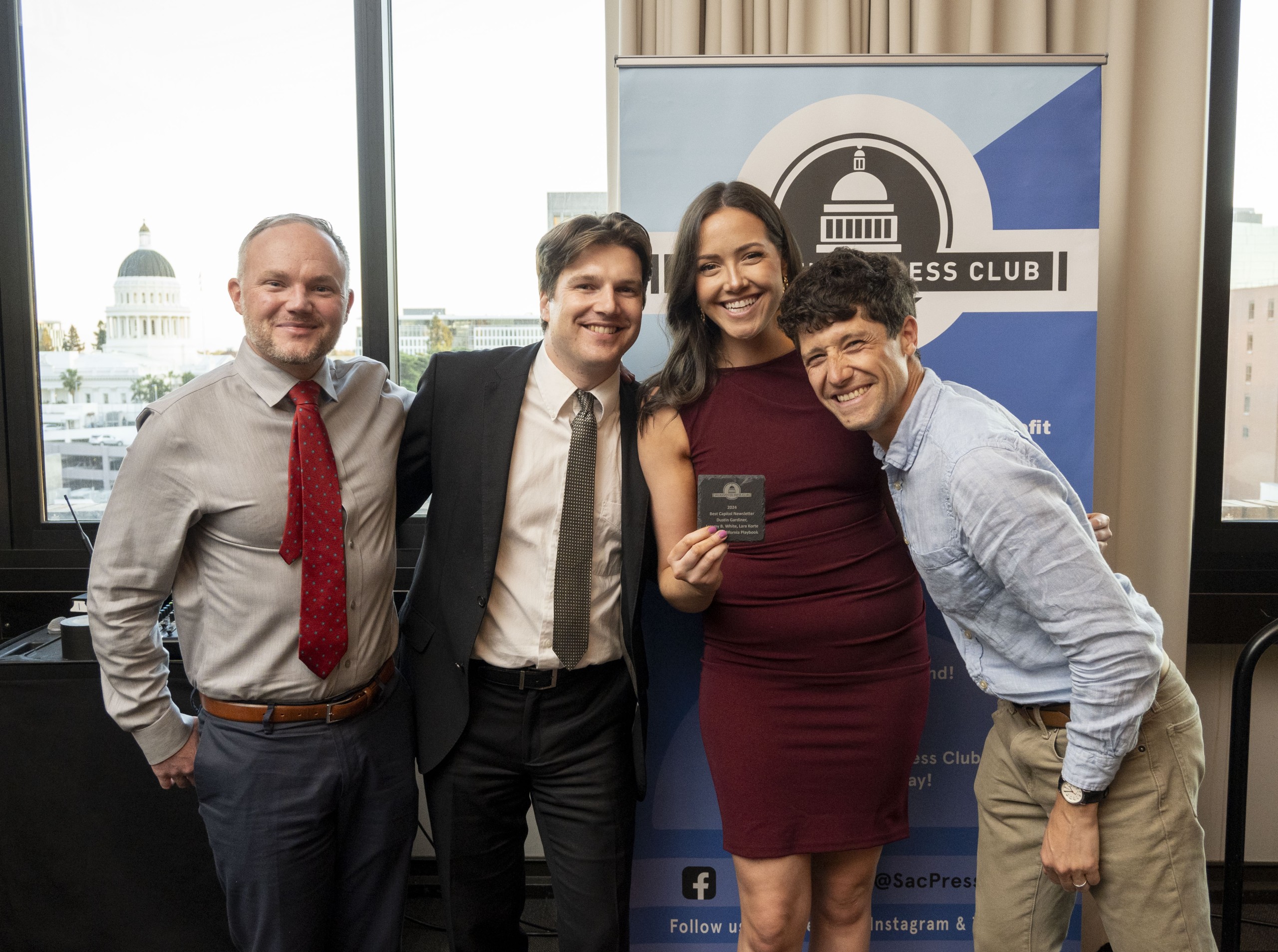
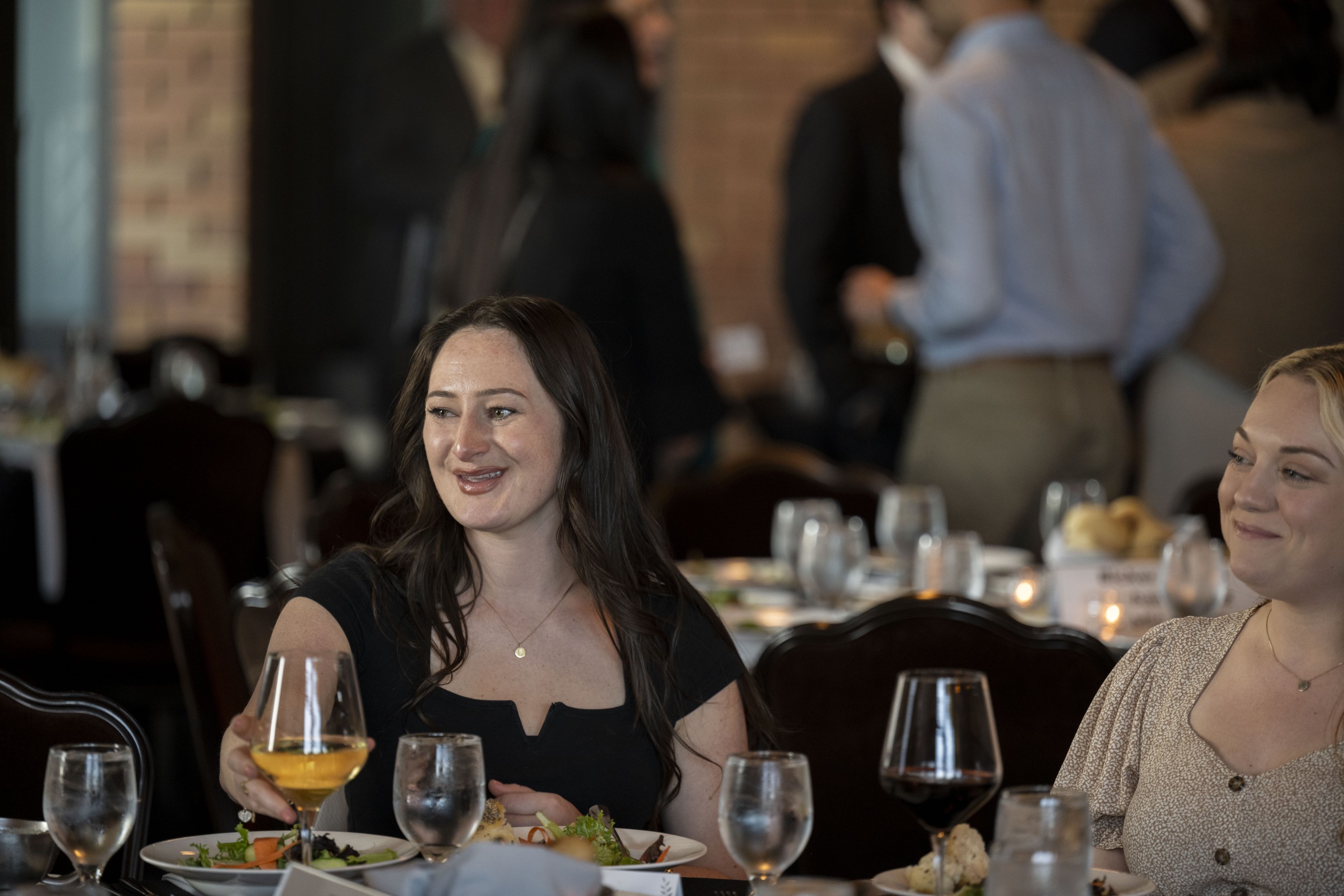
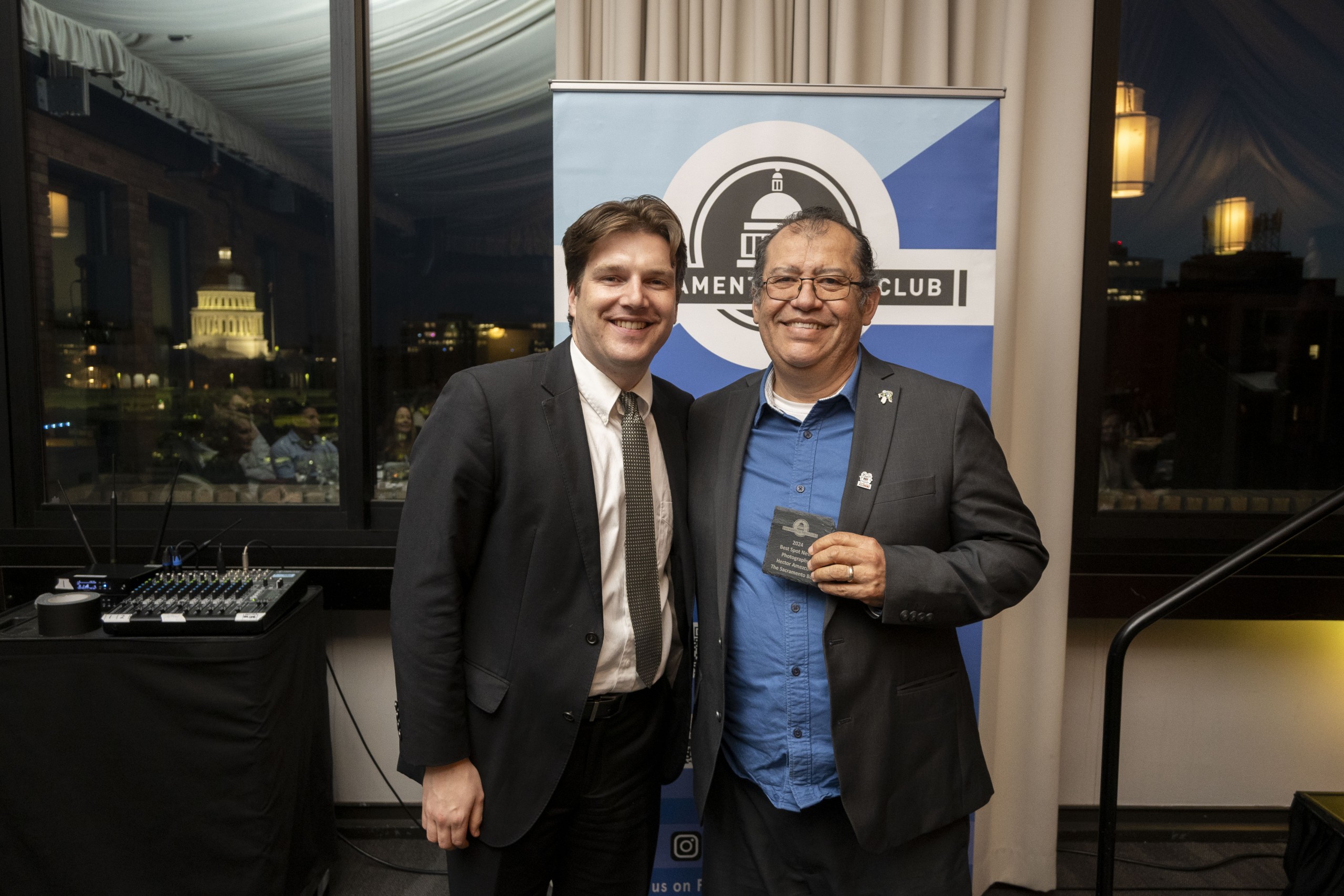


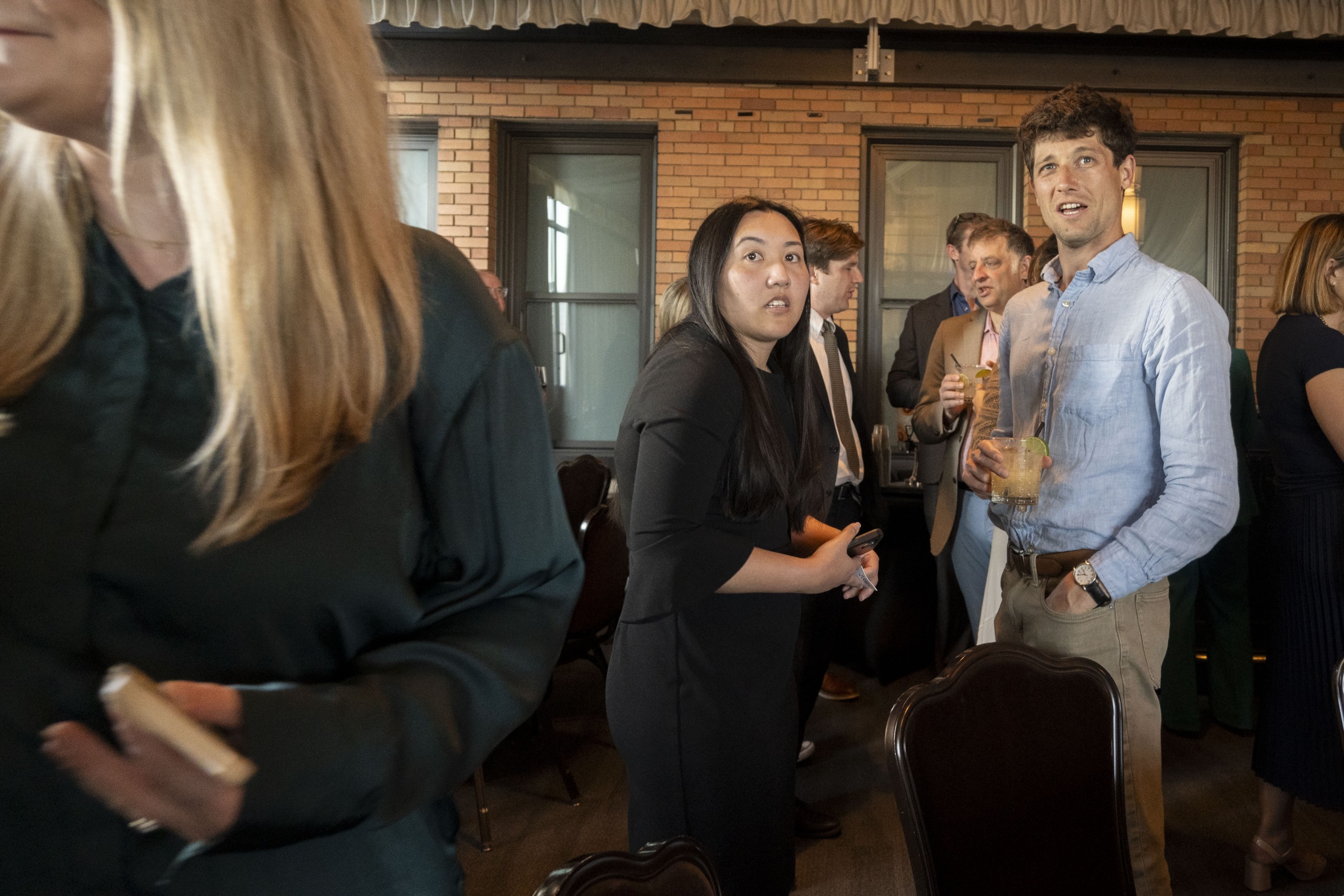


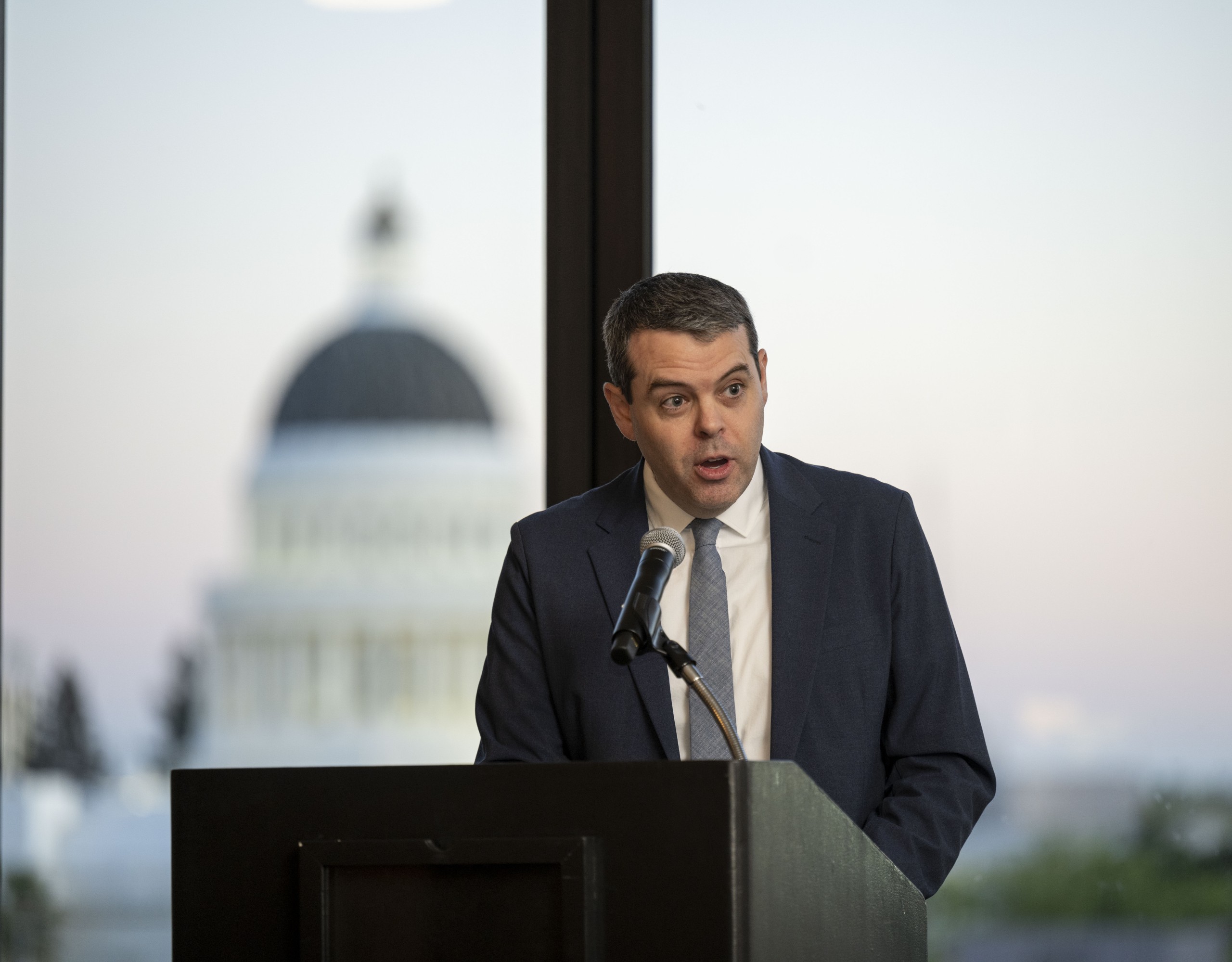
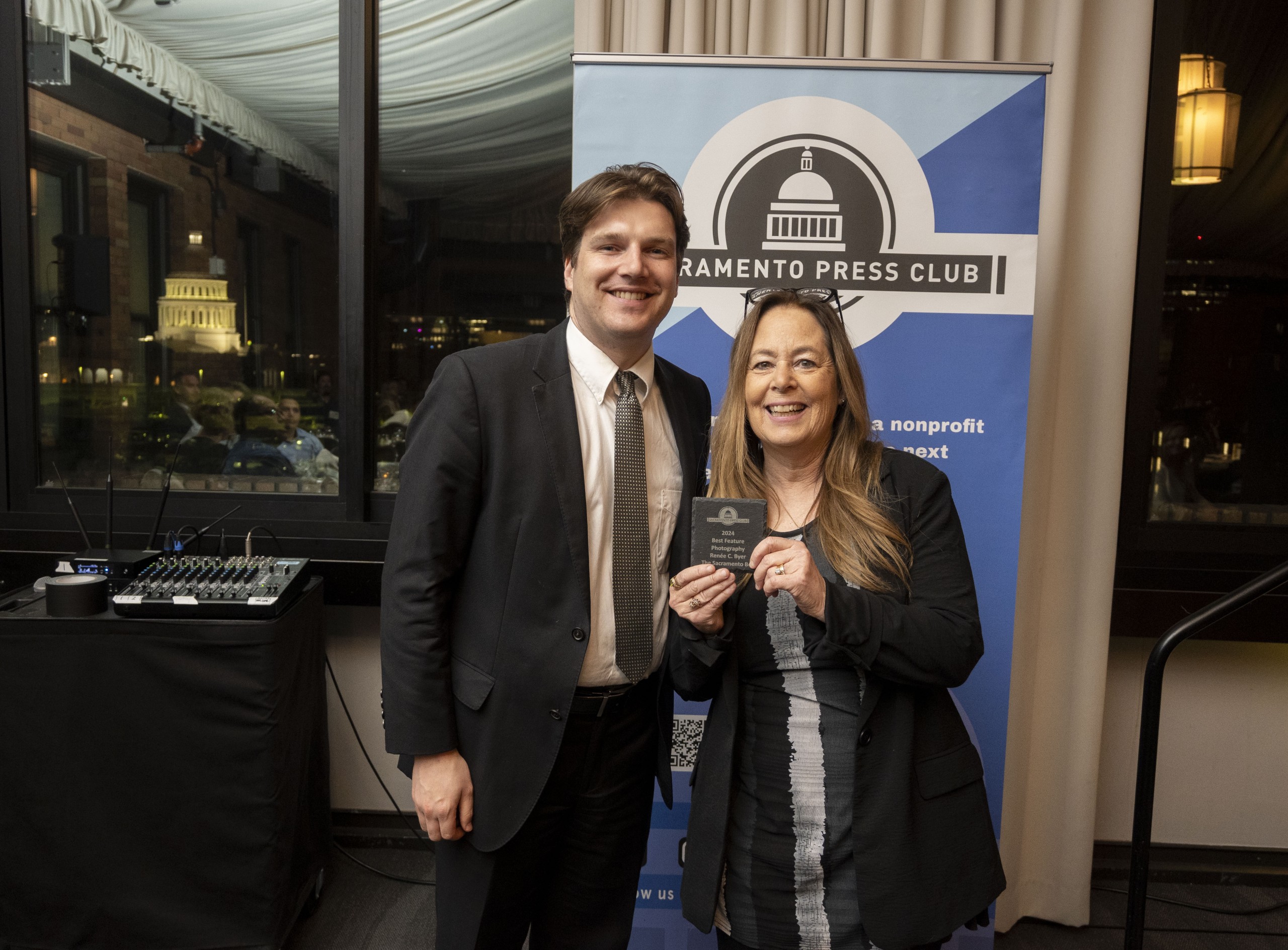
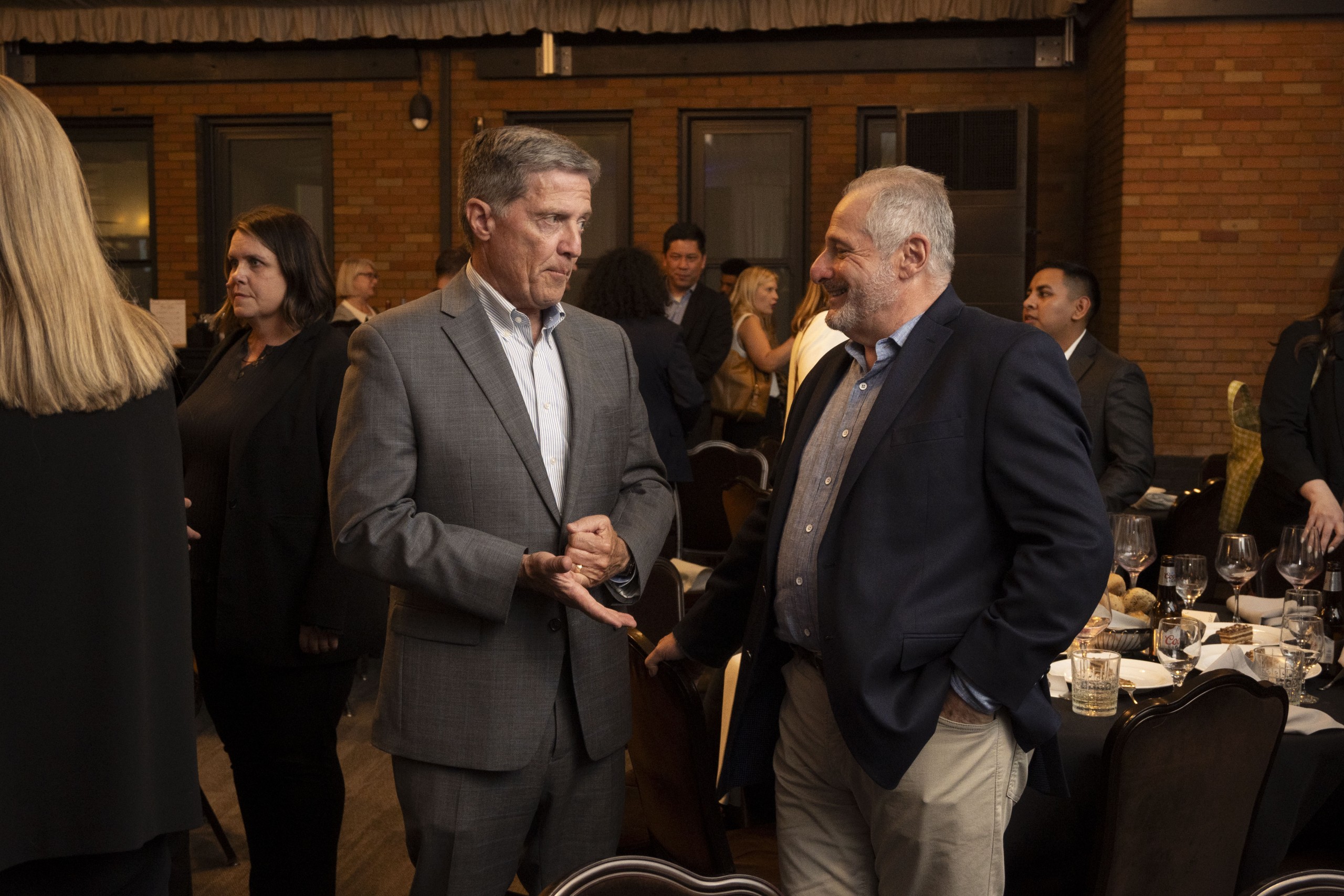
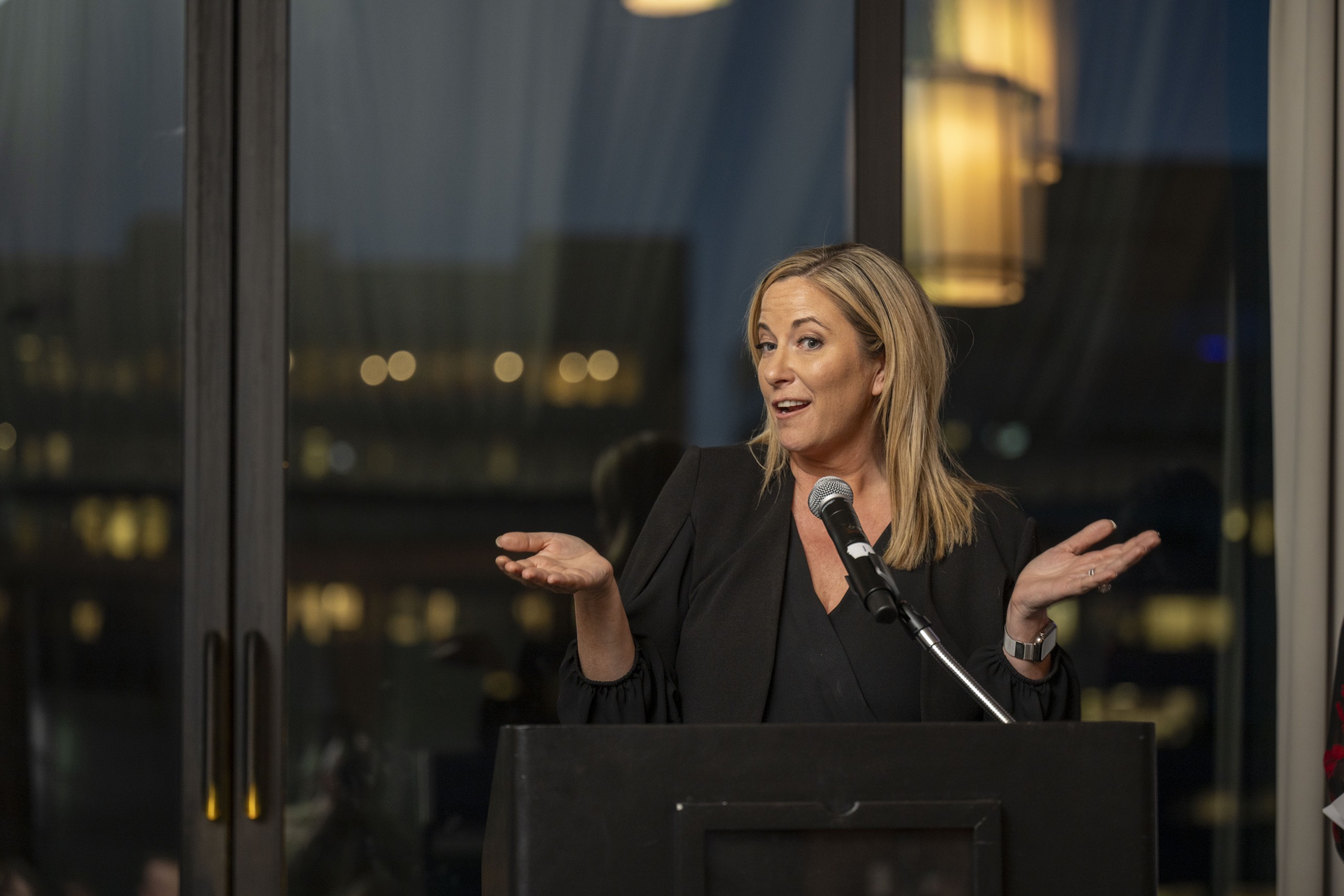
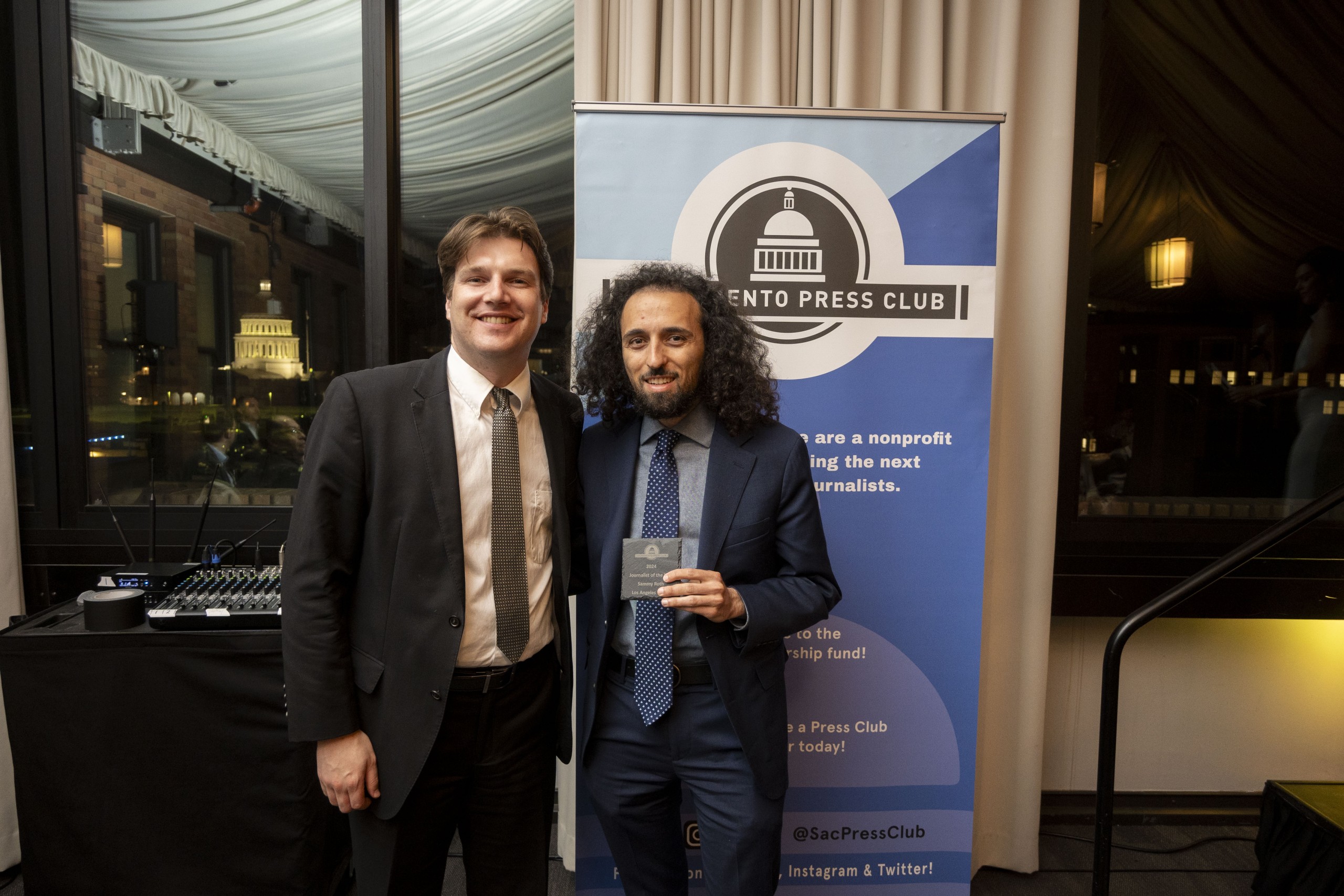
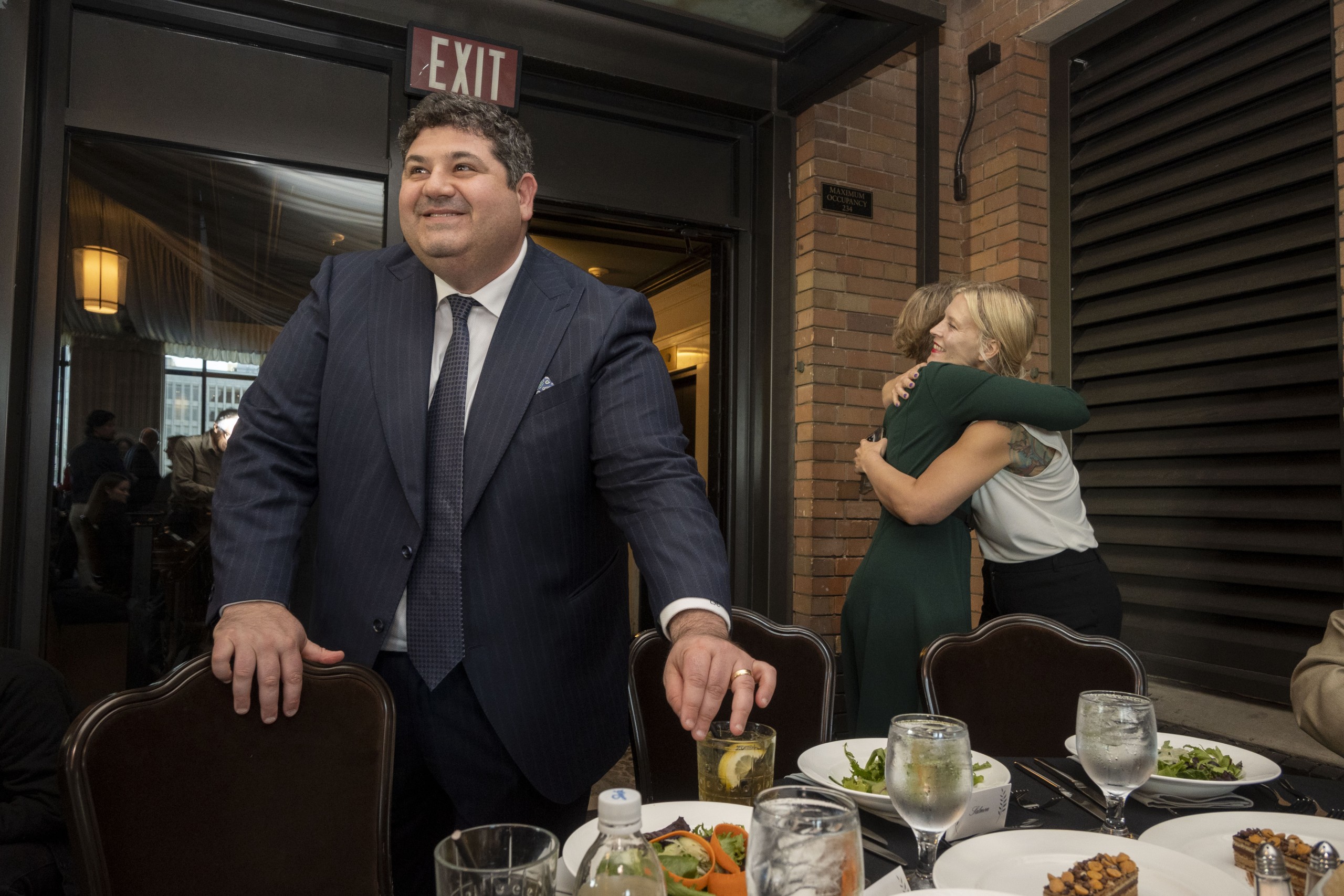
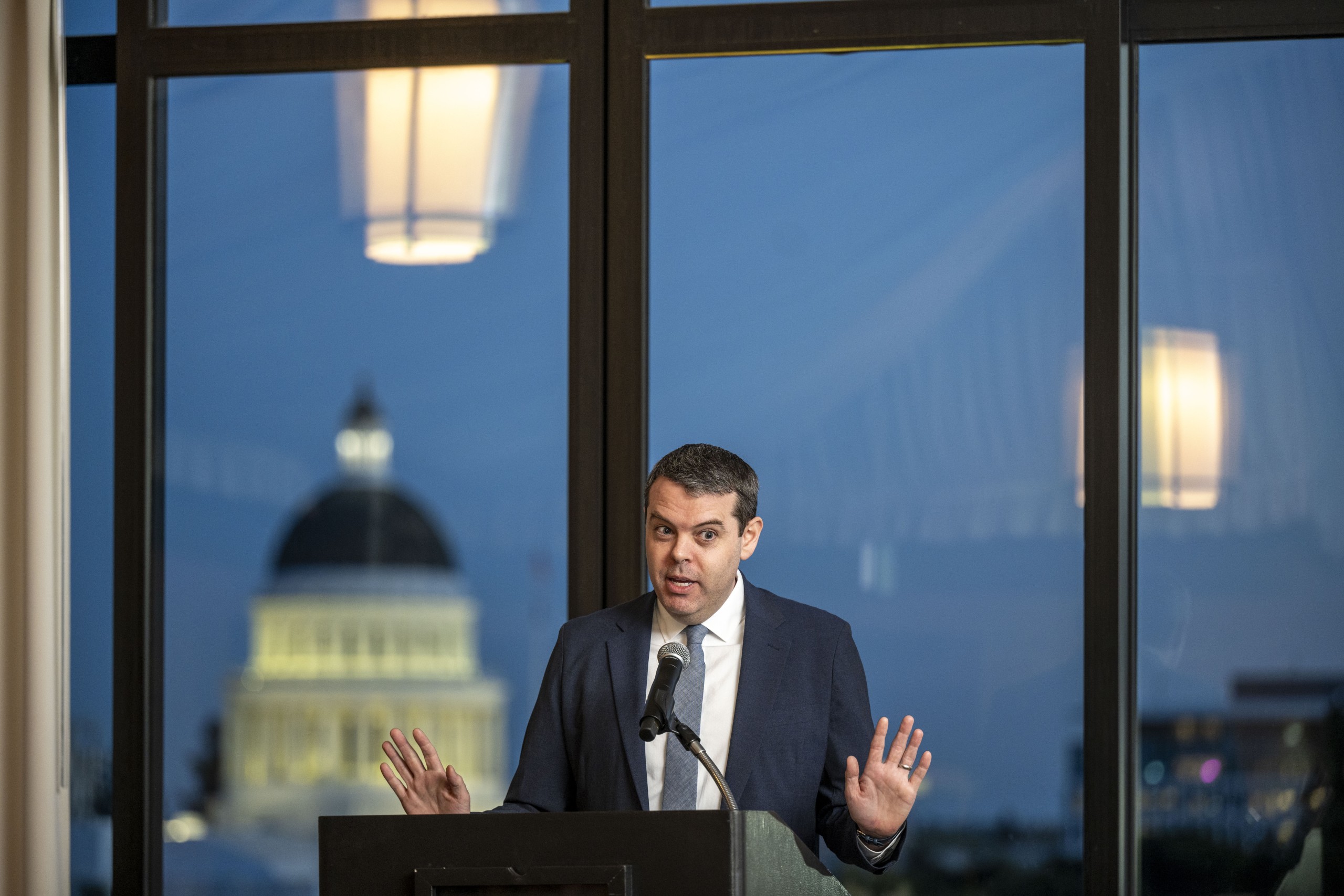




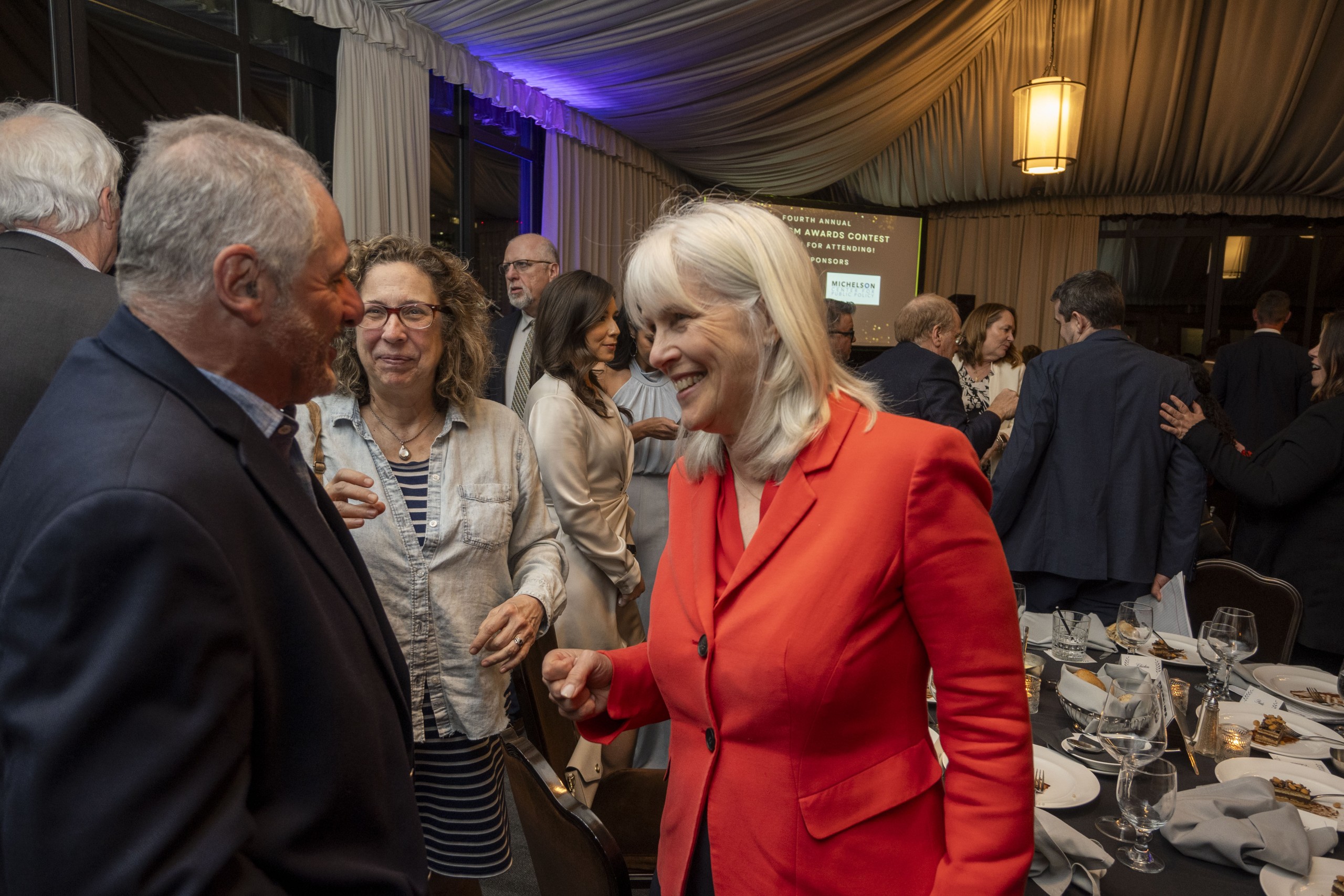



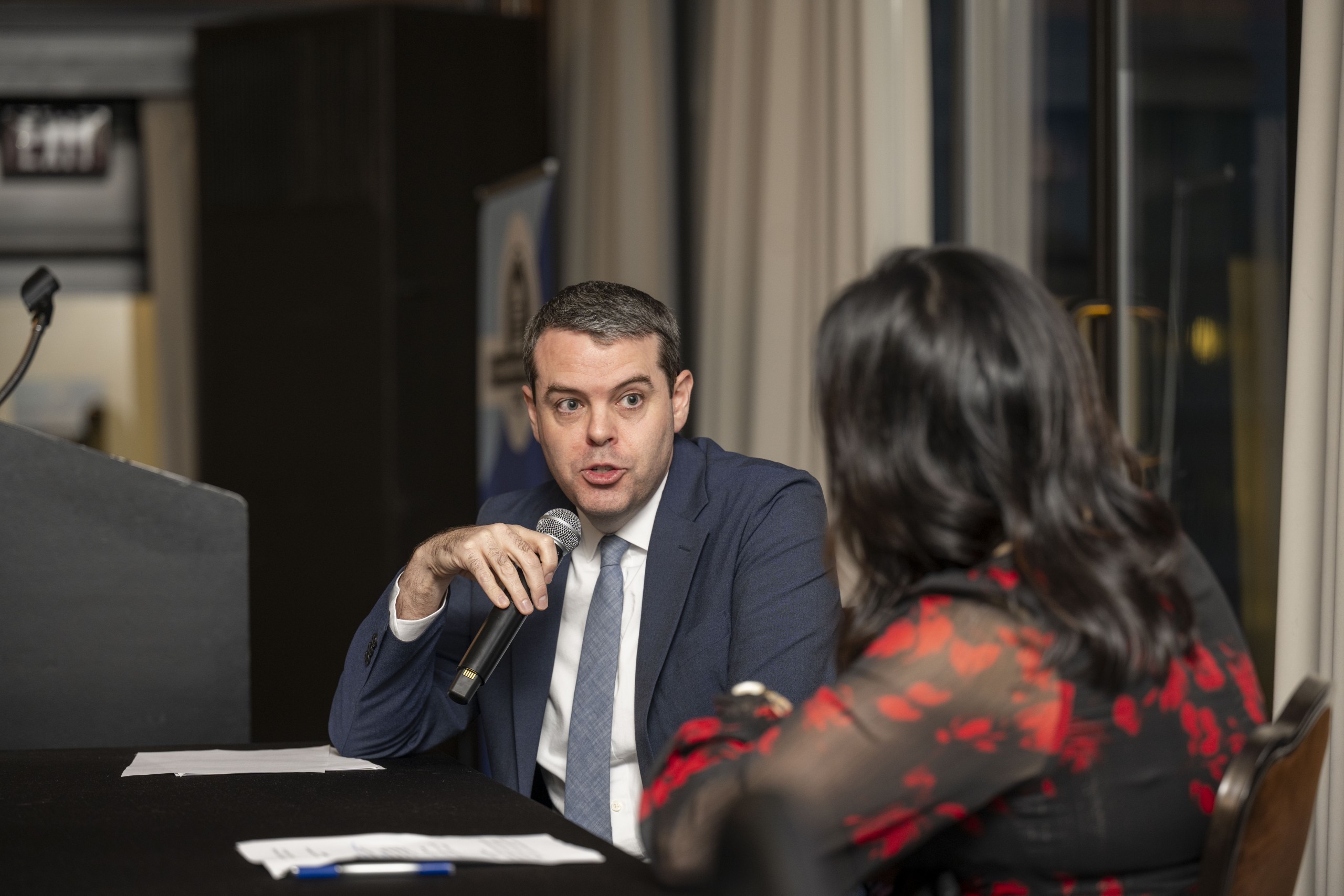
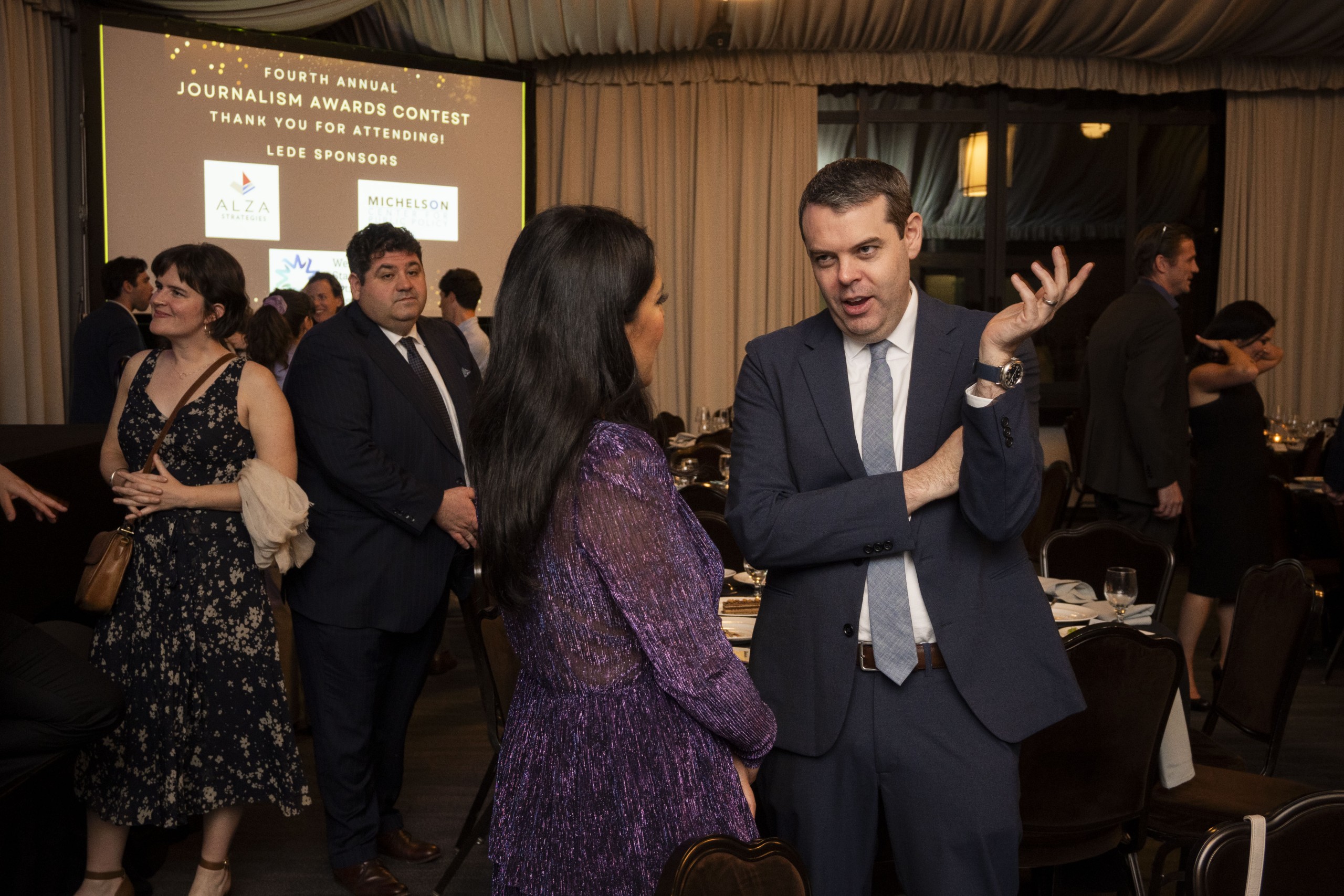
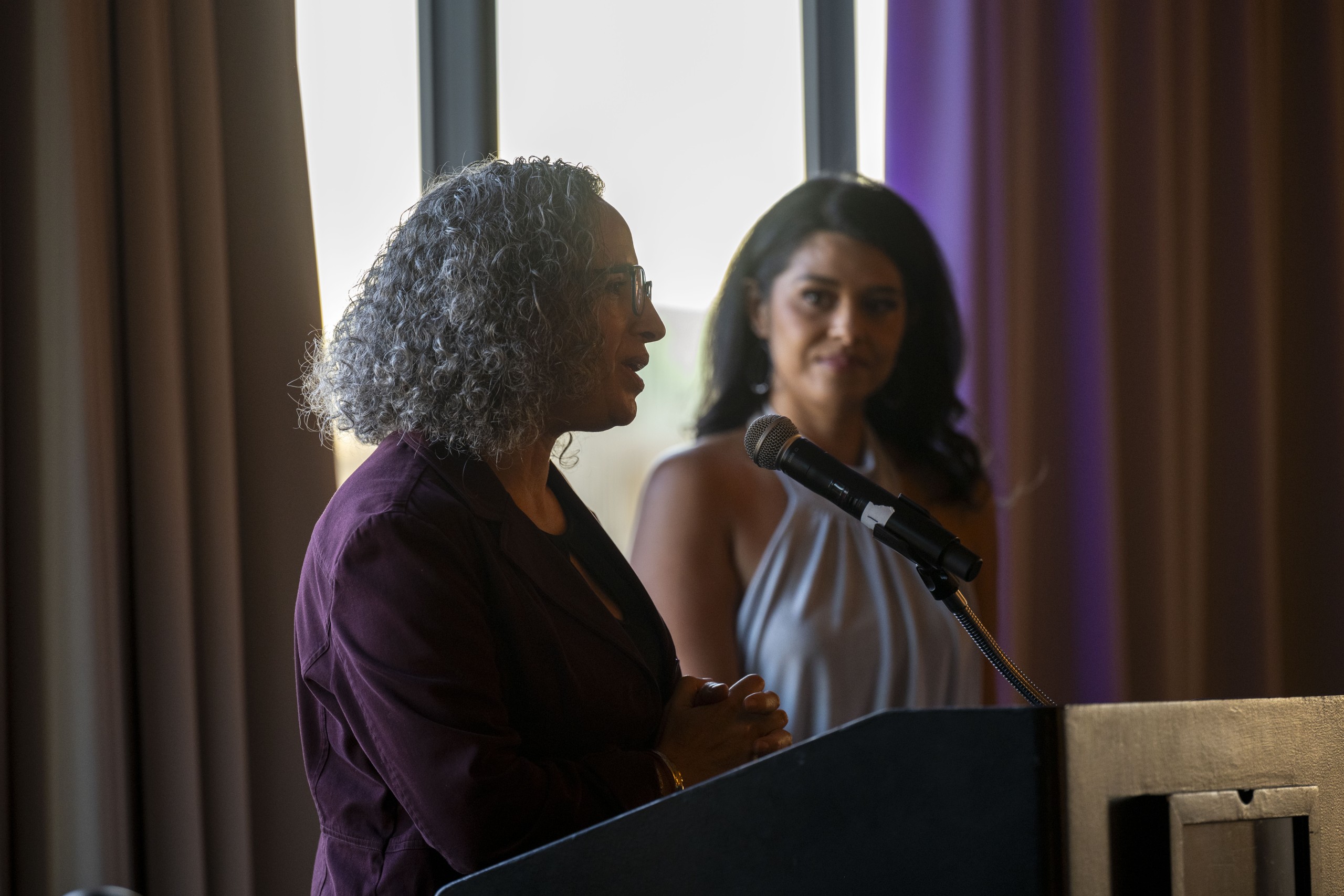
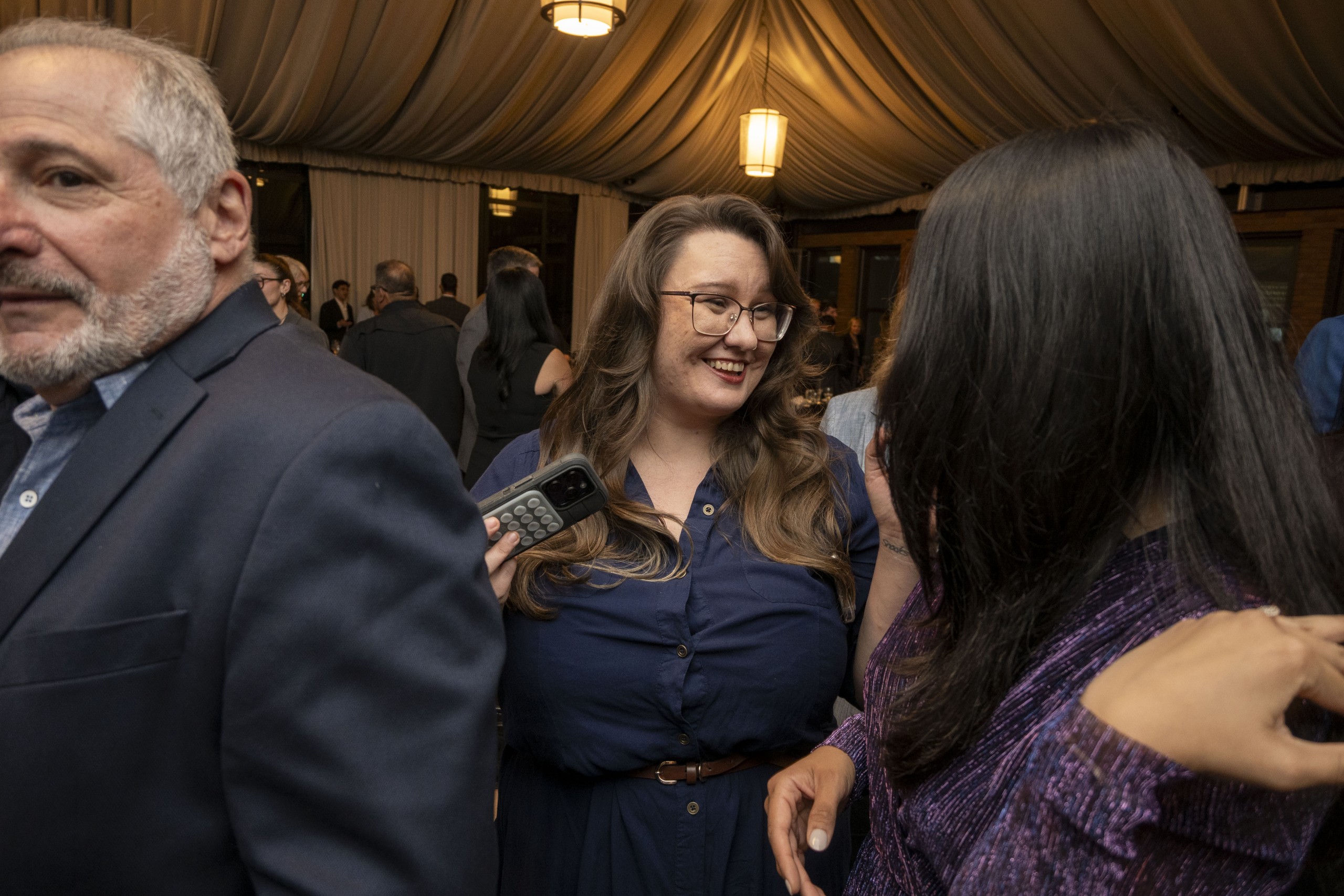

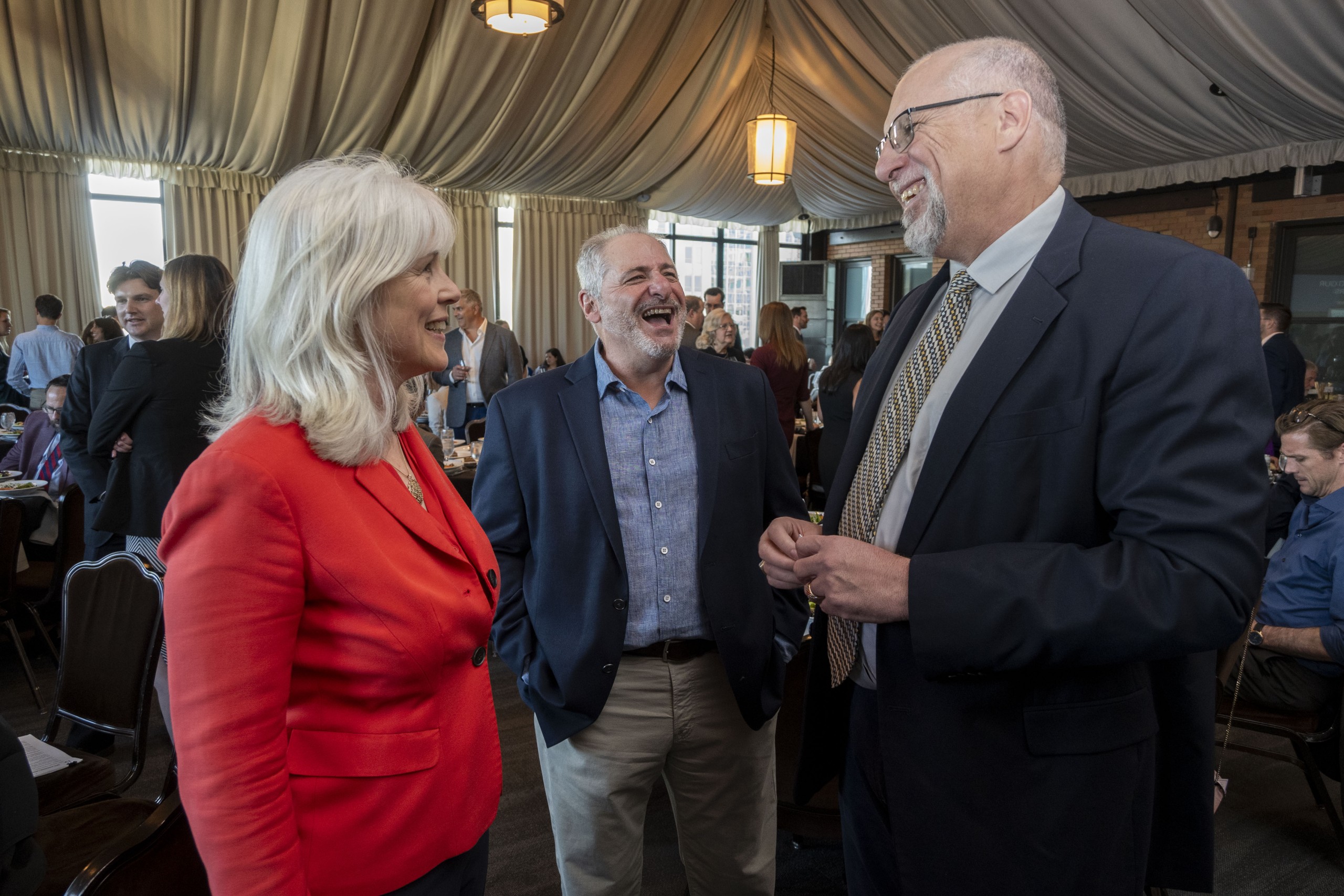



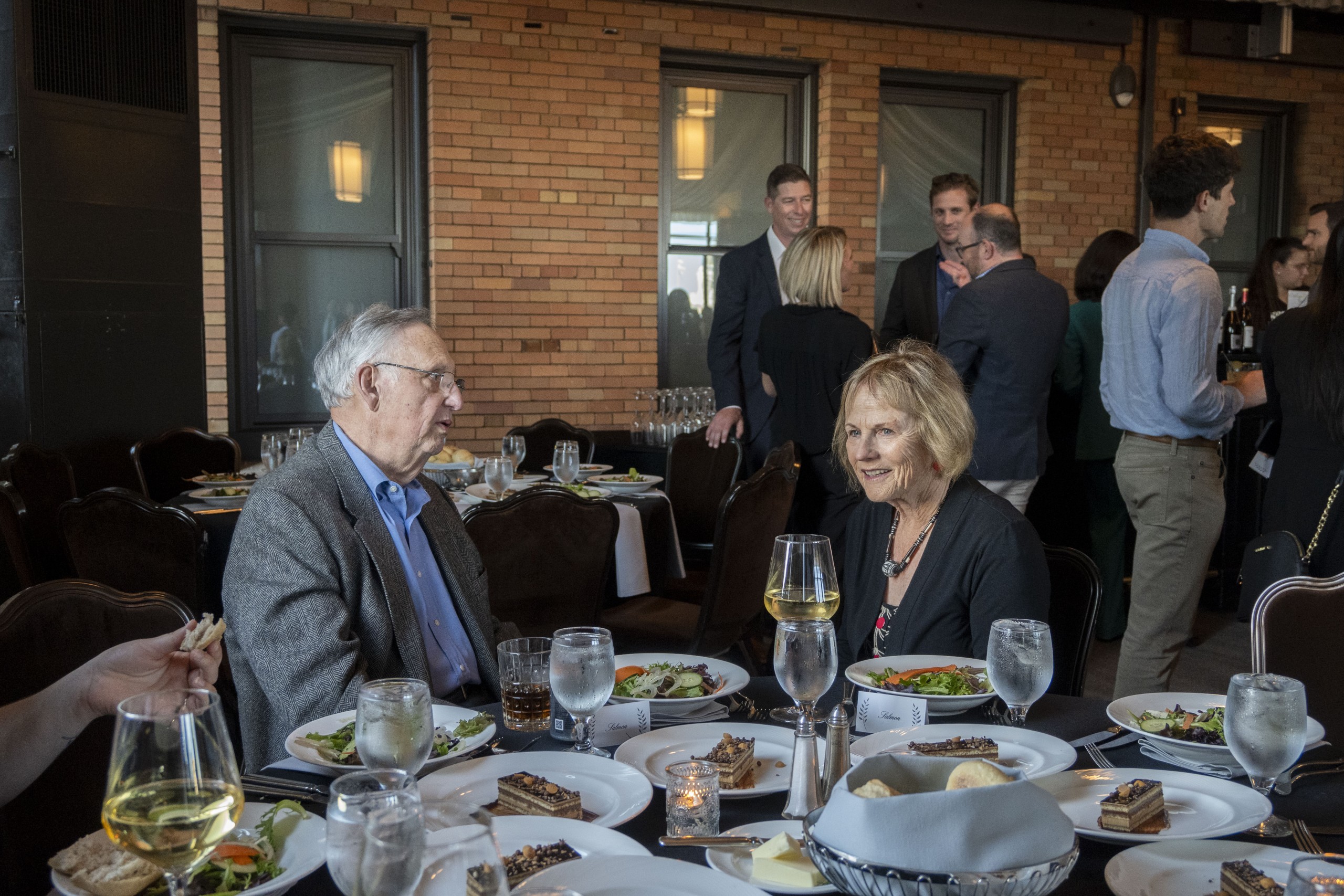



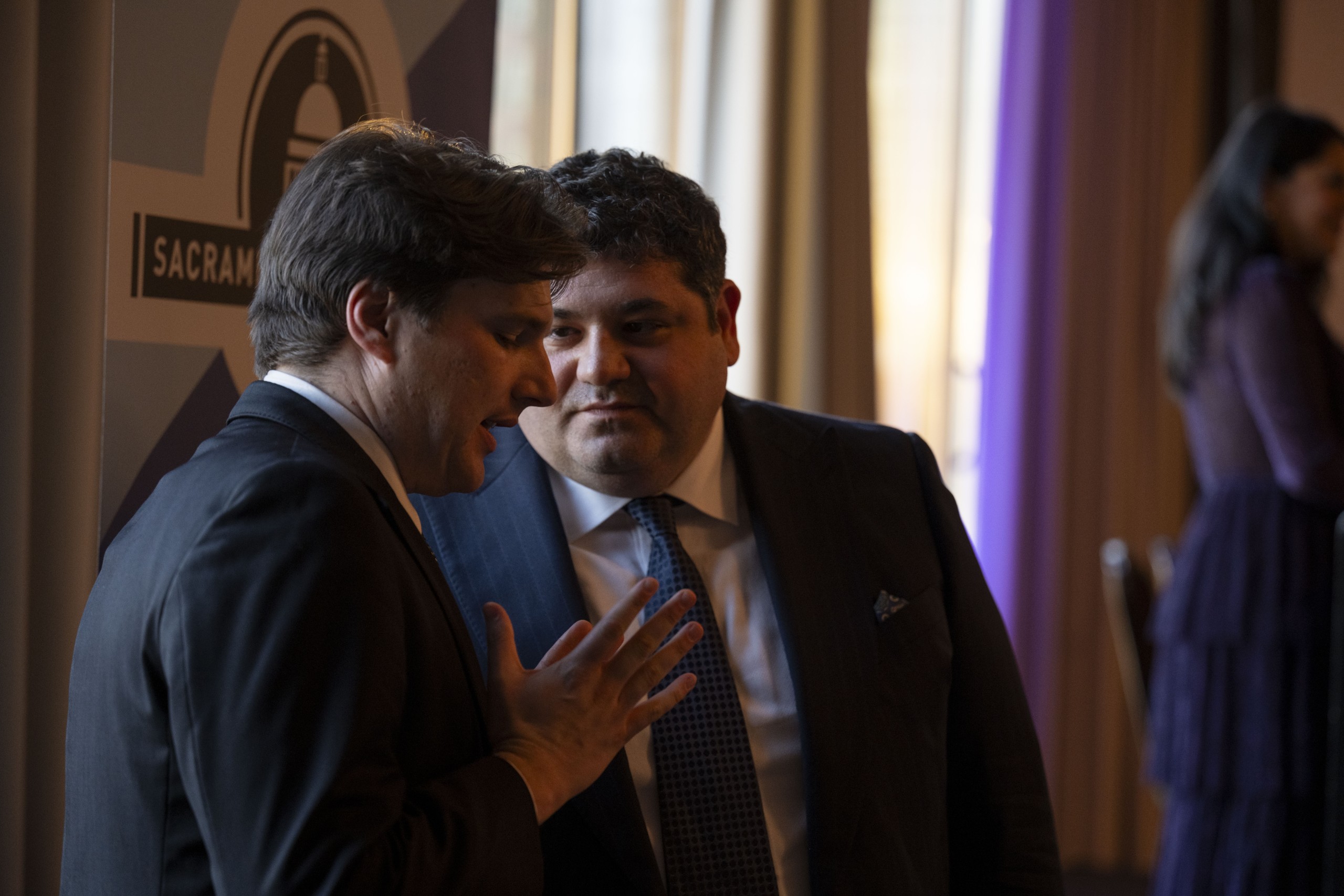
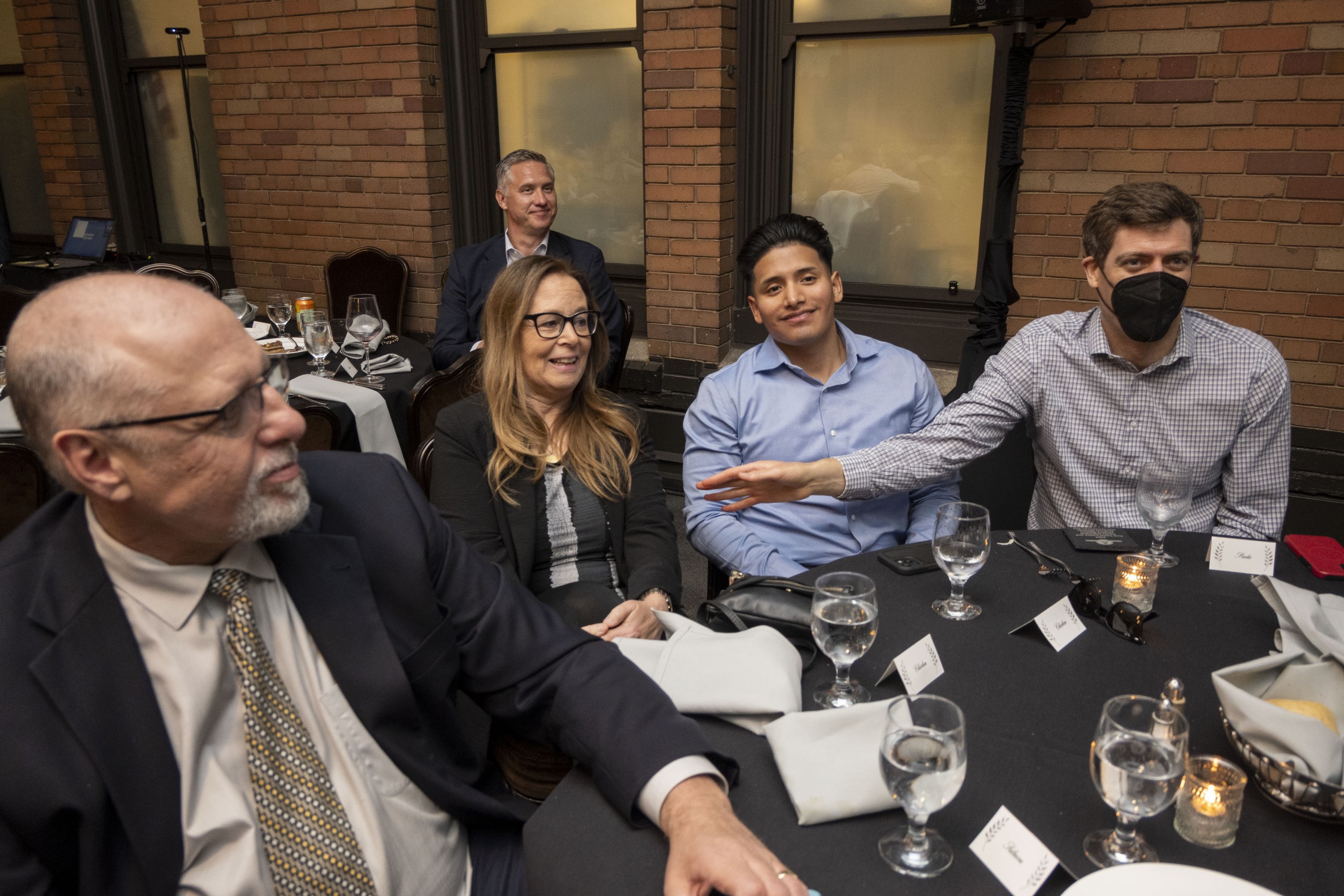
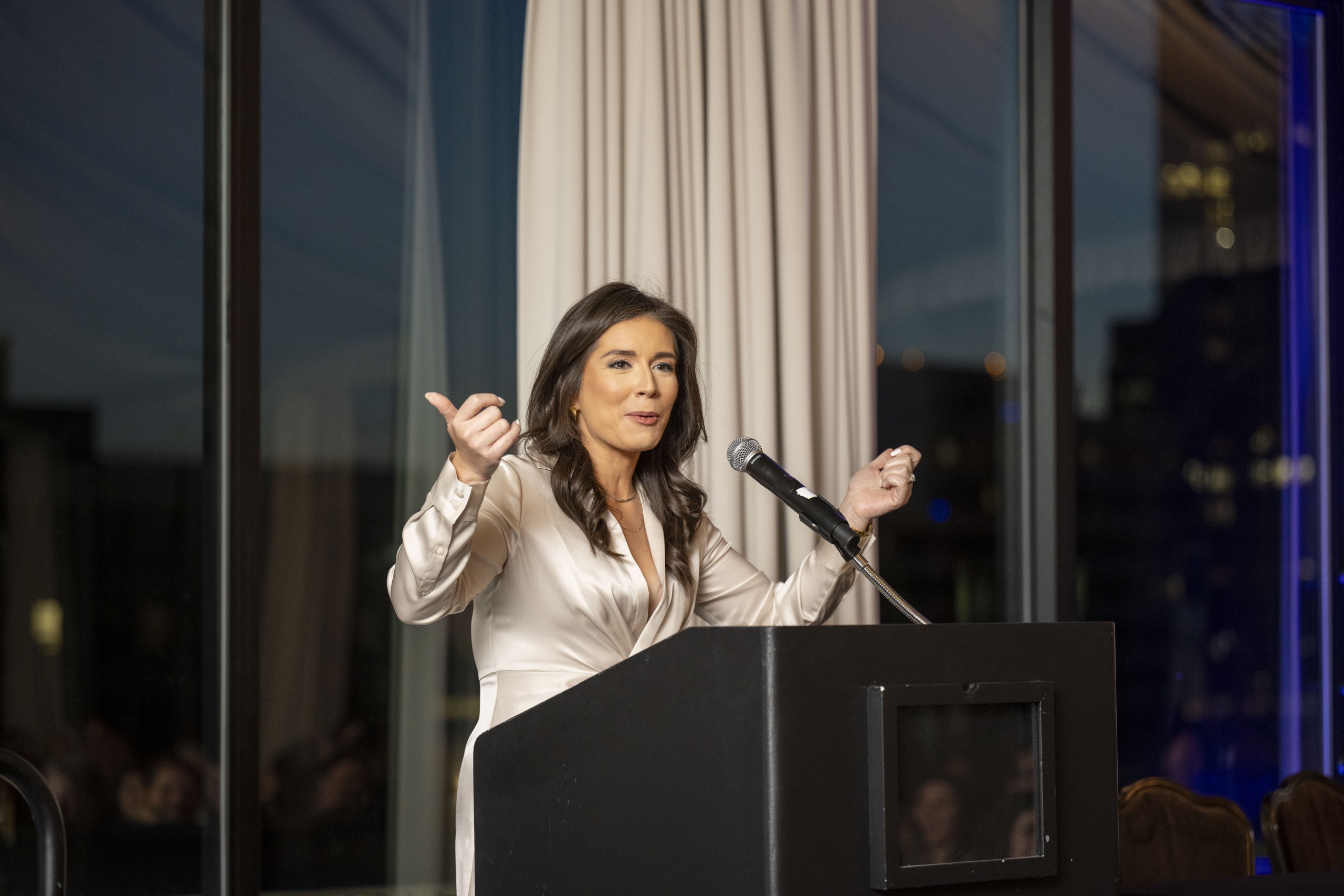
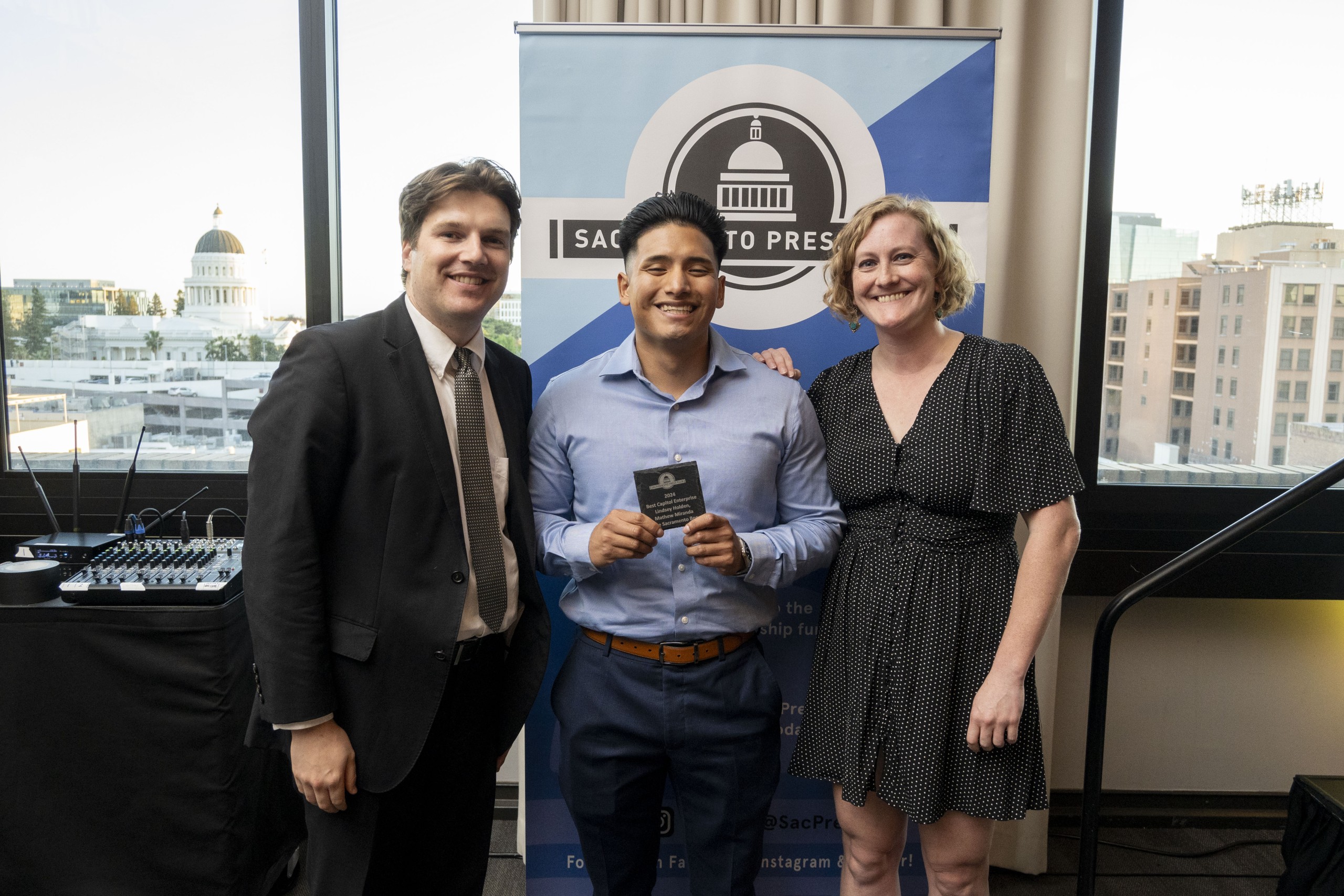
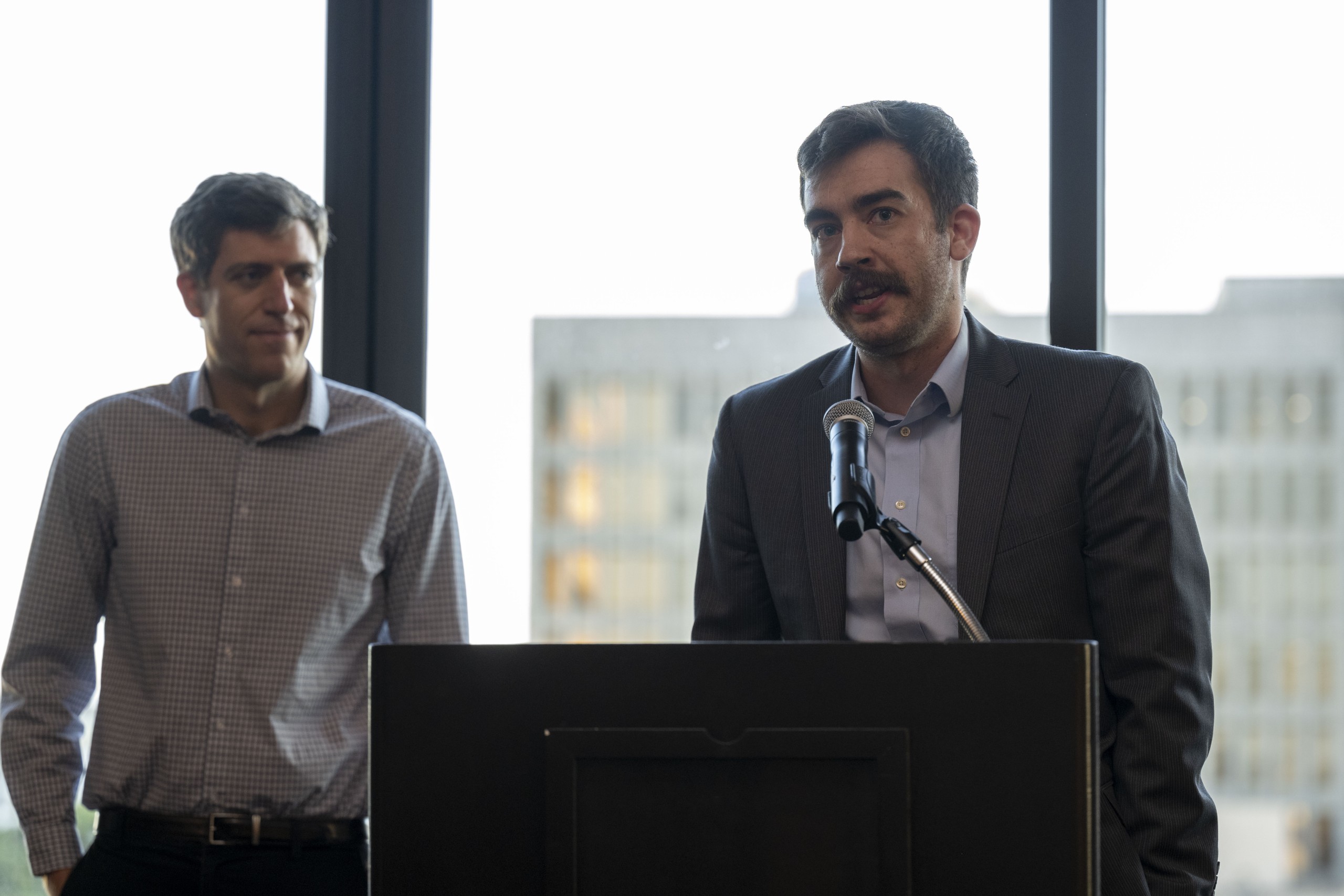
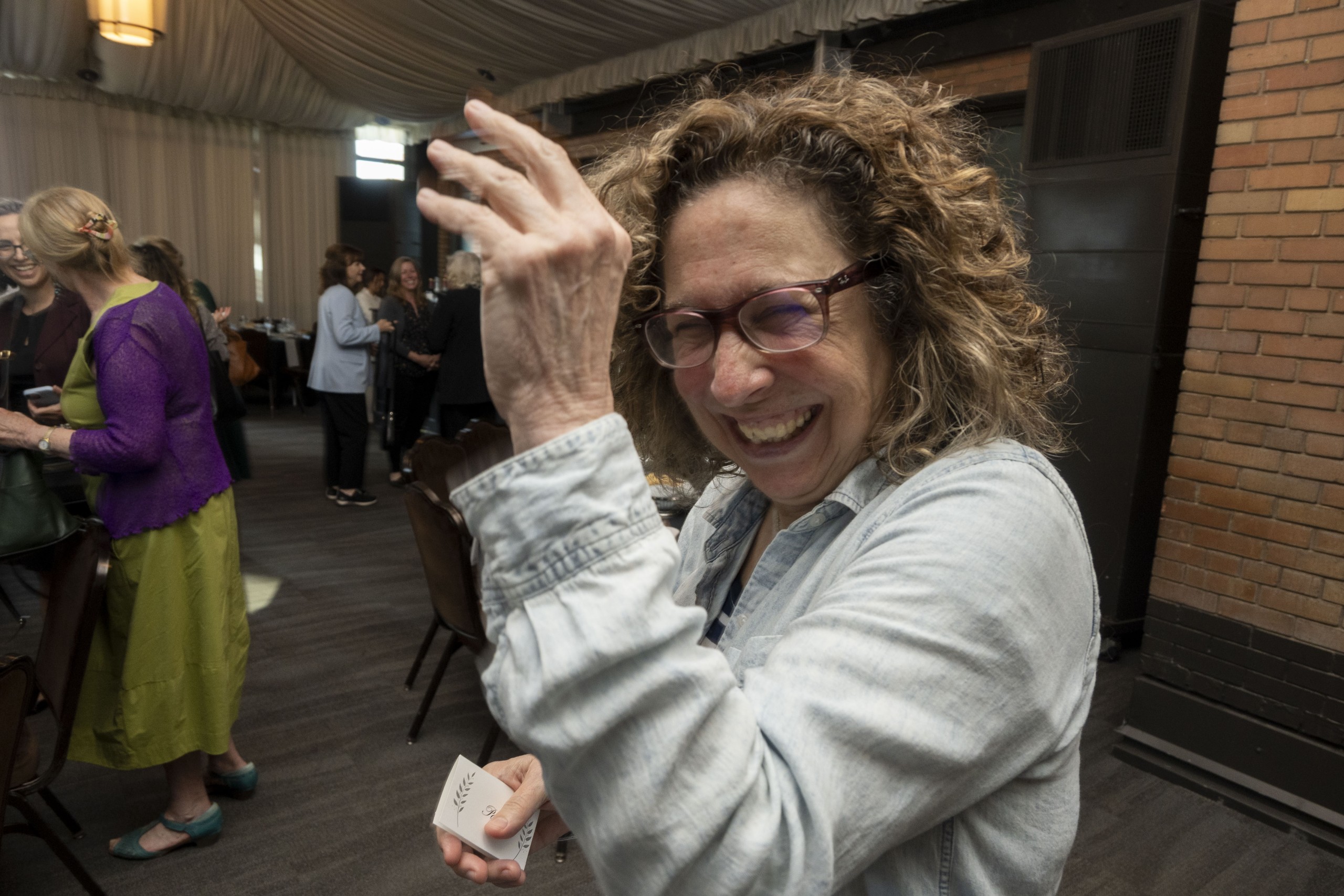
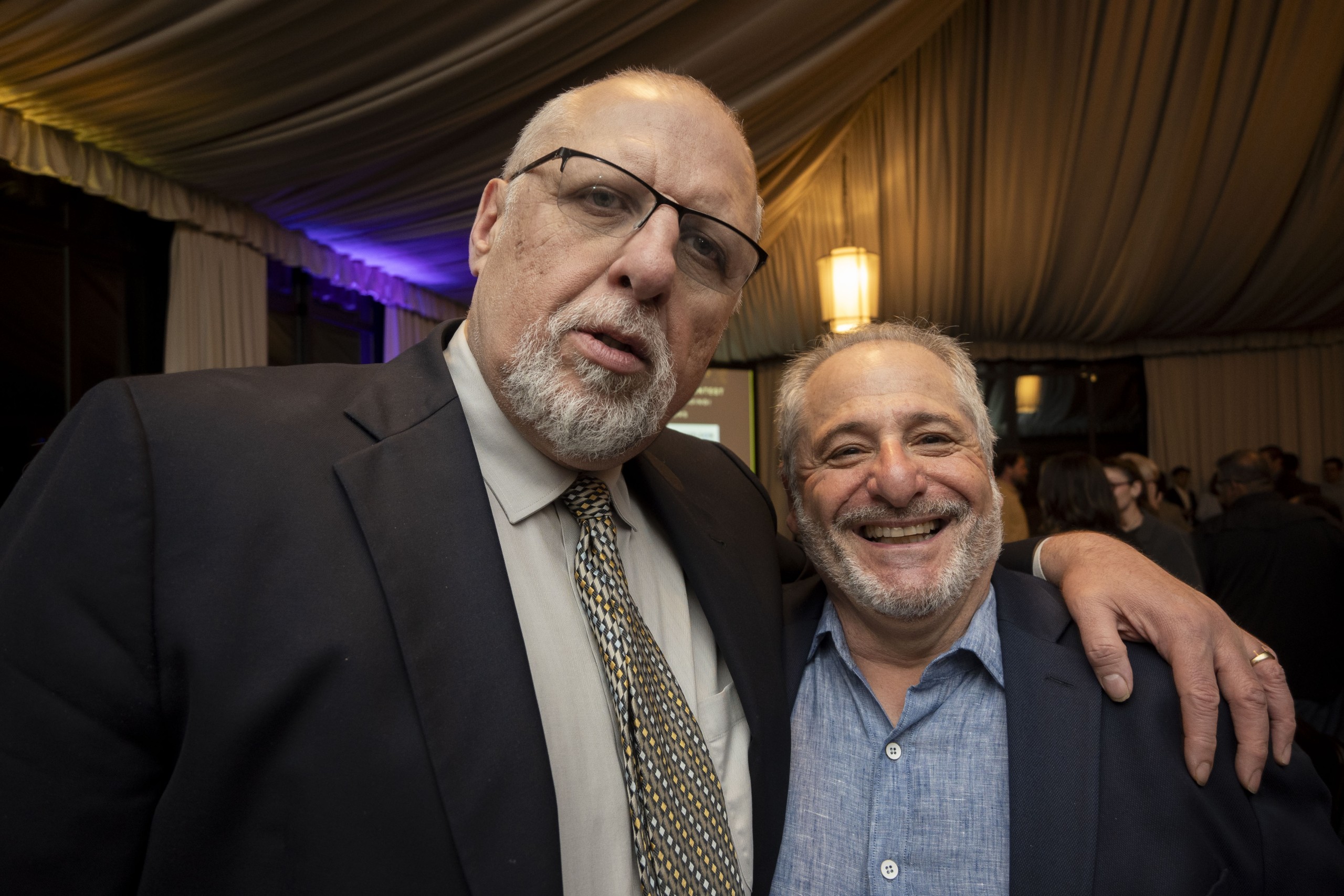

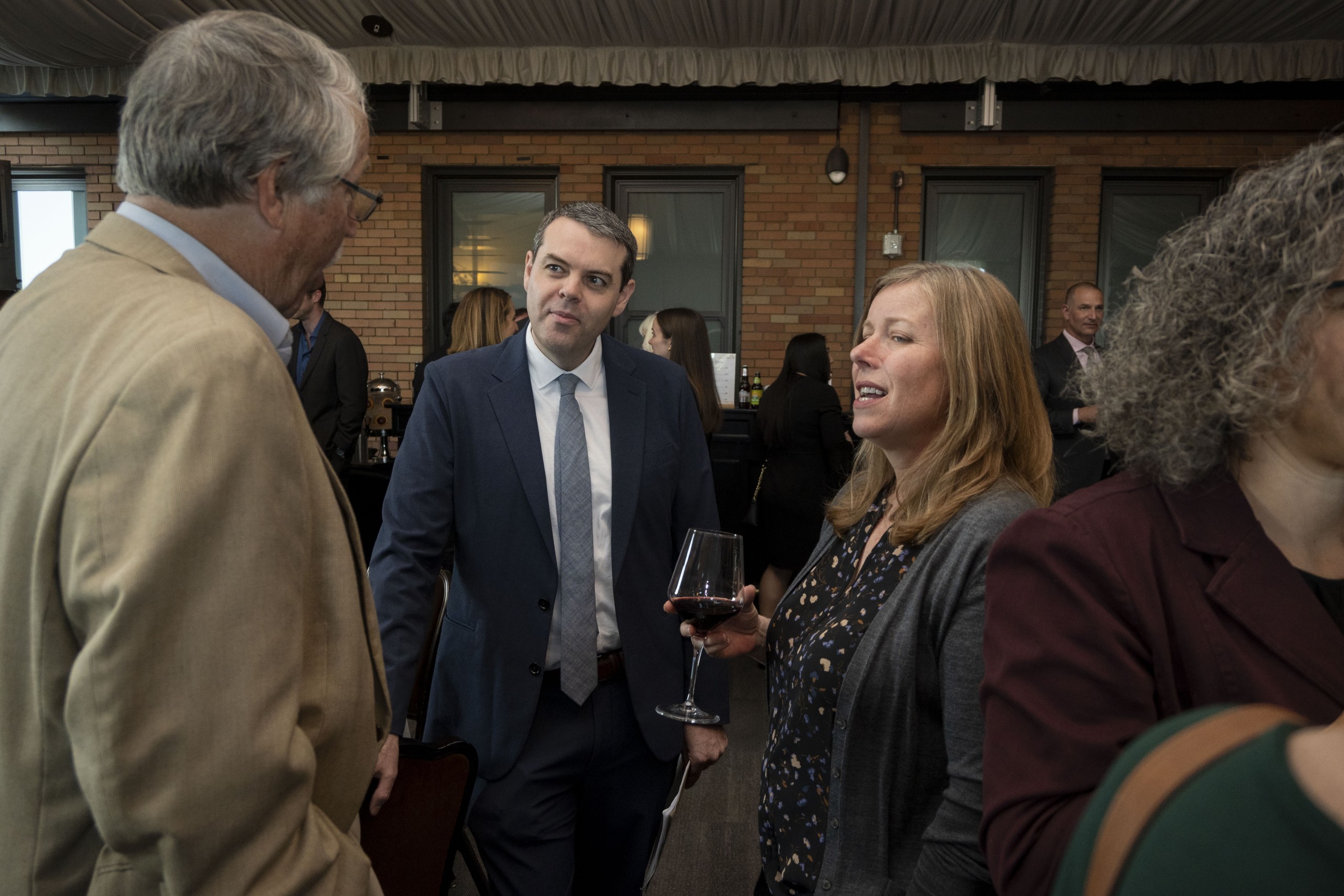

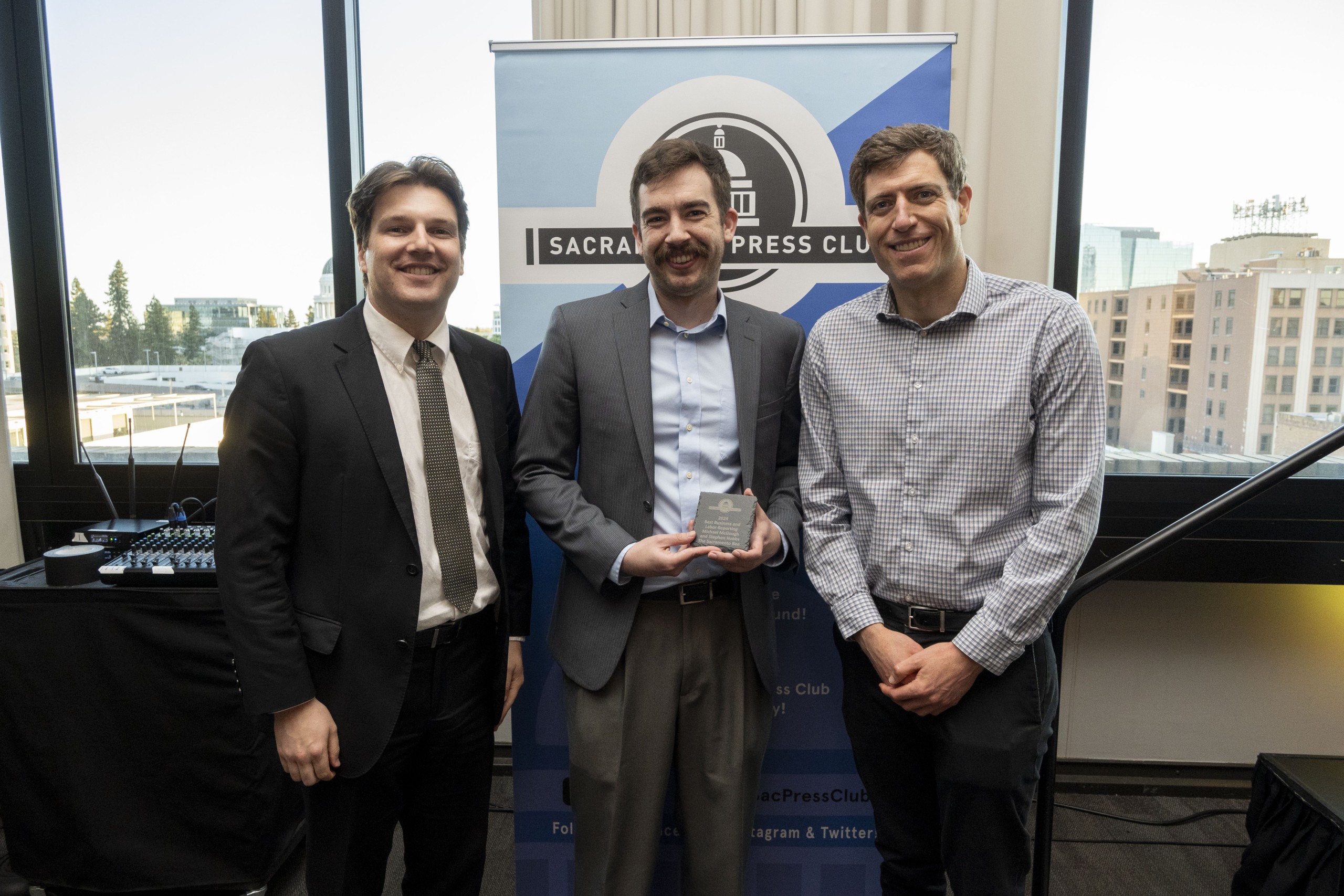



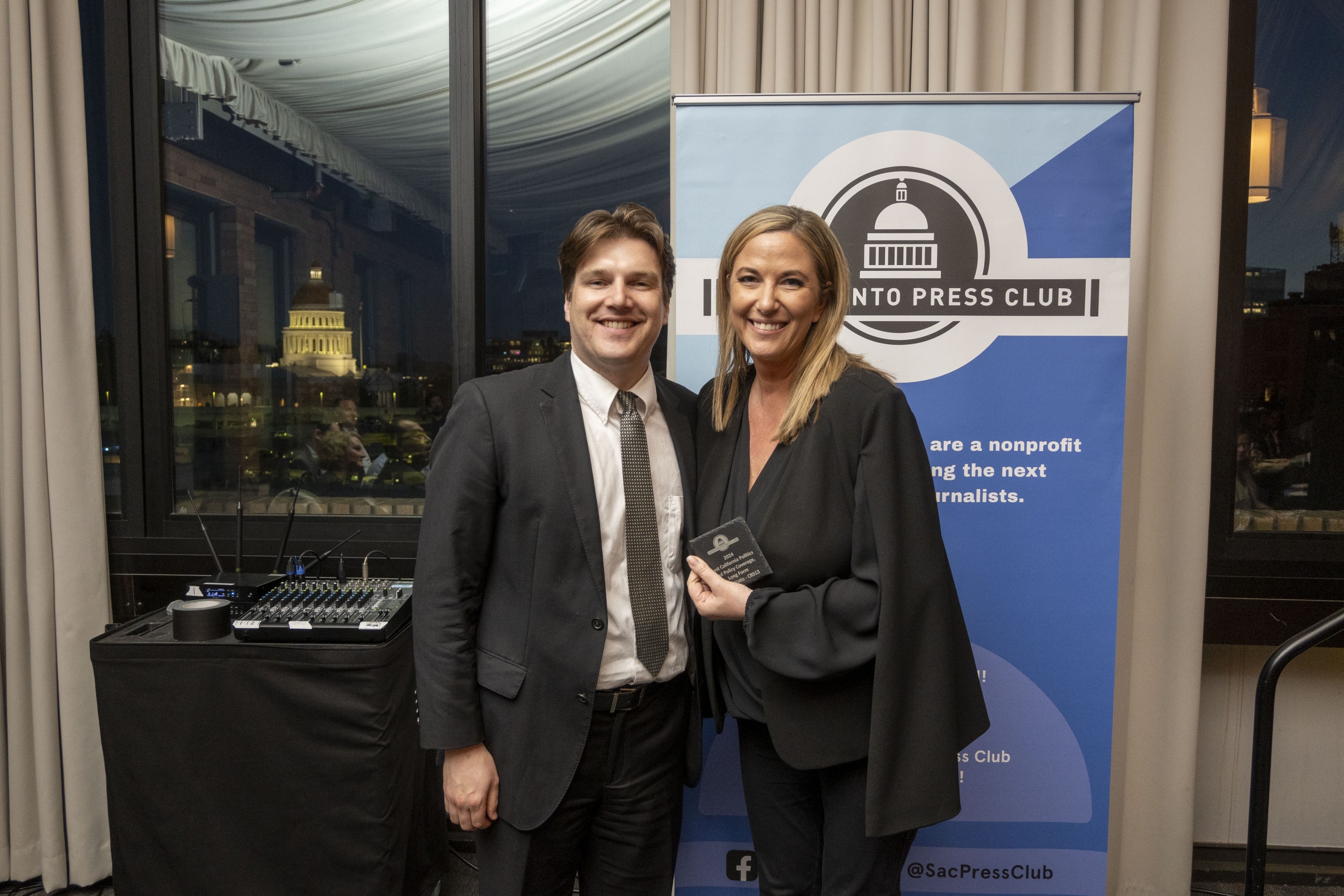

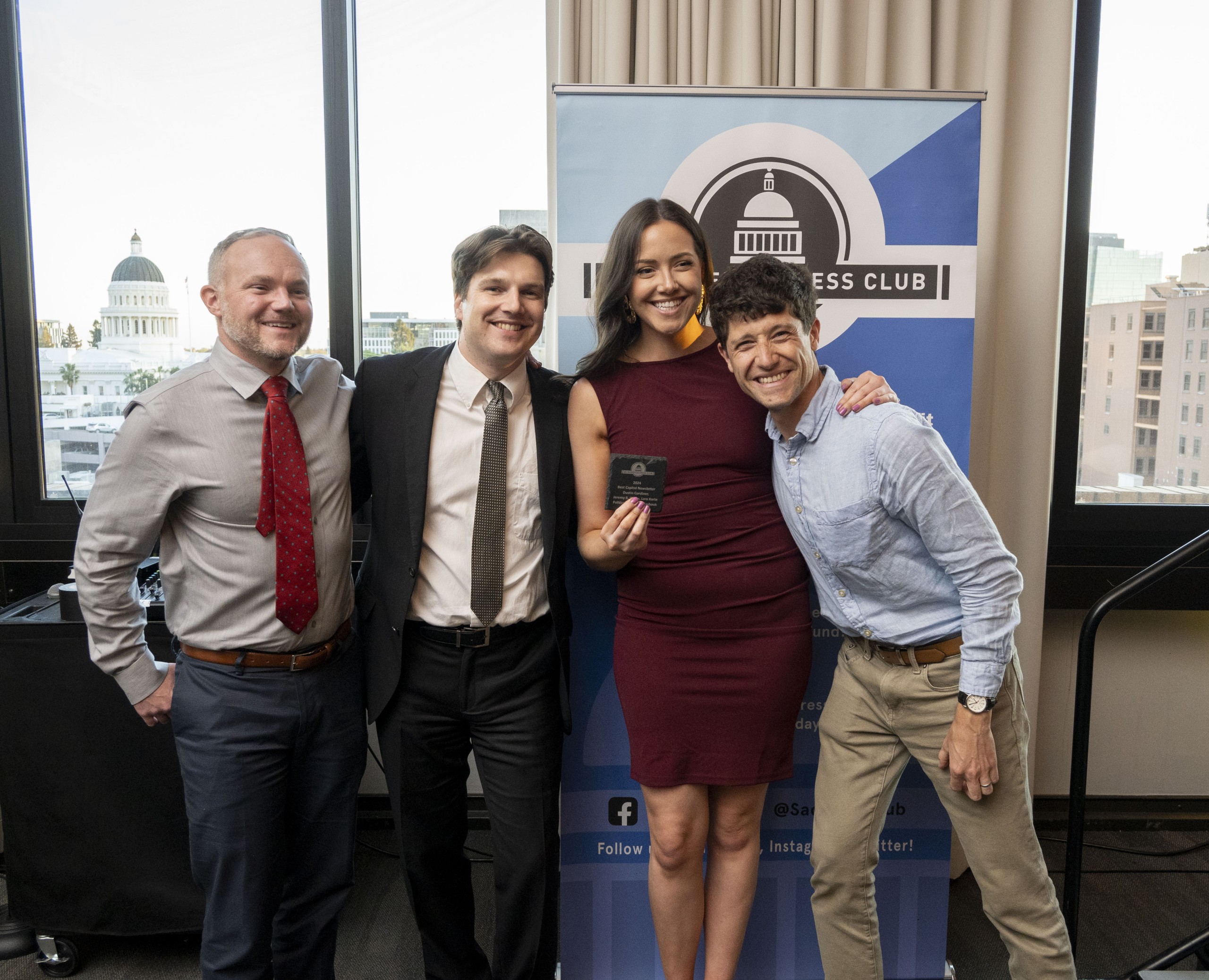
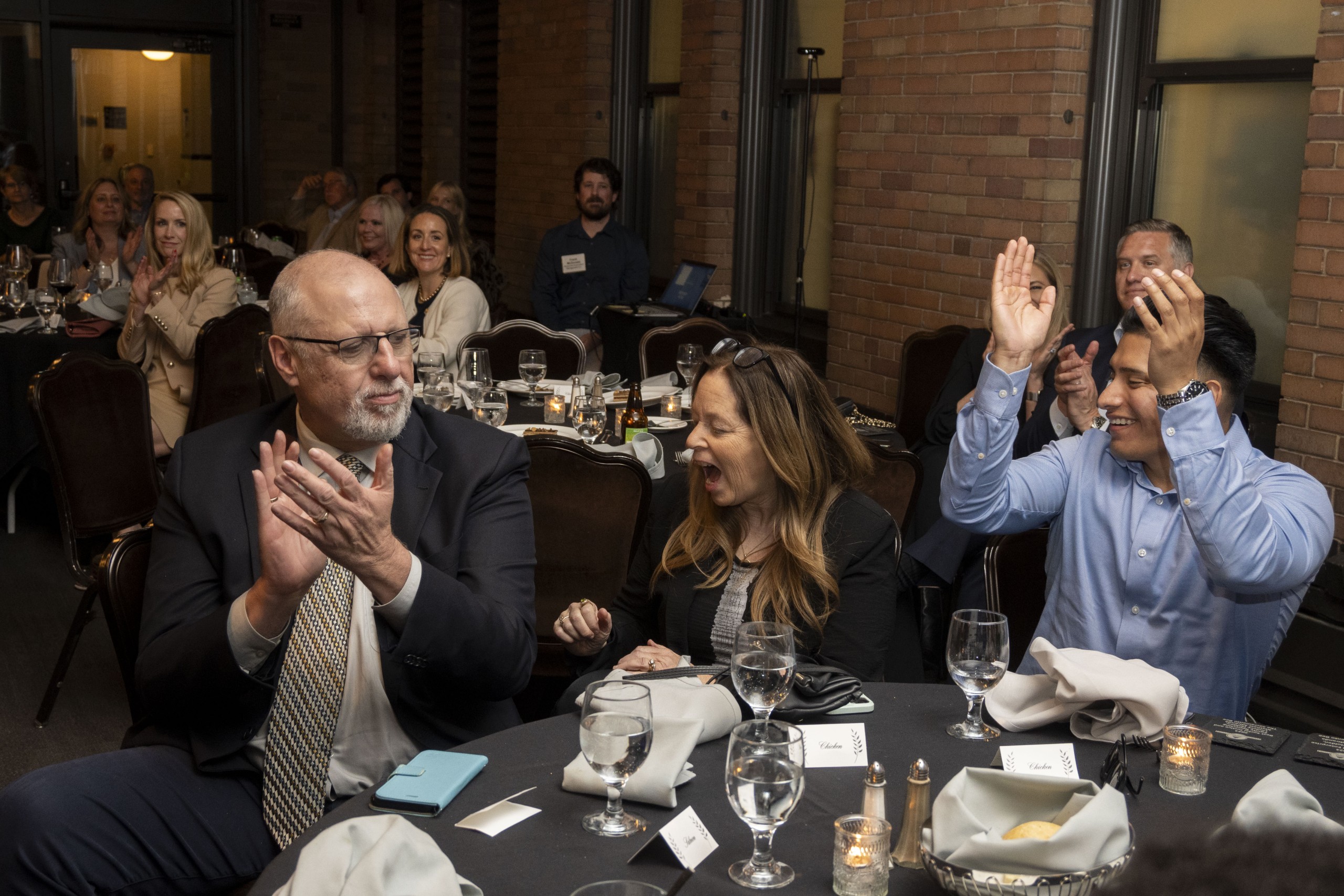
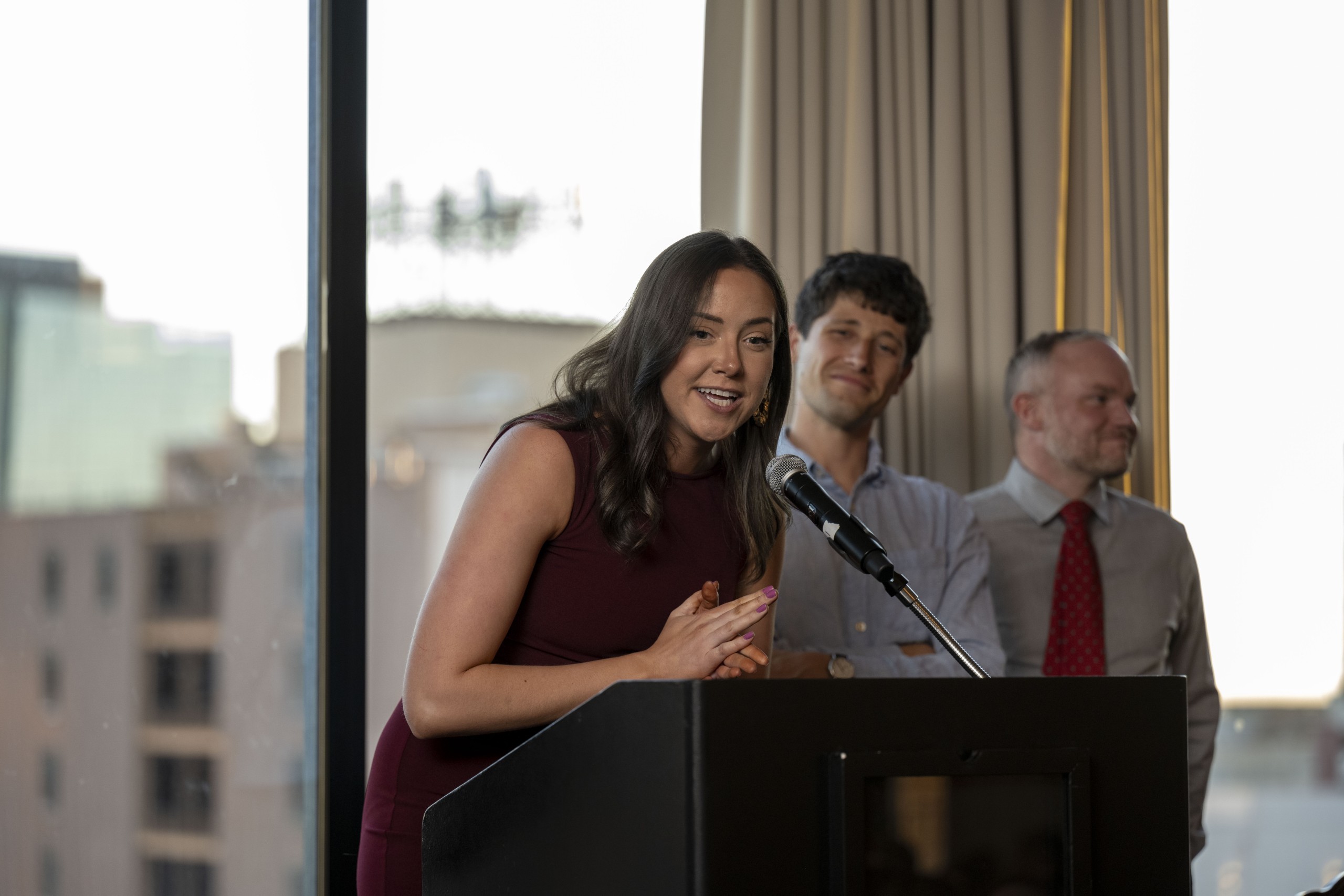


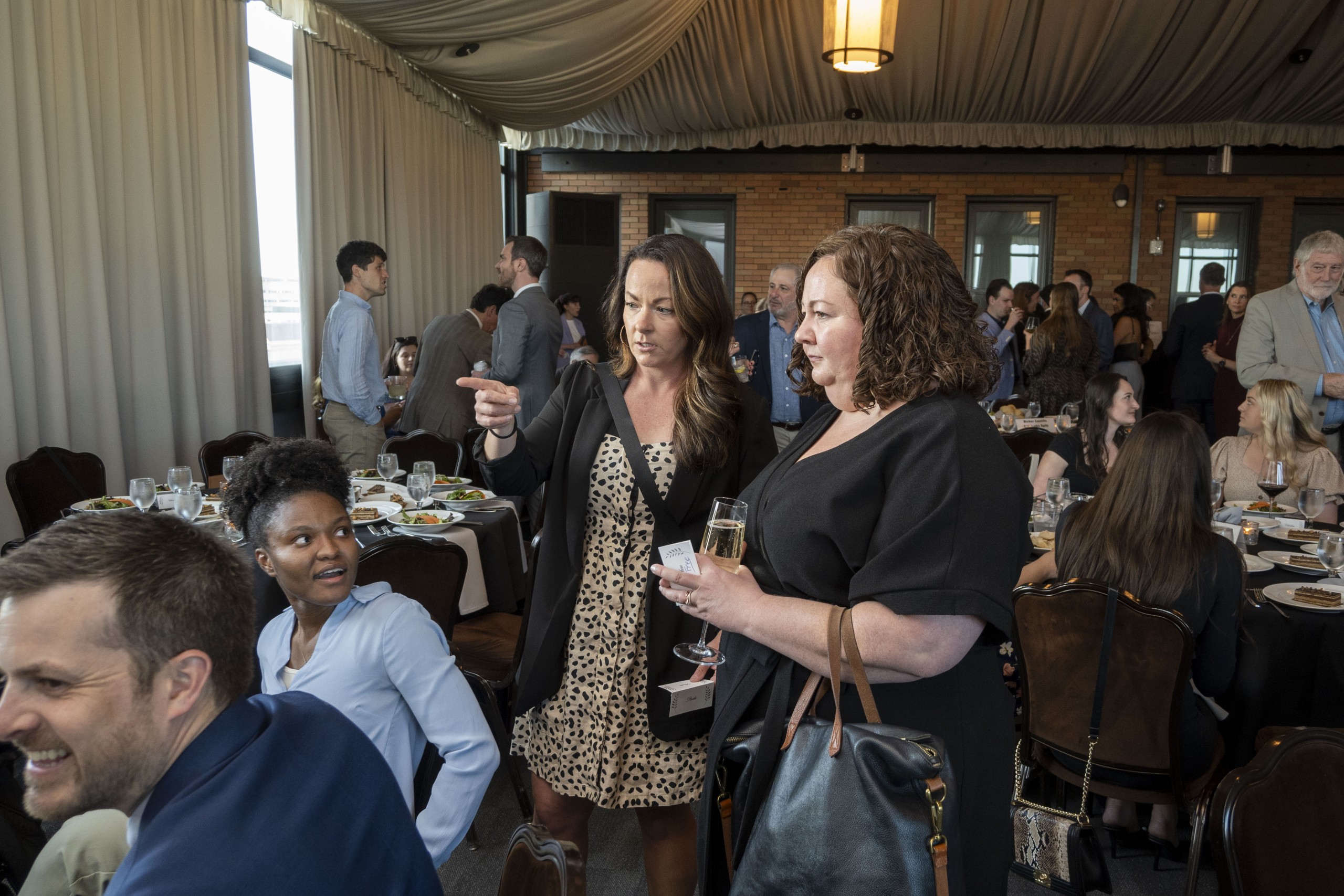


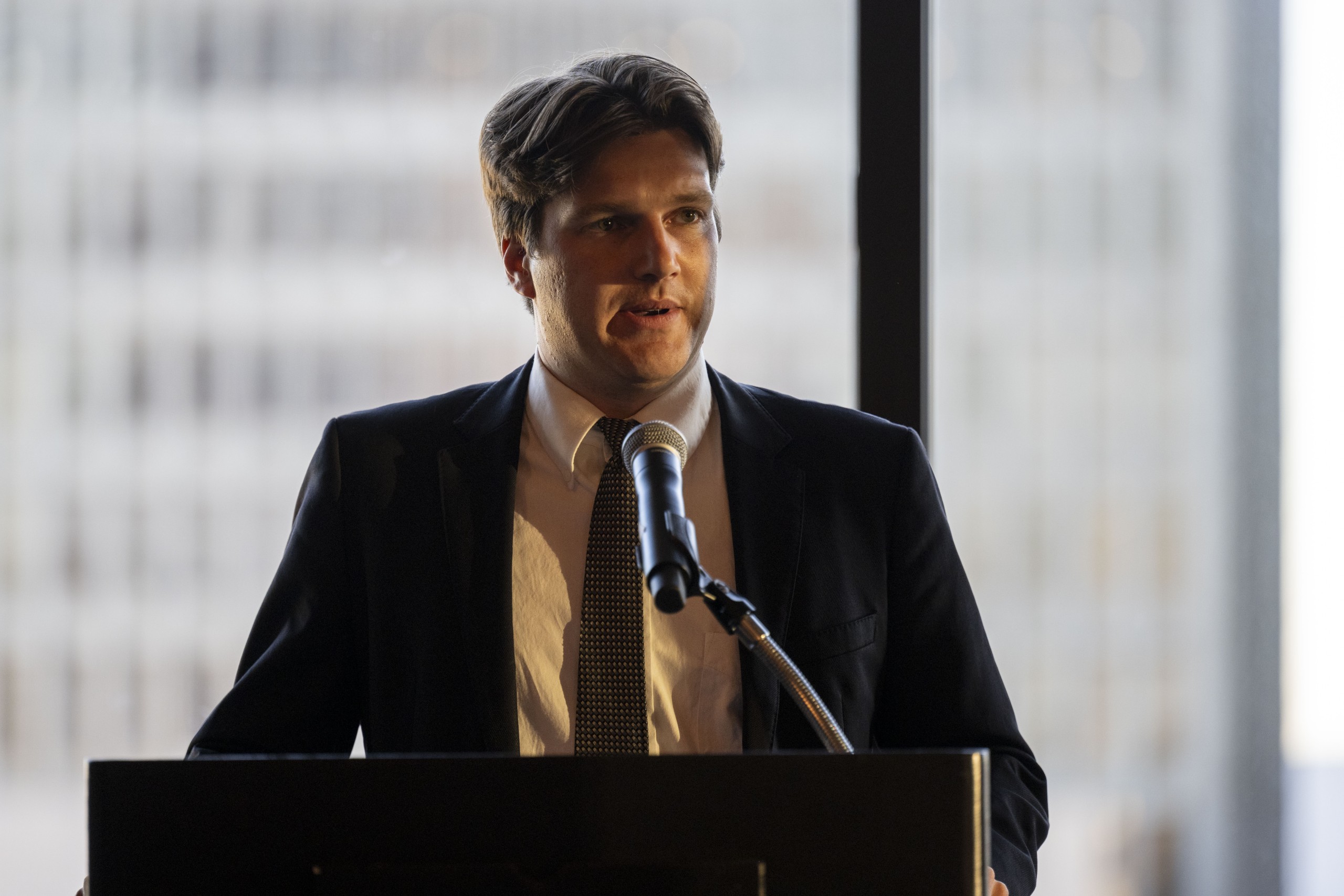

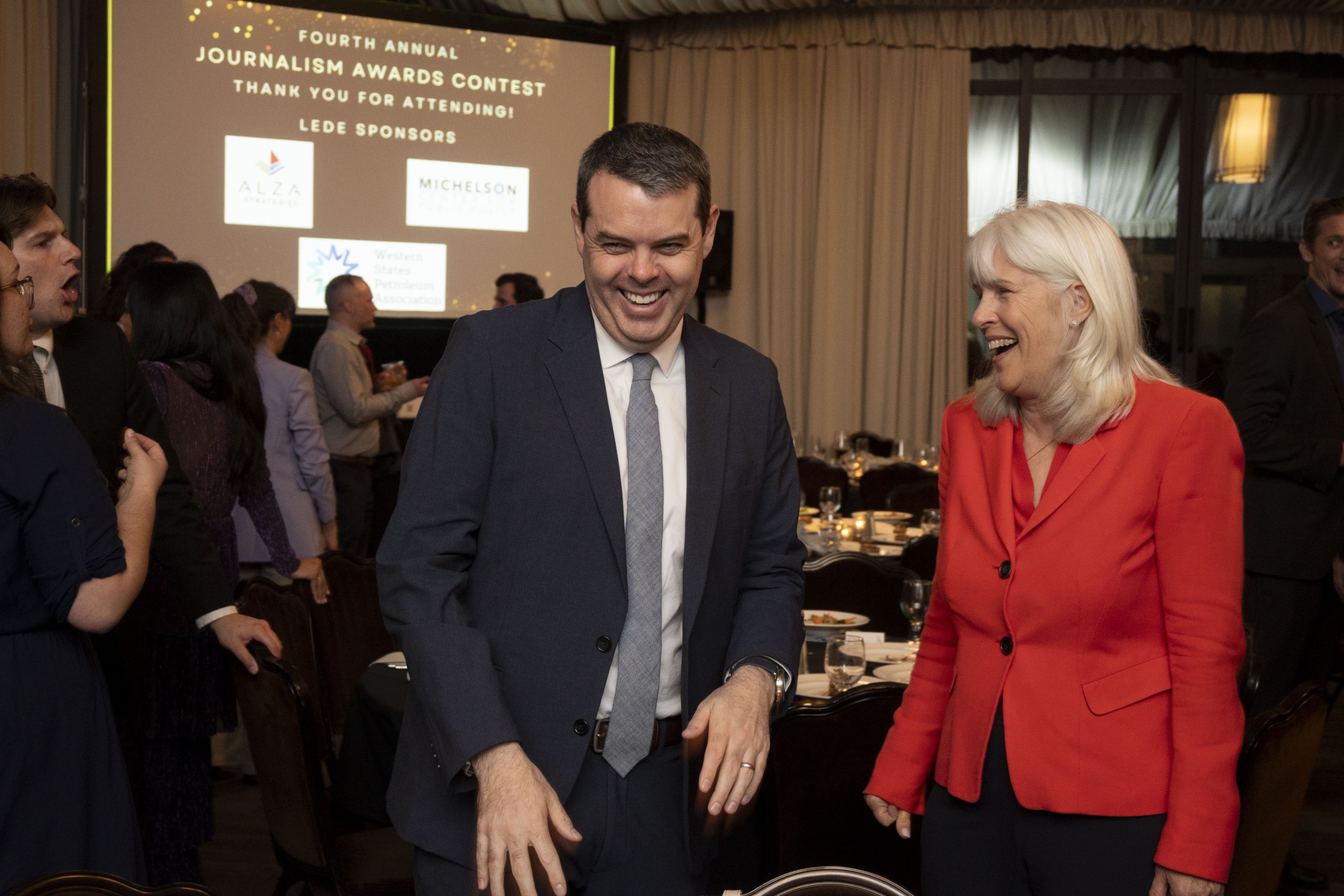
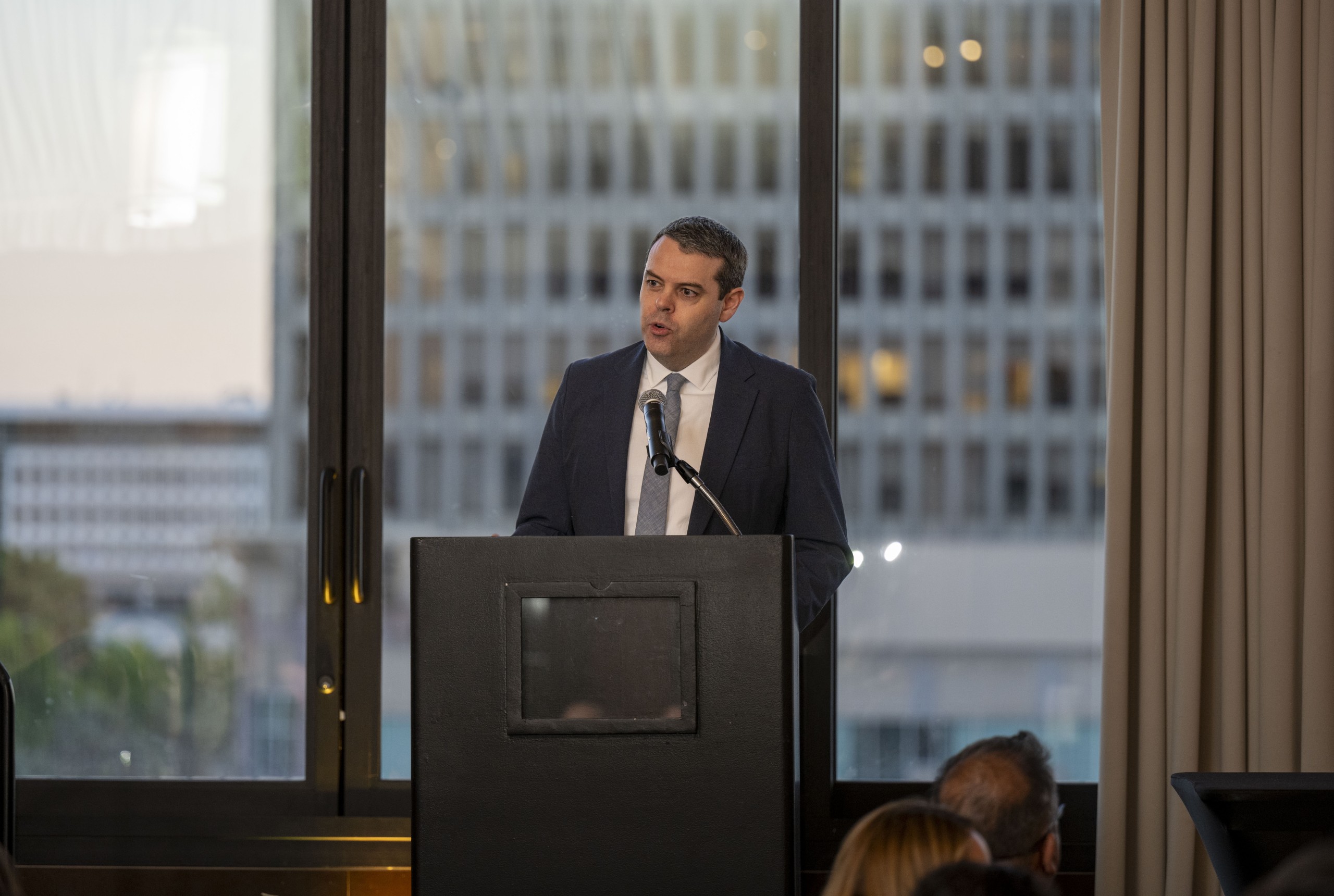
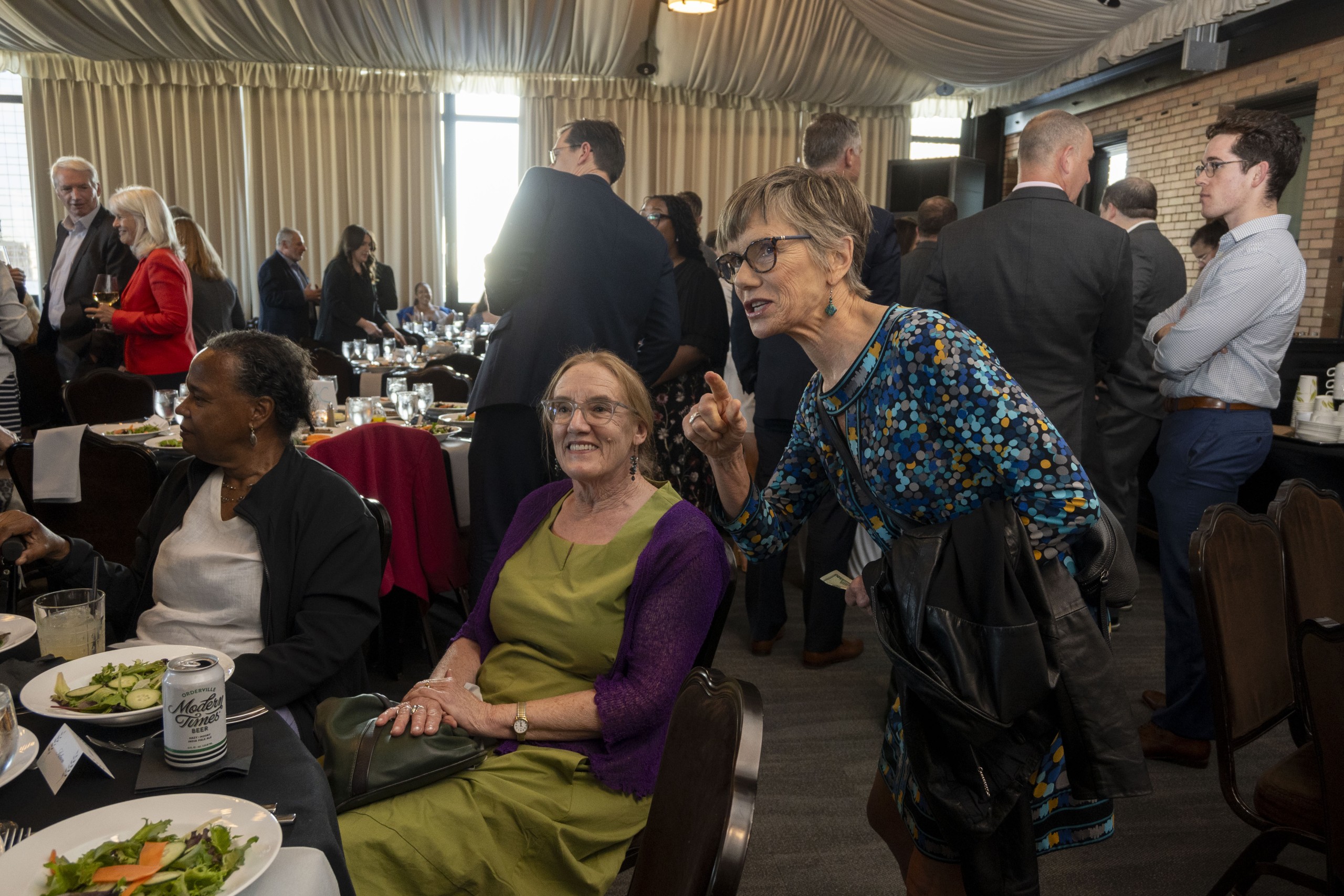
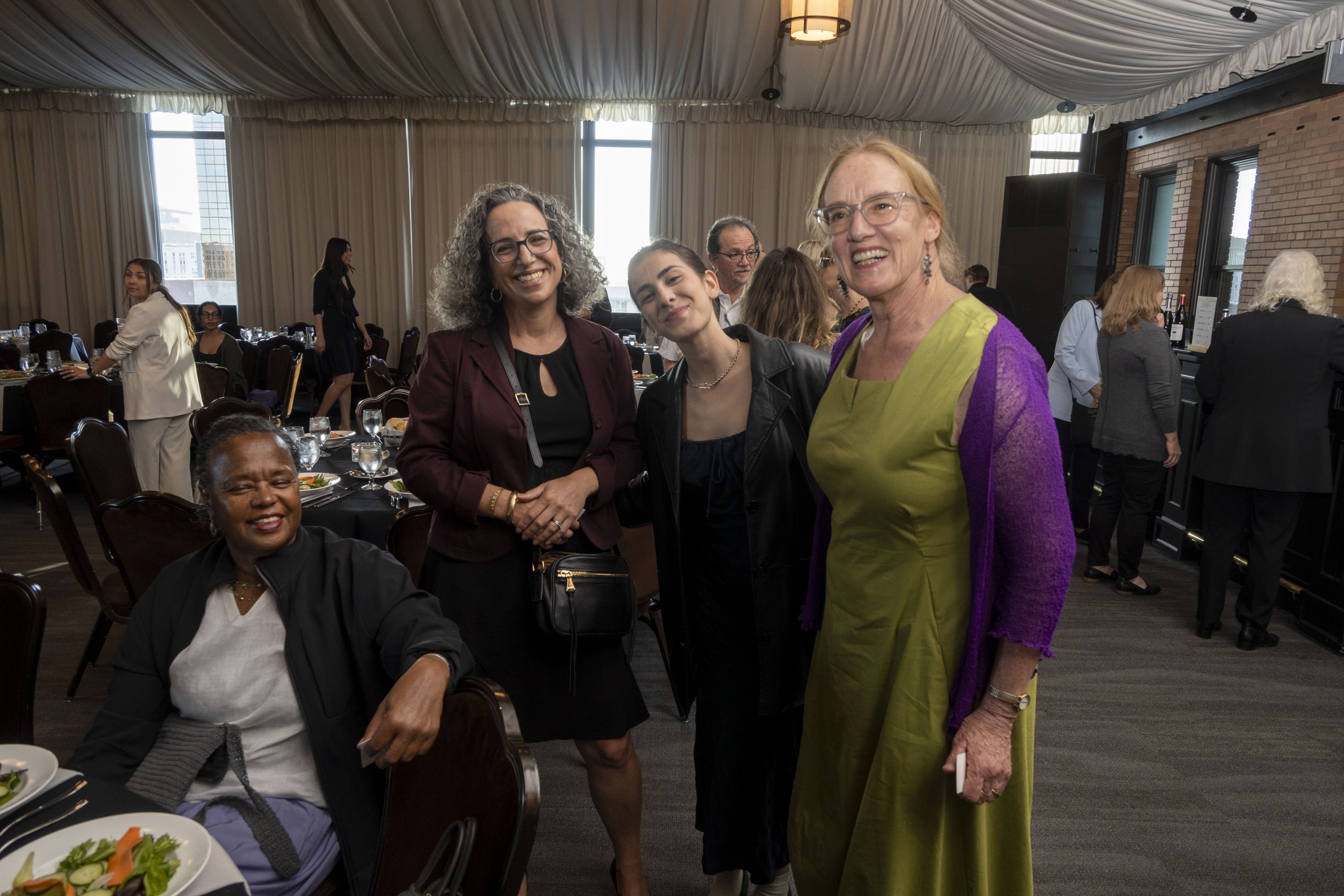

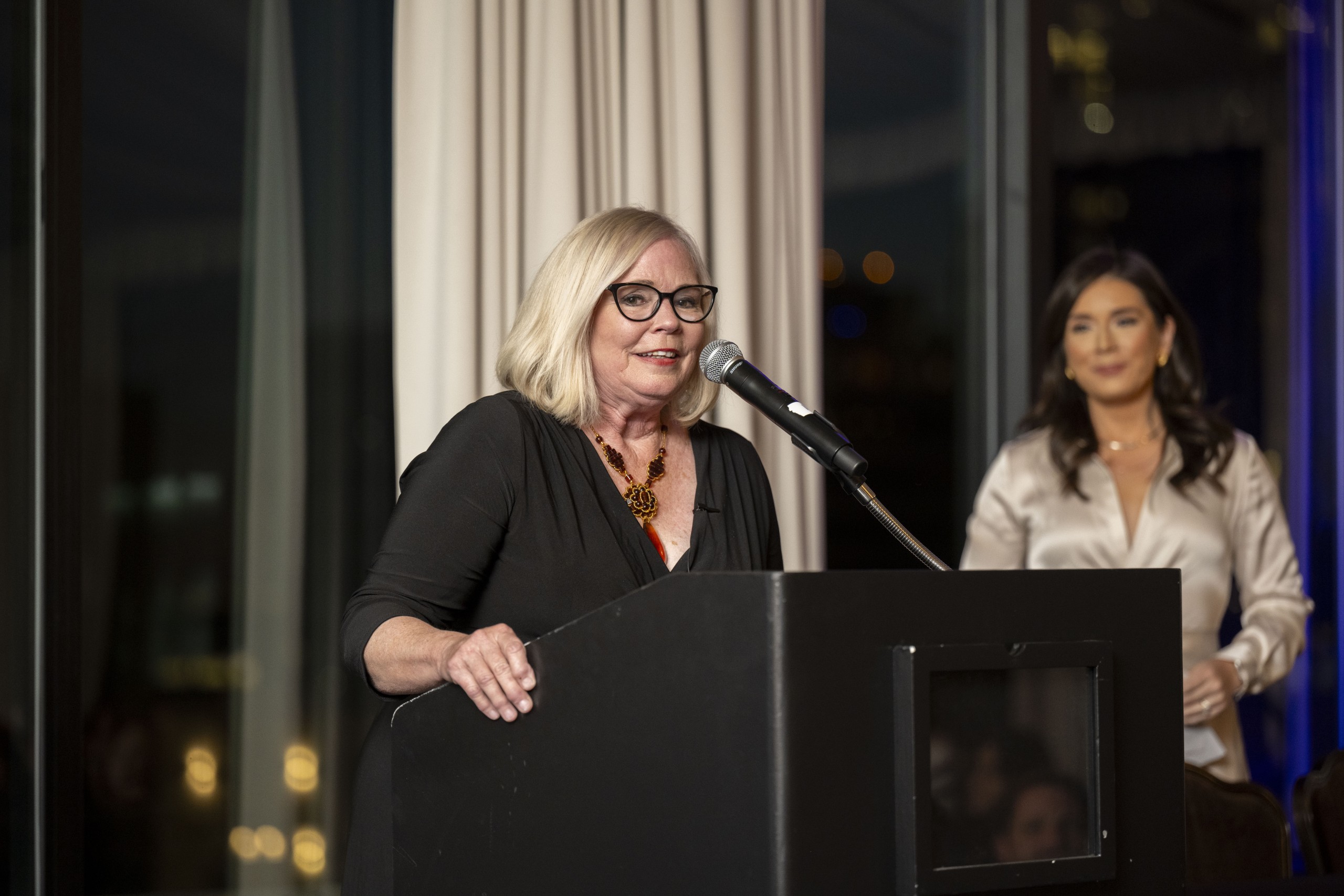

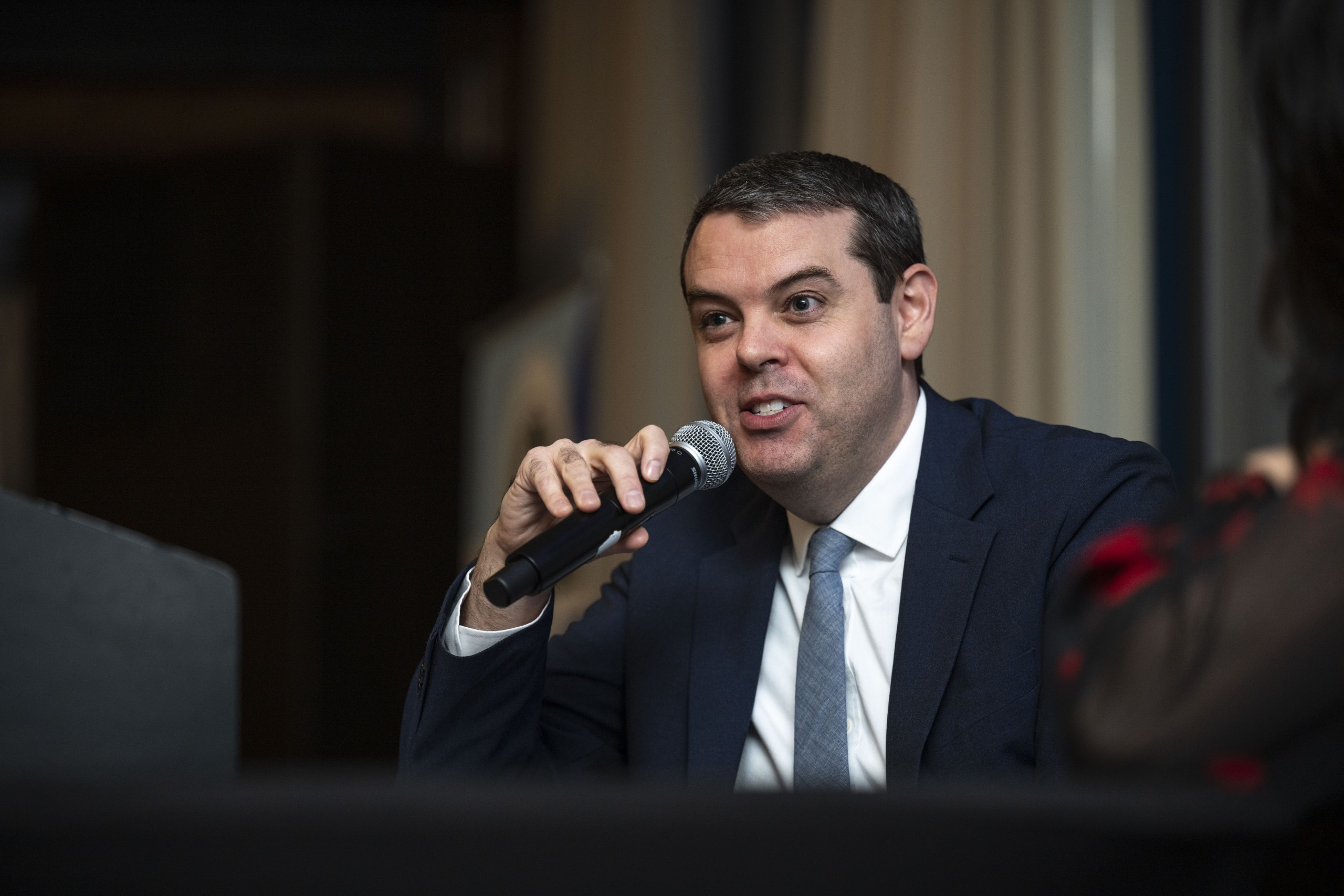

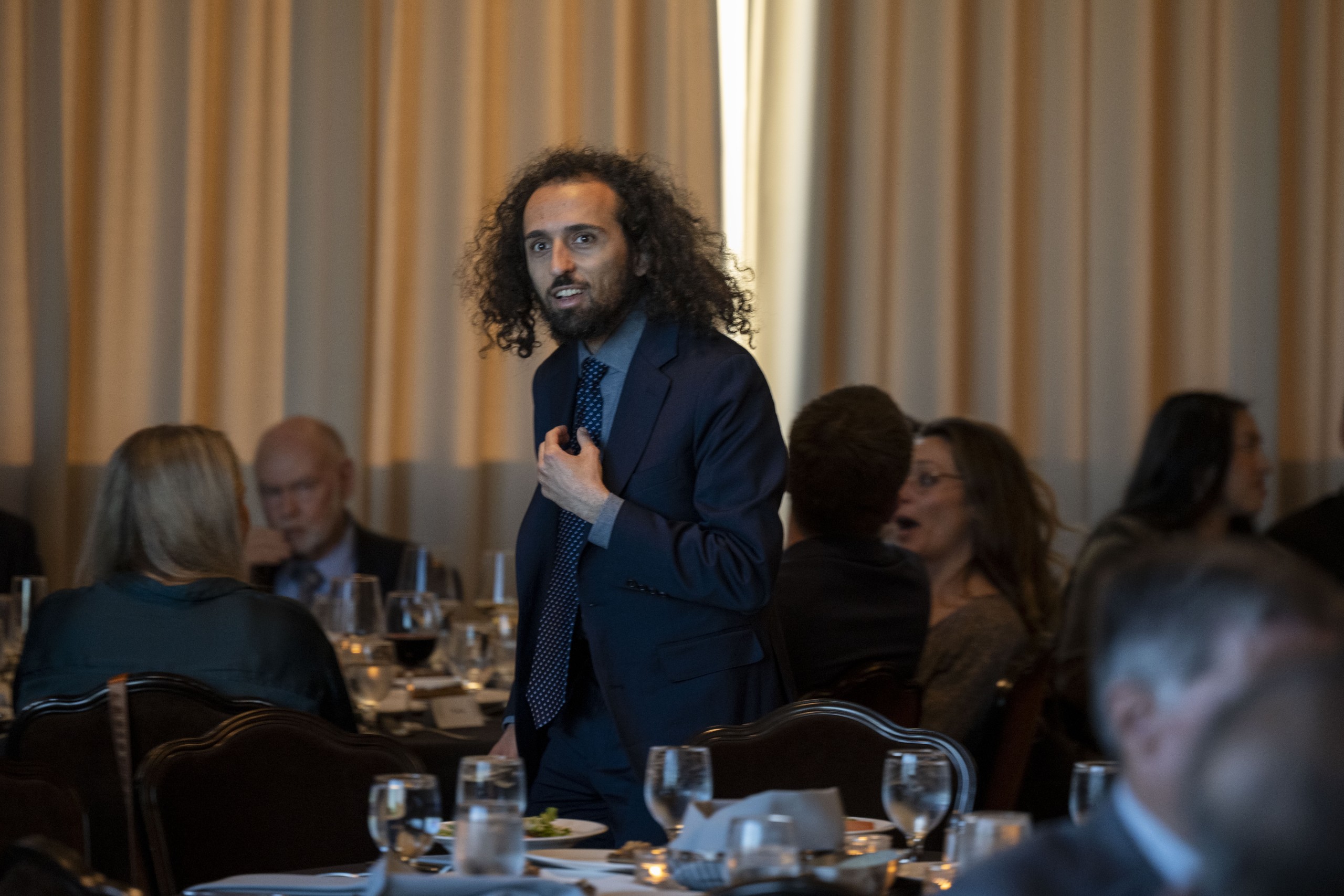
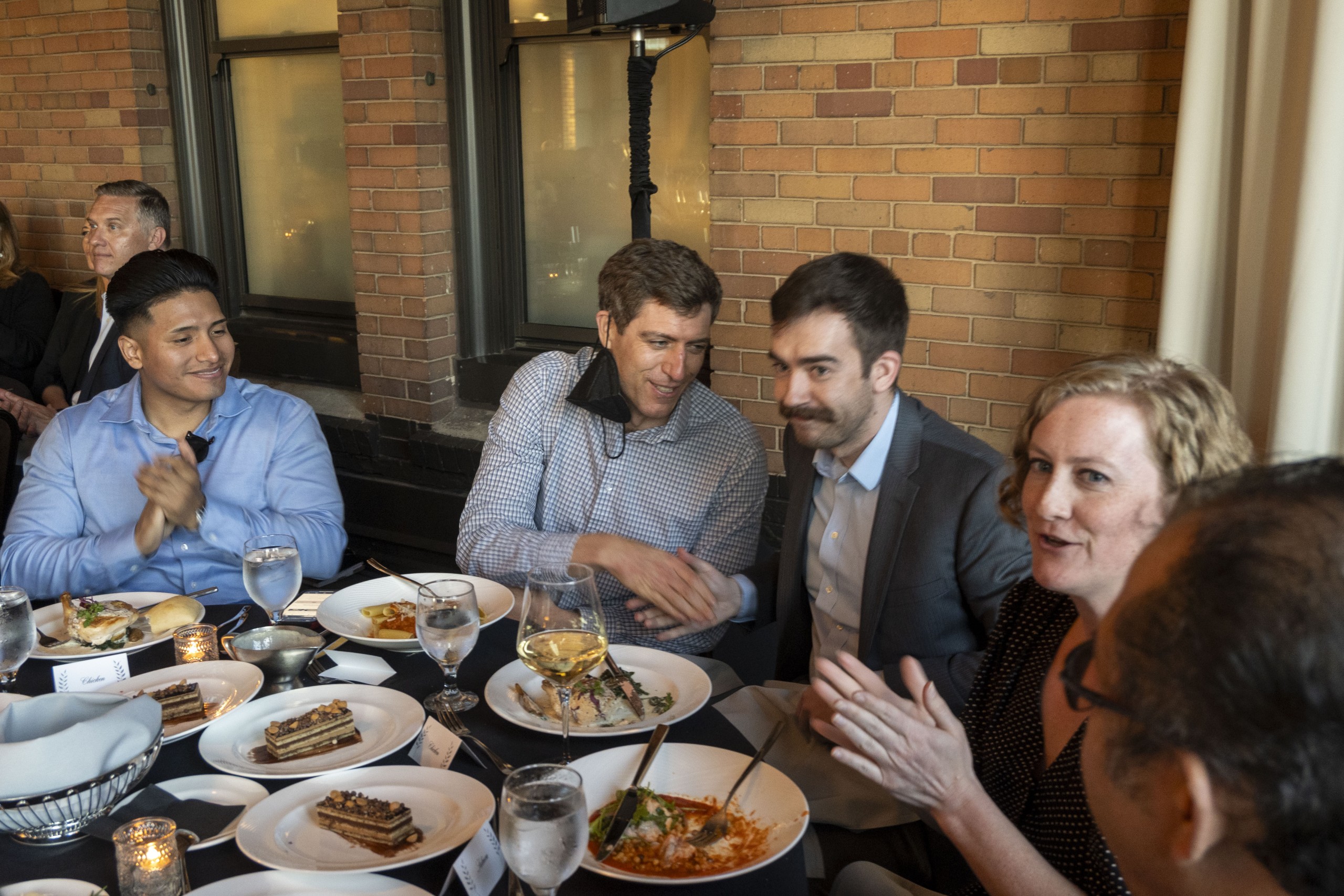
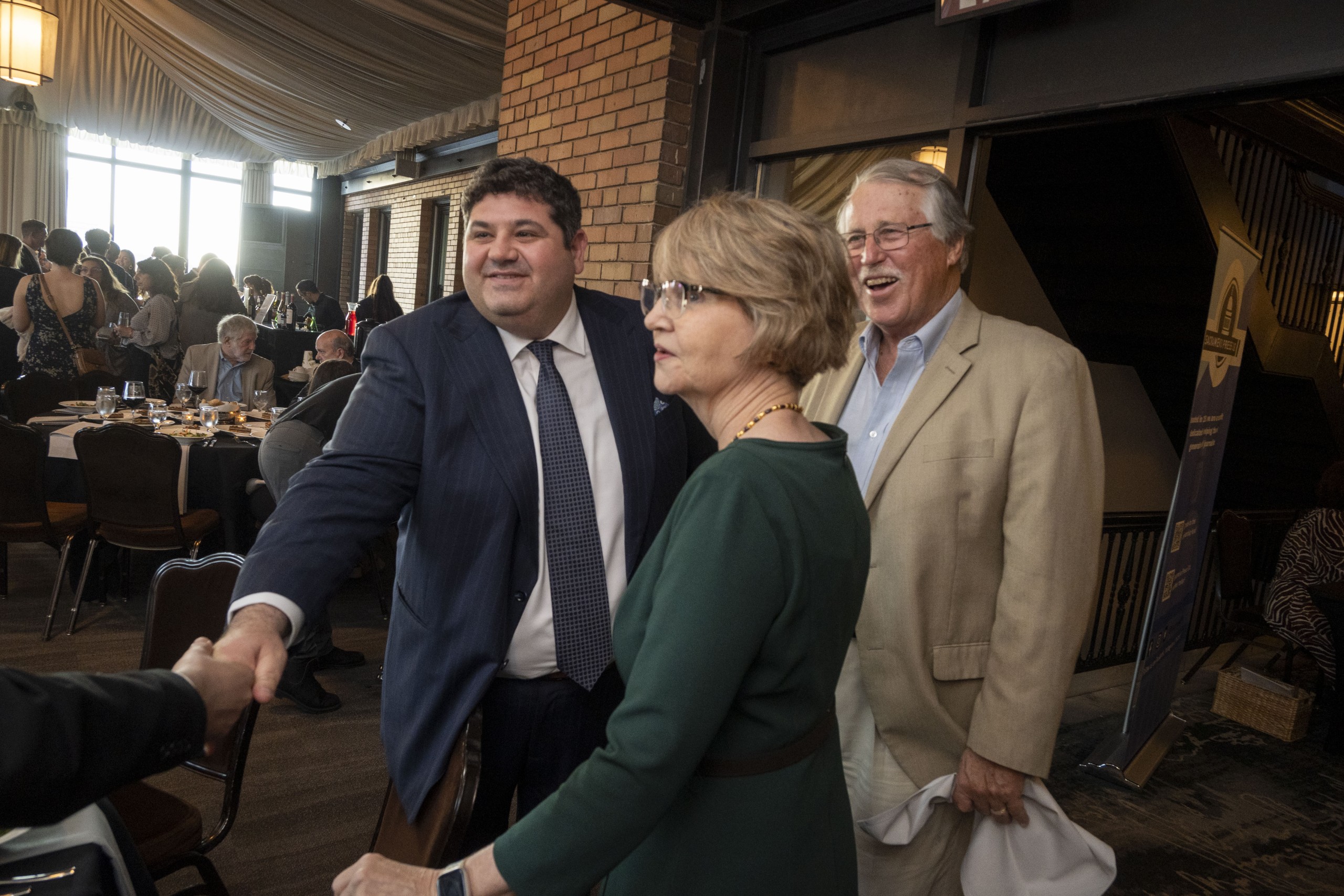
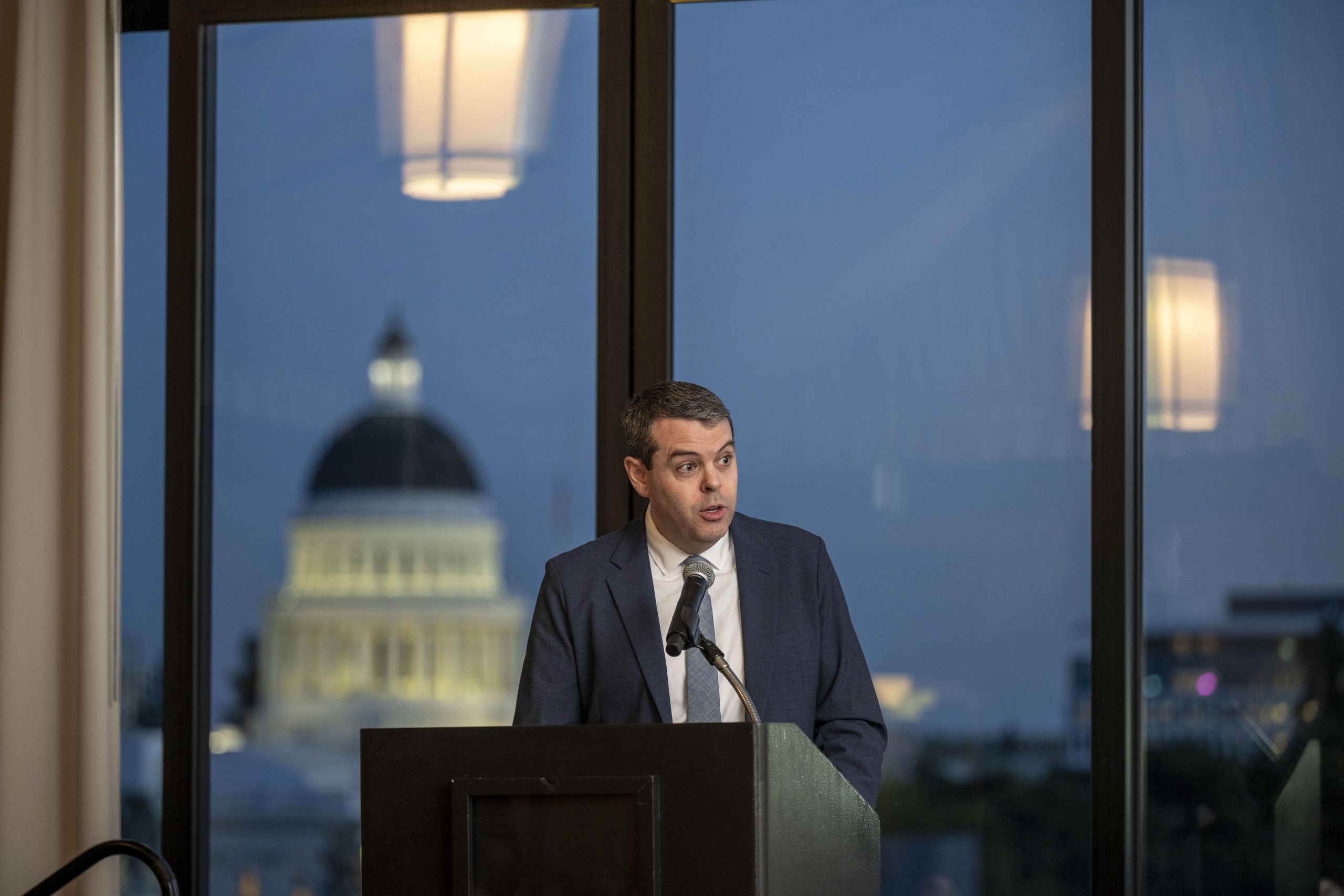
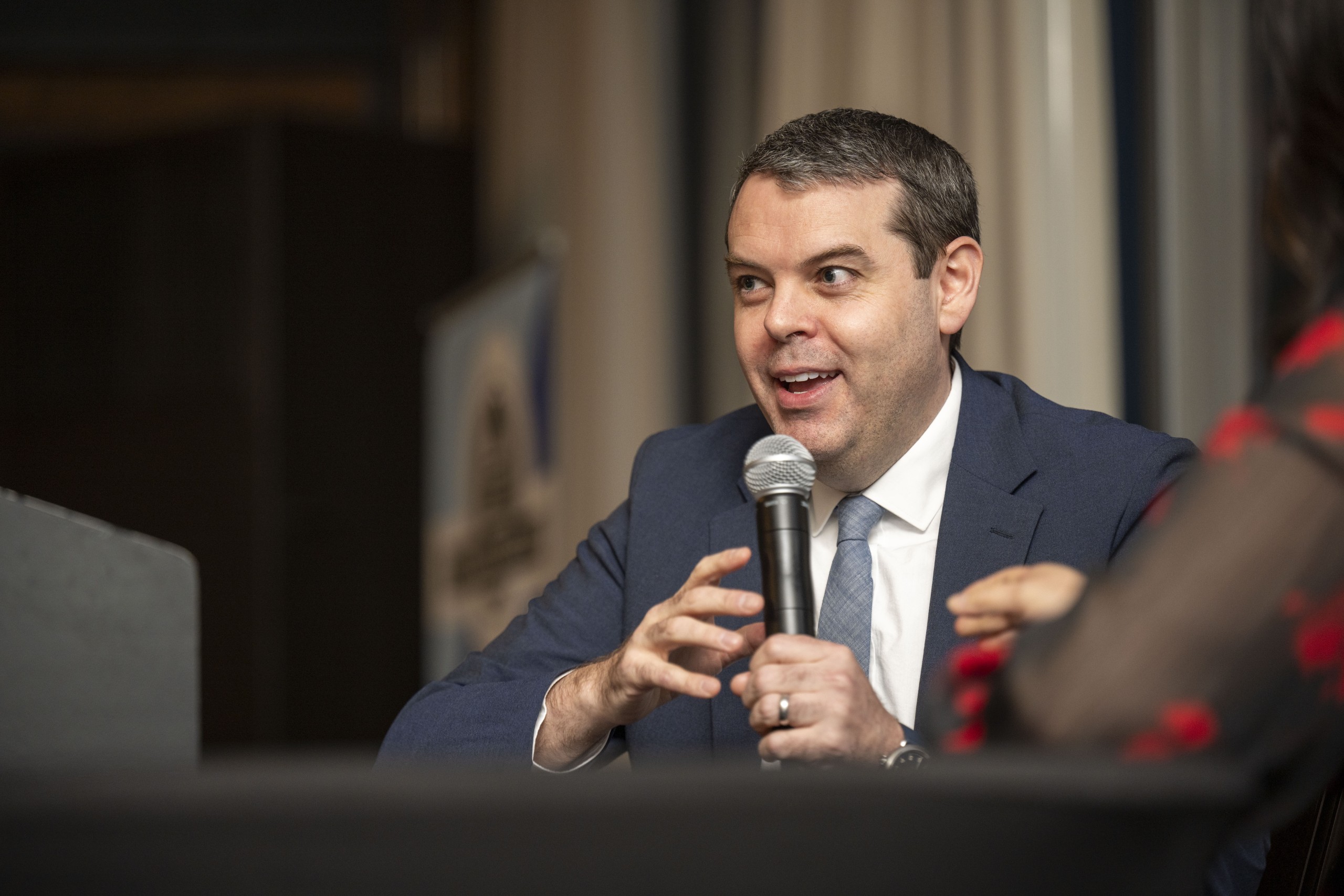

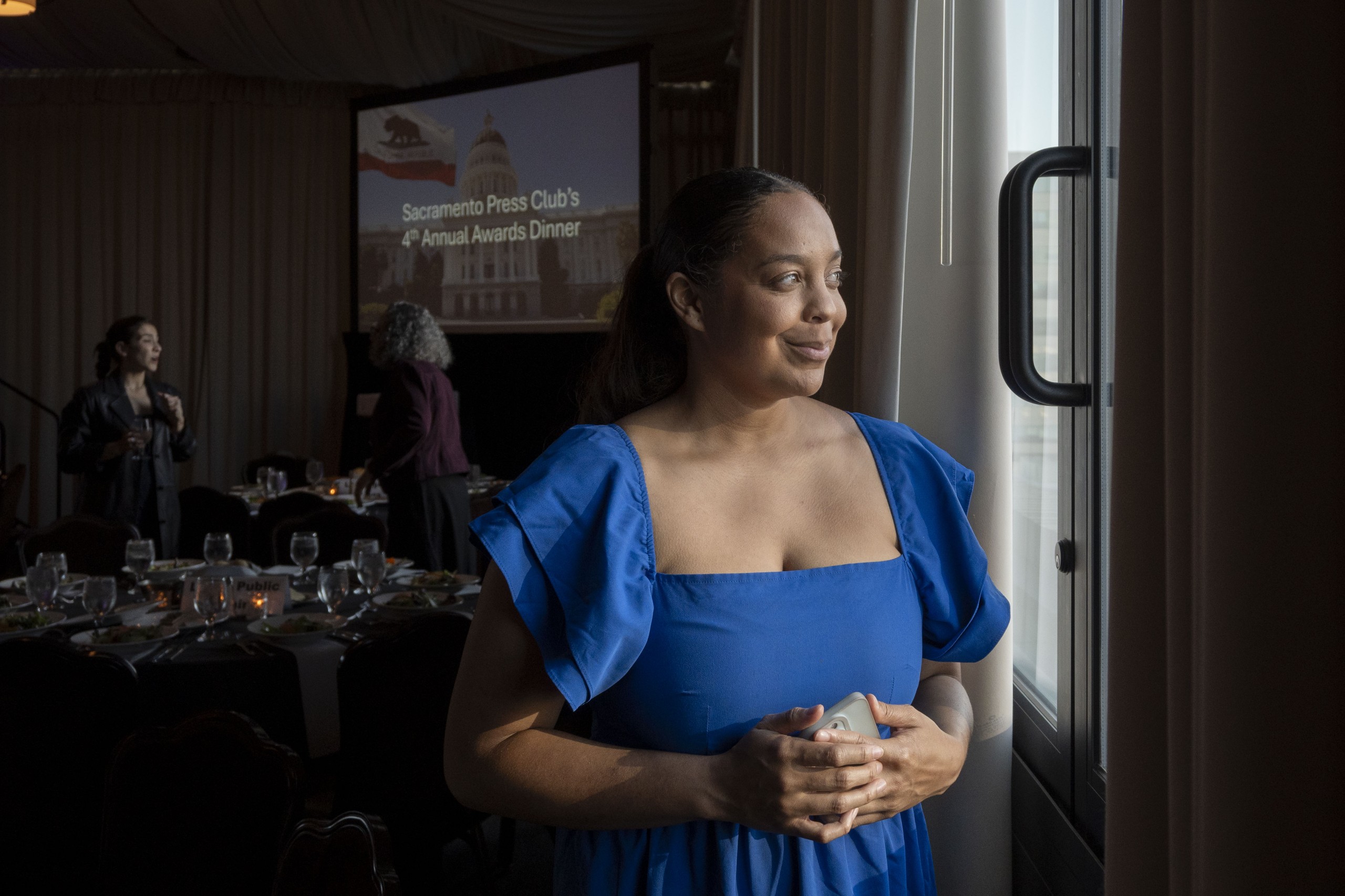


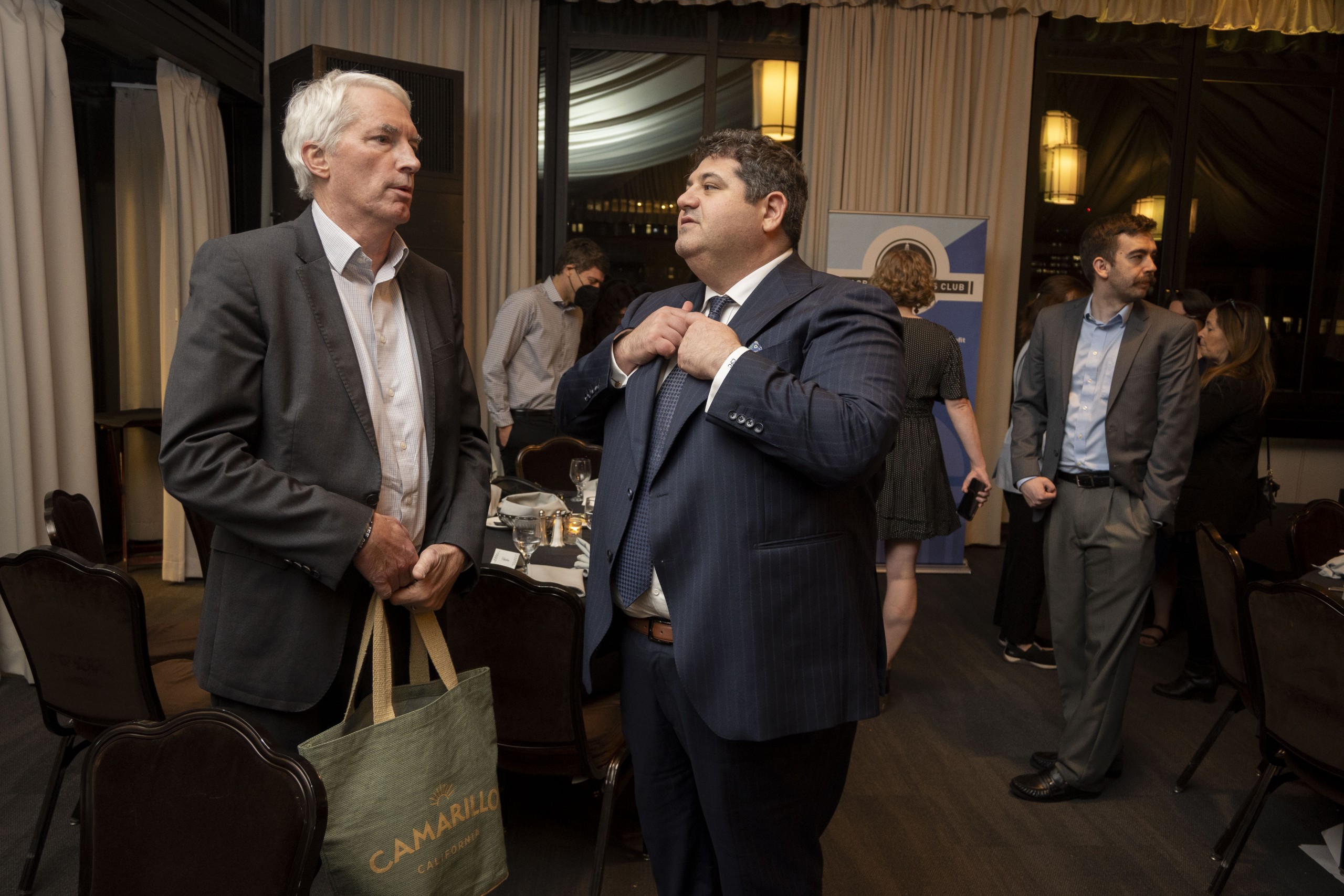
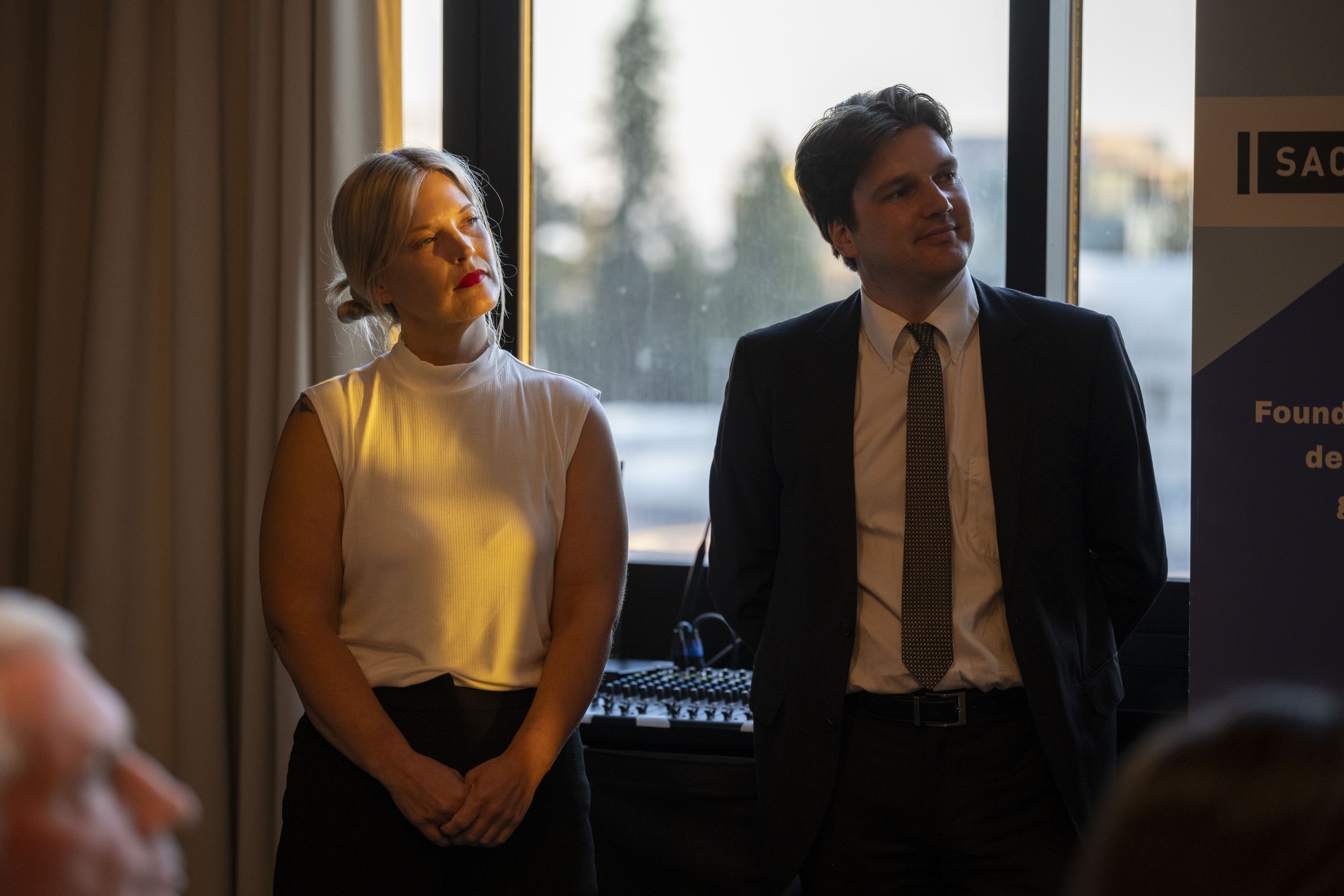
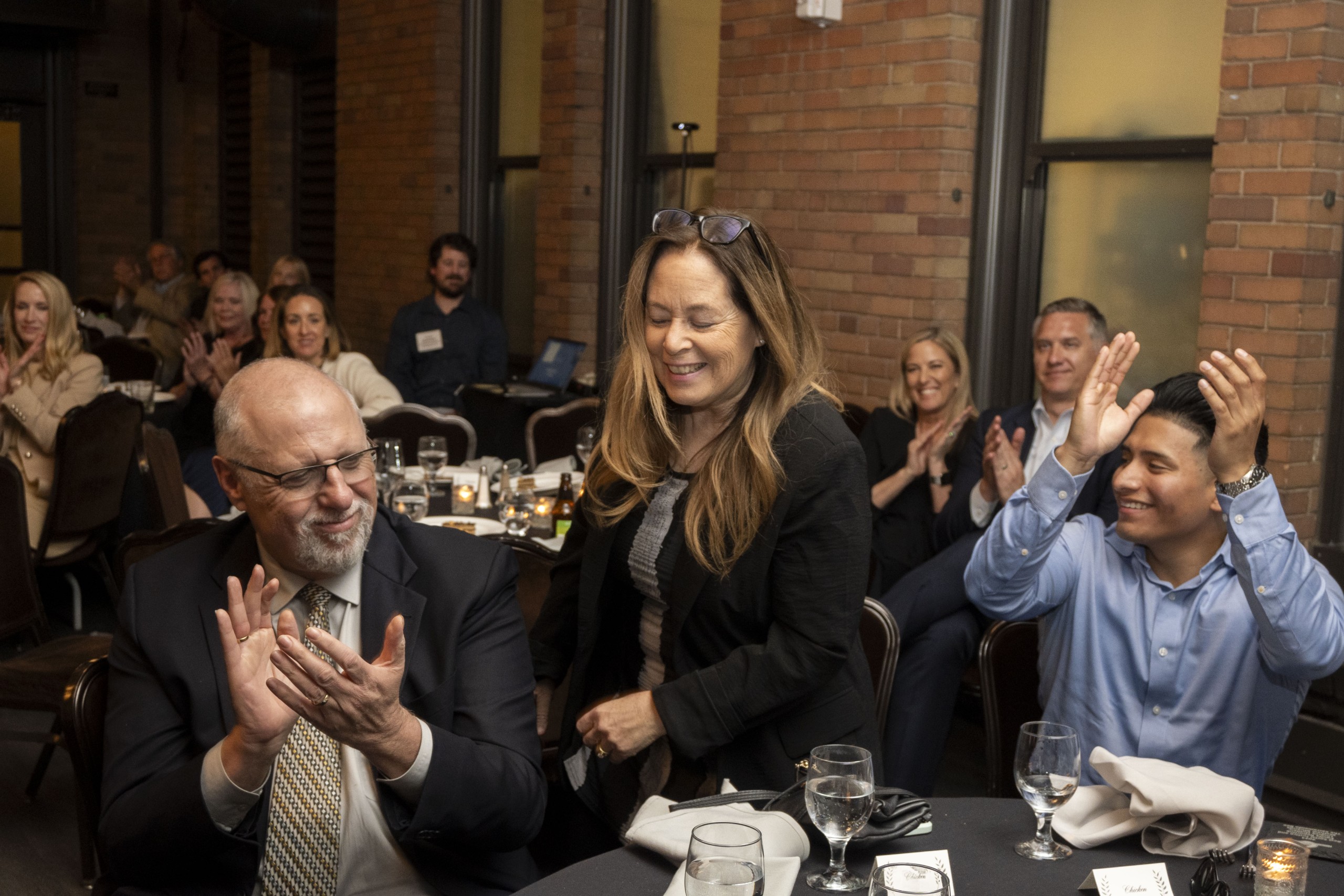
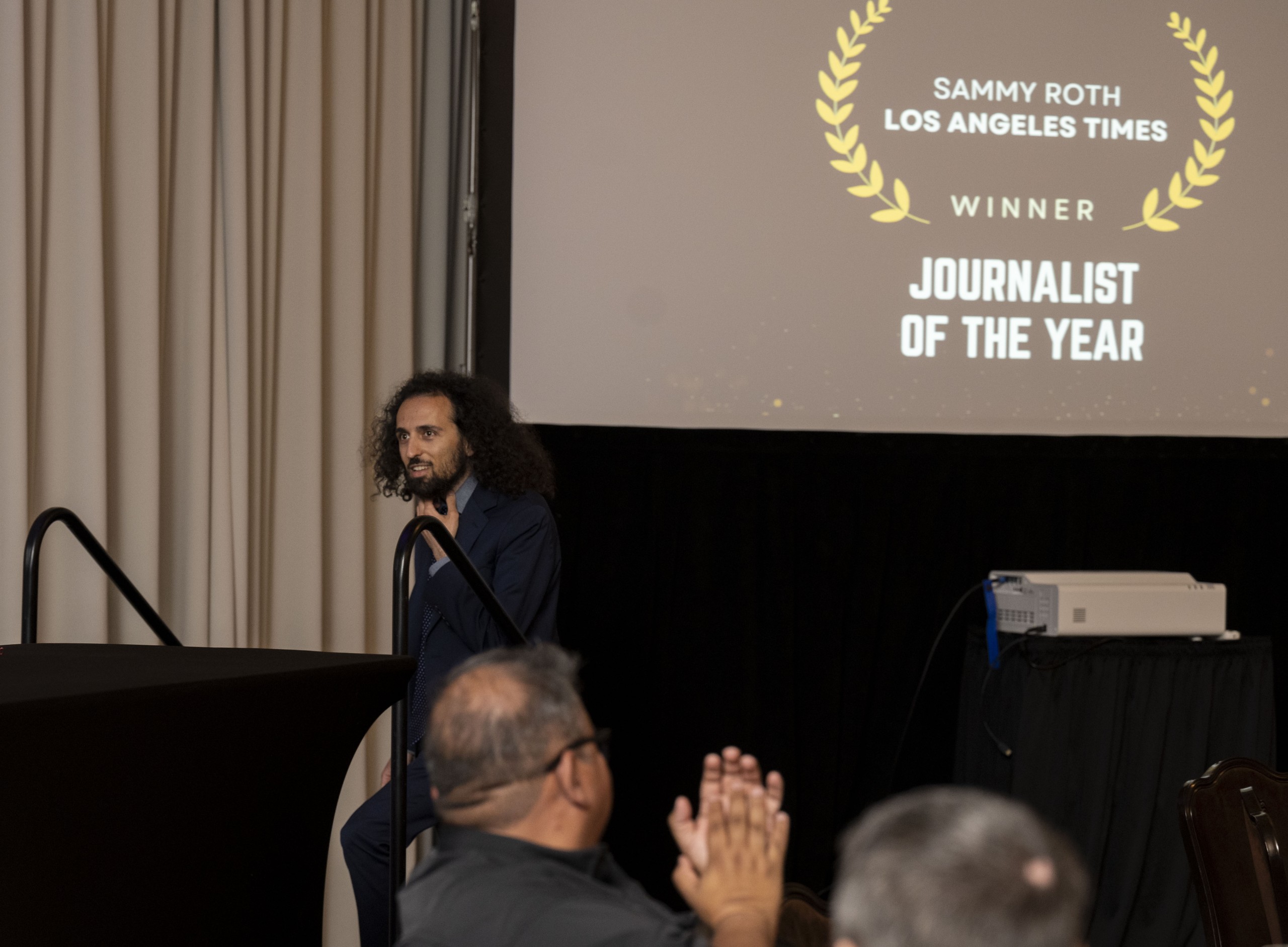


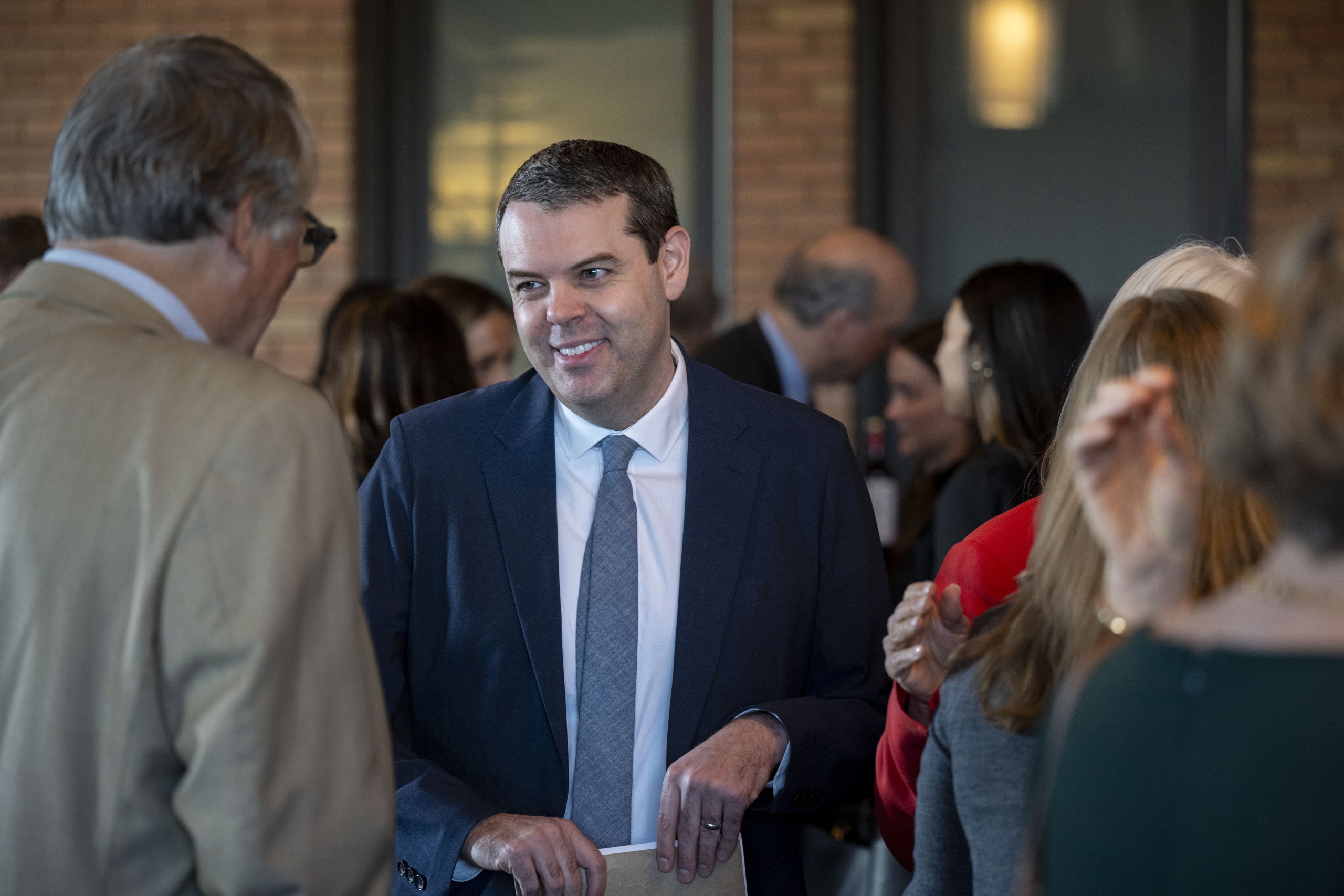
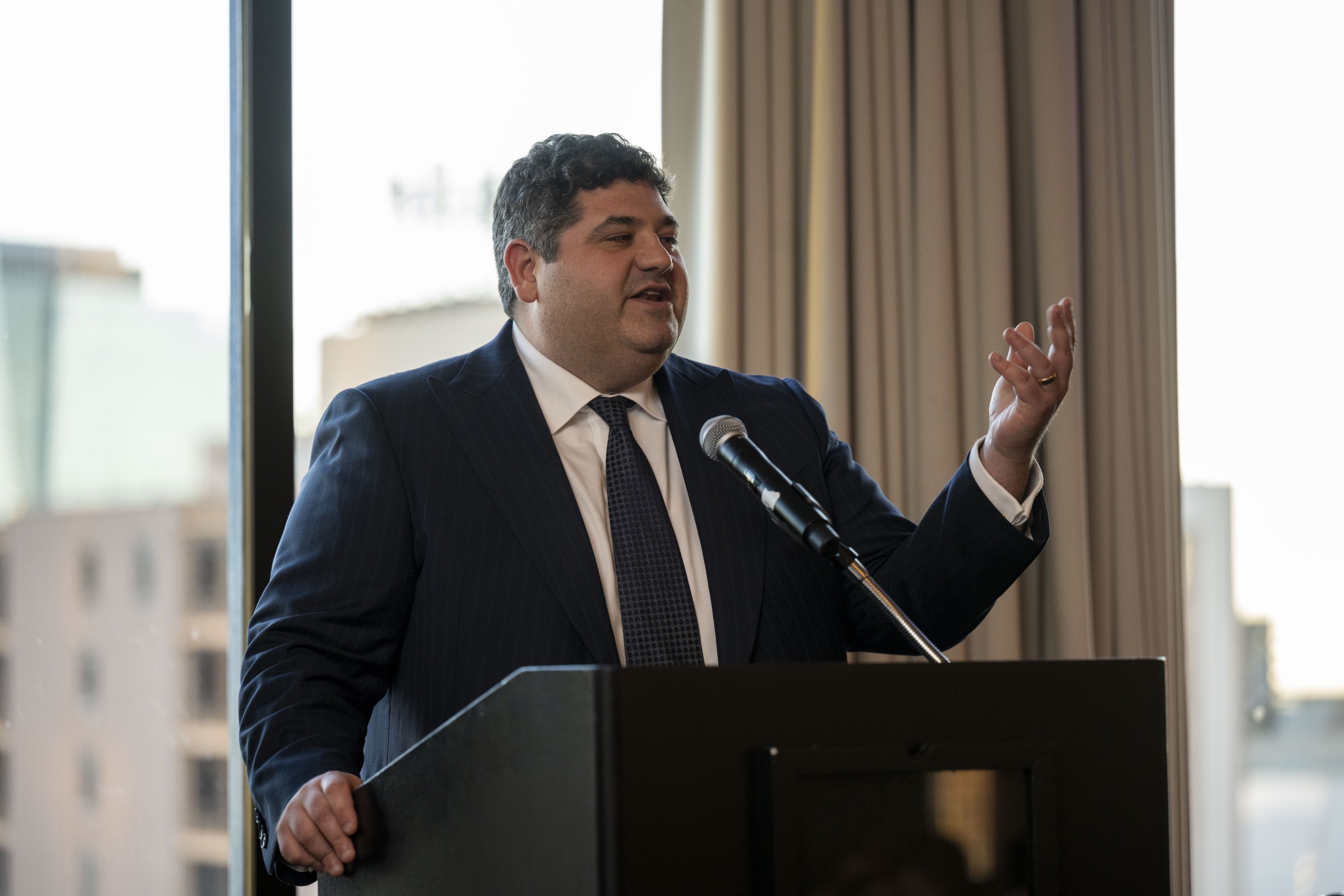

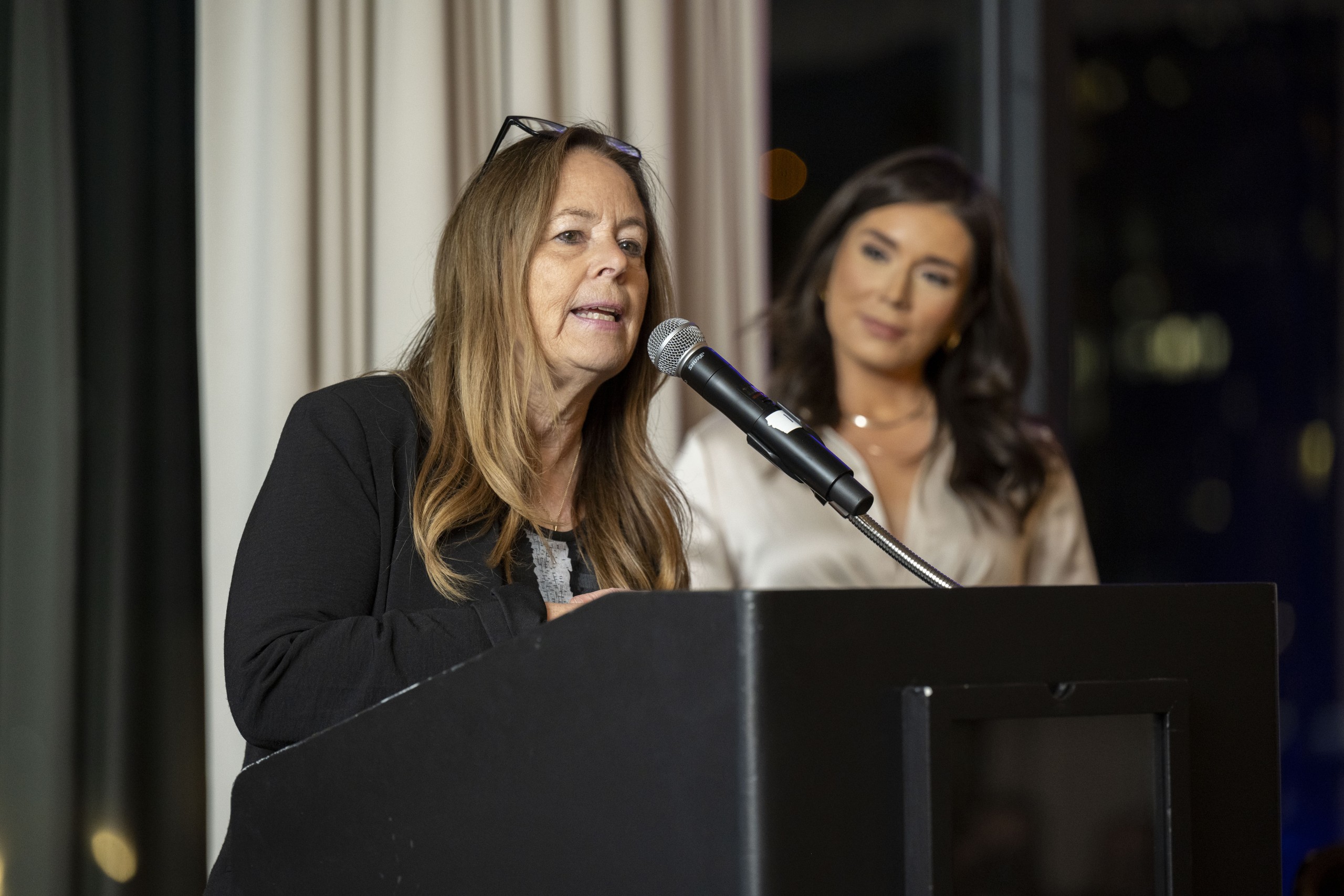



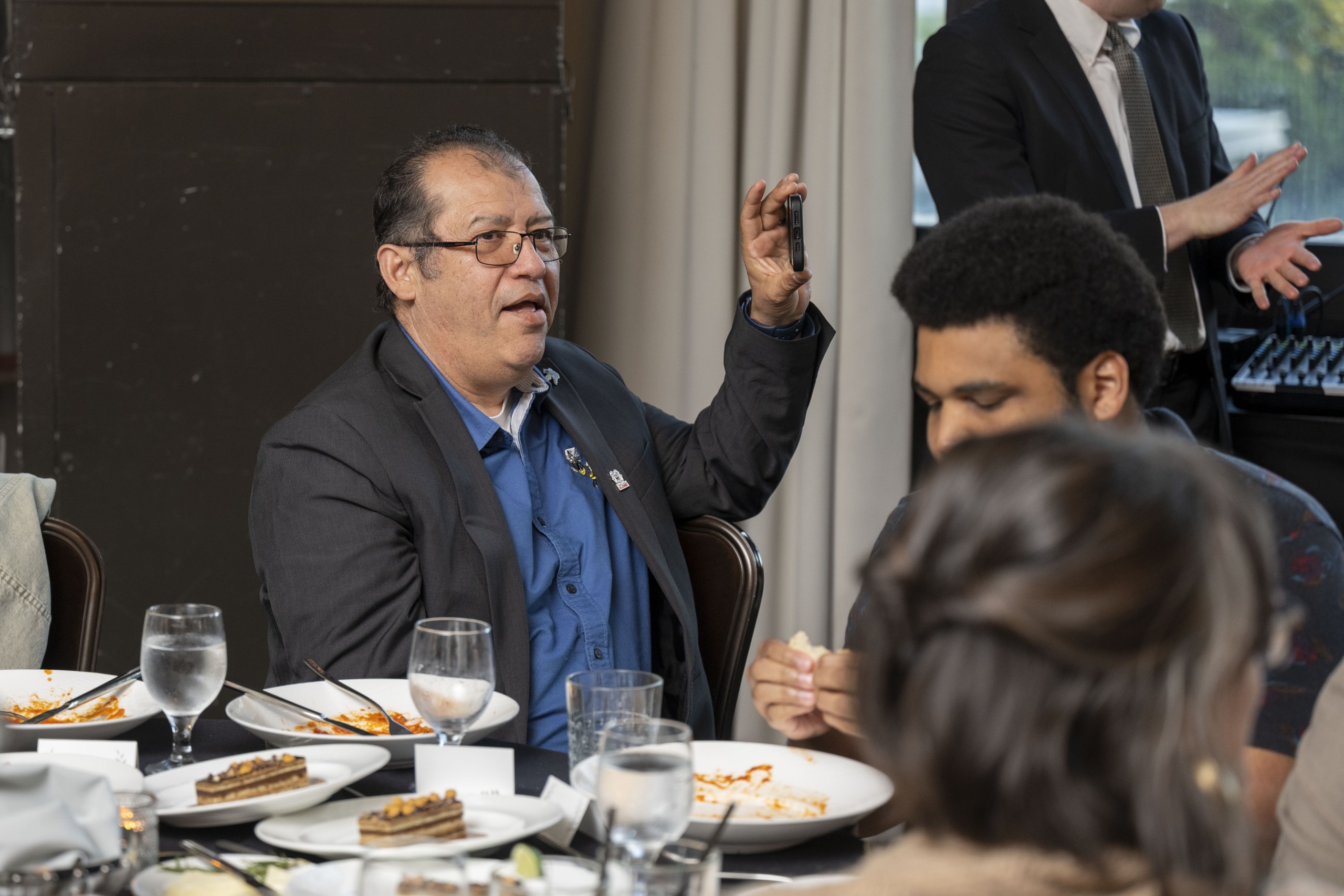

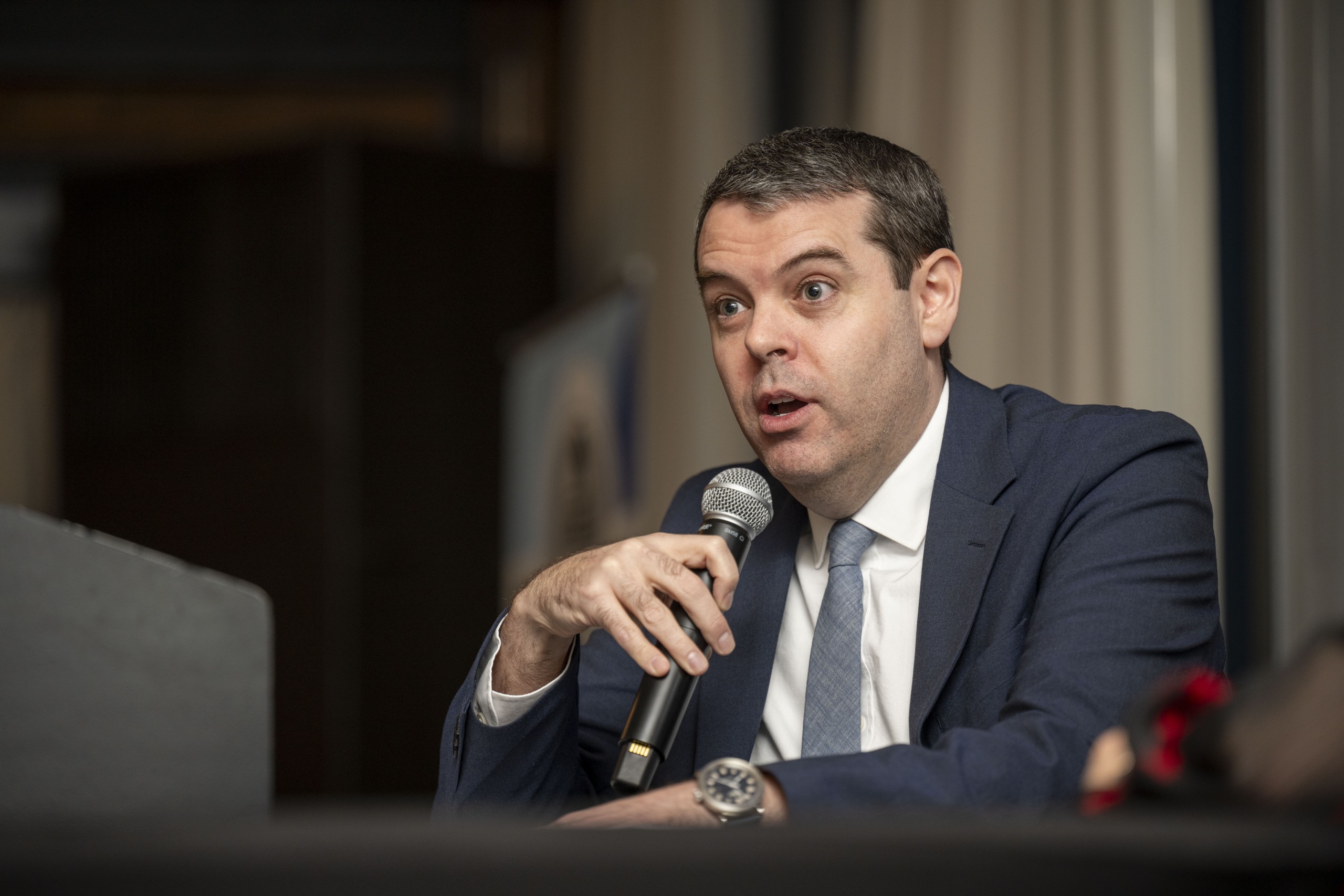
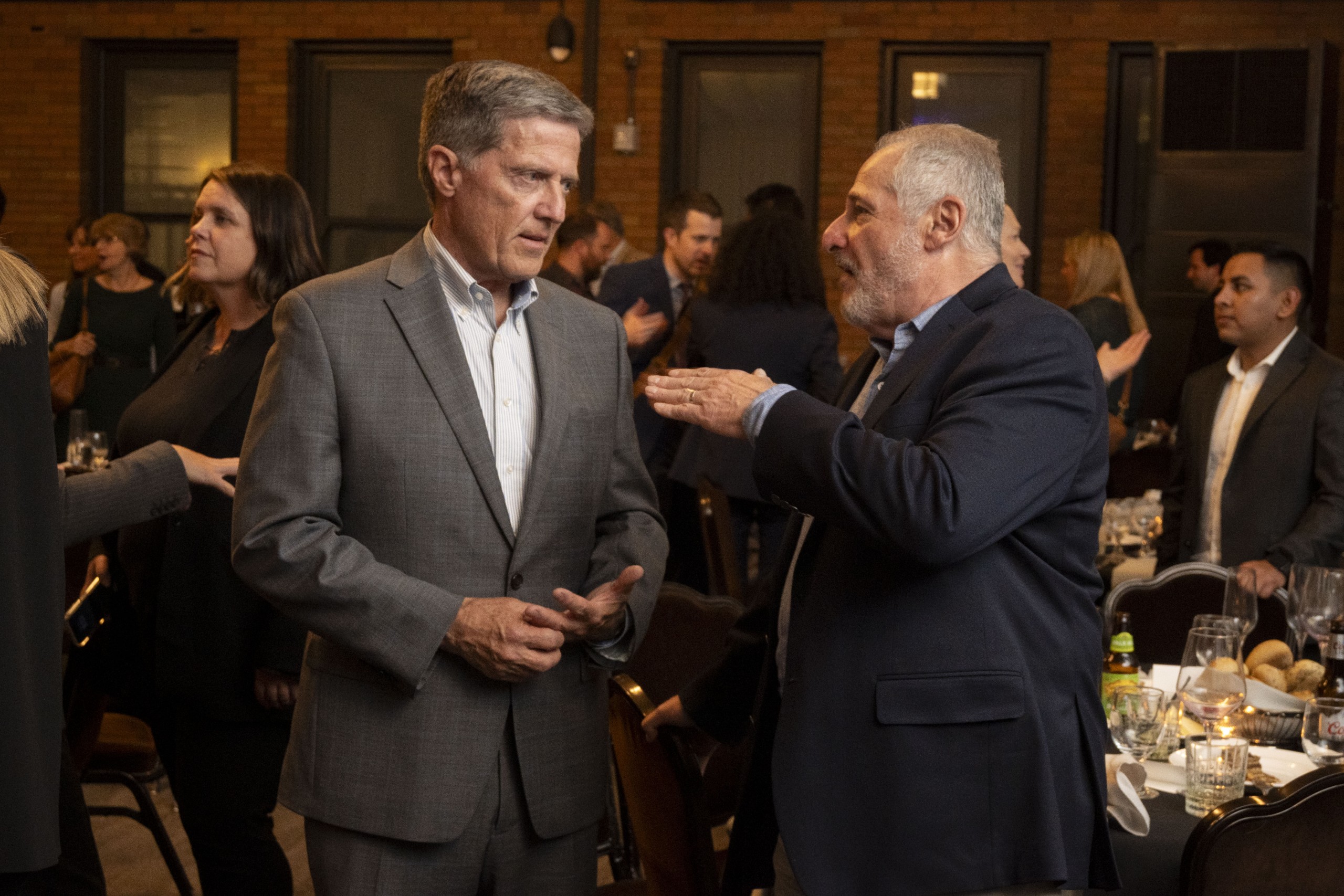
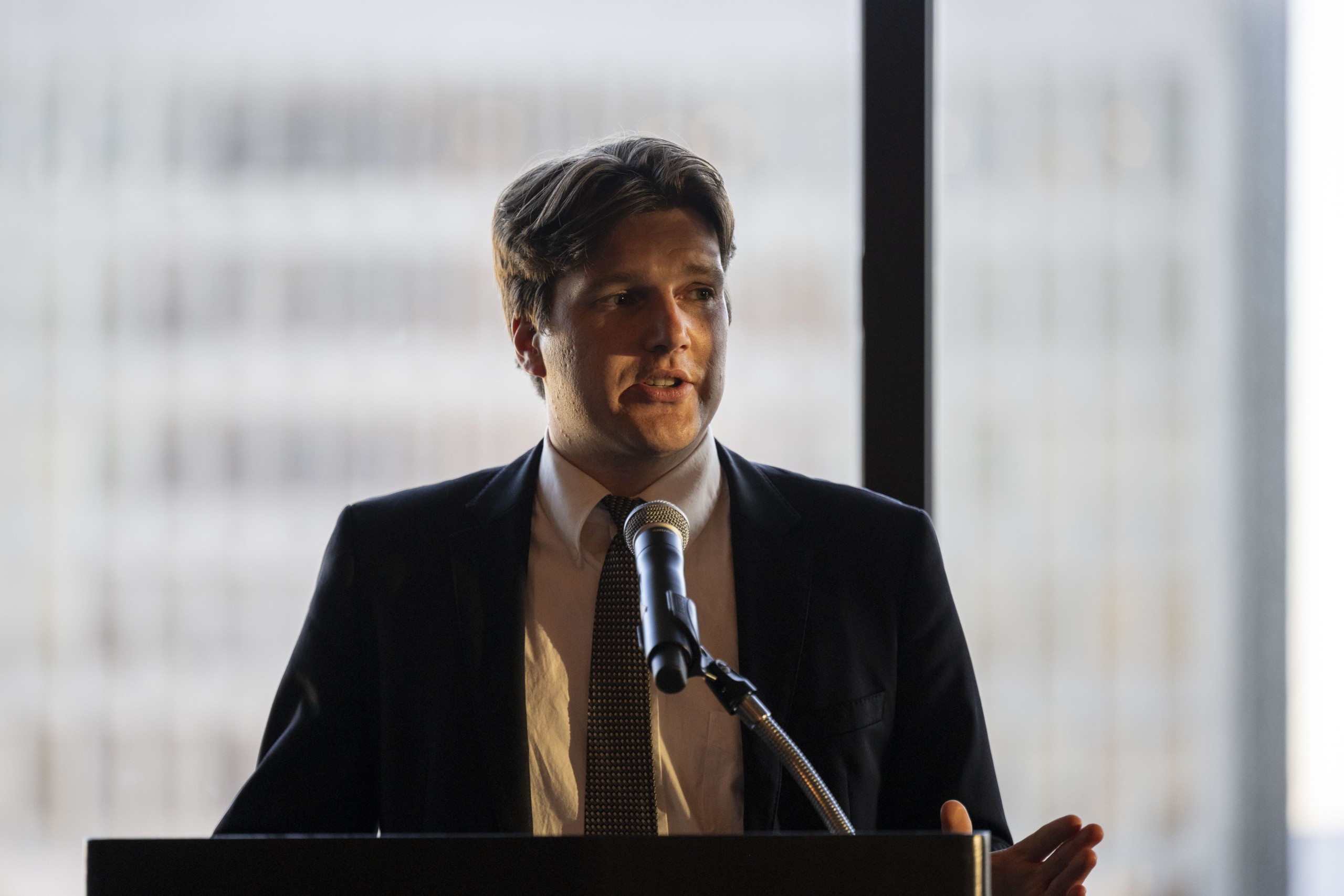


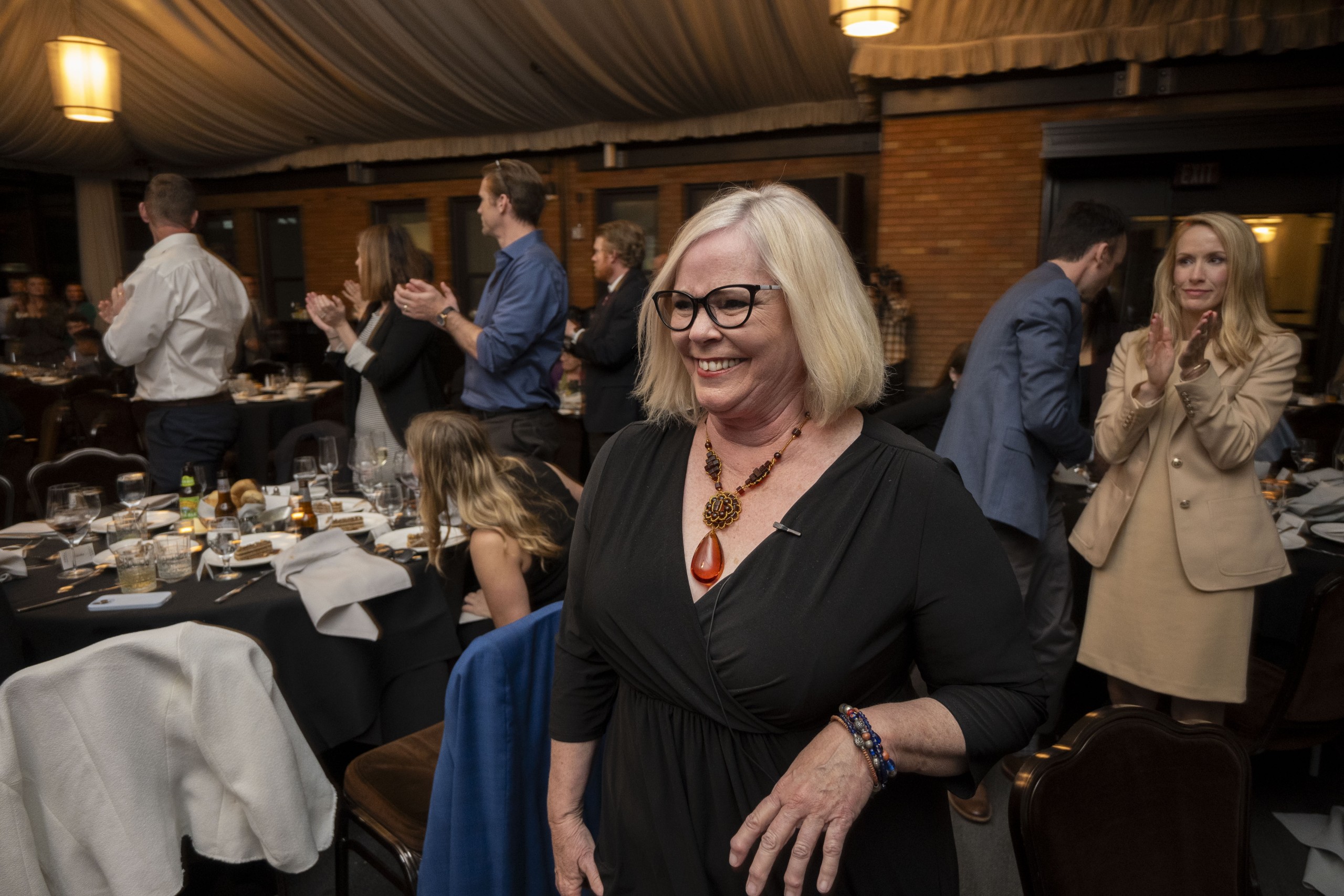



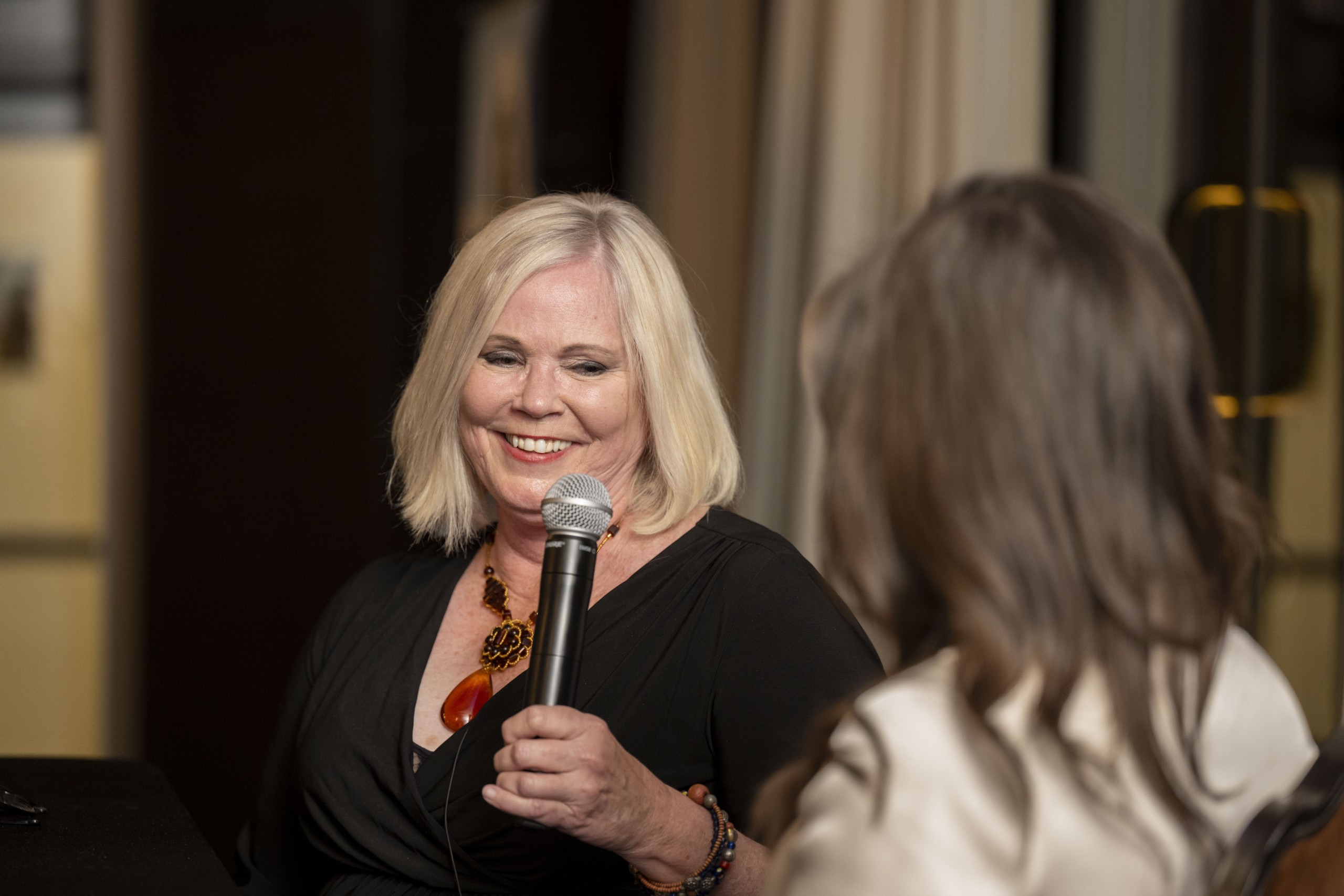
This award honors the California journalist whose work has had a substantial impact on the state. The Sacramento Press Club board will accept and vote on nominations from independent news organizations or a colleague of the journalist. A nomination letter must detail, with links to published work, why the journalist should be recognized. To qualify, a journalist should have published work that reflects the best of our profession: stories that reveal egregious wrongs committed against powerless populations, that force change in public policy decisions at the state level, or that provide a powerful public service to Californians, including comprehensive coverage during emergencies. This is not a team award, nor will it be given to an institution. It is intended to recognize a singular achievement by a journalist that benefits Californians.
Sammy Roth – Los Angeles Times
Roth writes a twice-weekly climate newsletter while at the same time digging into complex stories. Those of you who write regular columns or newsletters – and those of you who write in-depth pieces over weeks or months – might wonder how he manages to do both! Roth sets a high standard for journalists. He has a clear understanding of the issues he covers, writes vividly and conversationally, and is committed to regular publication. While journalists historically have been tight-lipped about their work before publication, Roth brings his readers closer by sharing. He tells readers what he’s working on and which companies or issues he’s watching. He also reveals a bit of himself in his newsletters – not too little, not too much…but just right. He helps readers understand how our world is changing, and, importantly, how he finds optimism.
This category recognizes exceptional journalism that holds powerful institutions and/or people accountable for their actions and, by doing so, leads to demonstrable change that benefits Californians. The submission should include a short cover letter explaining the impact or outcome of the work. Judges will consider overall impact, depth of reporting, and the use of today’s technology to reach the audience. Entries may be in any format including text, audio or video. Entries are limited to three stories.
WINNER
Robin Urevich and Gabriel Sandoval – Capital & Main/Pro Publica
“Checked Out: How L.A. Failed to Stop Landlords From Turning Low-Cost Housing Into Tourist Hotels”
Deeply reported and skillfully told tale of hypocrisy in the city of Los Angeles’ approach to housing that actually created more homeless people by allowing low-cost residential hotels to be illegally converted to boutique units for tourists. Their work alerted housing advocates to the problem and lit a fire at City Hall to crack down on the conversions.
FINALISTS
Melody Gutierrez – Los Angeles Times
“California created the nation’s only pension for aging boxers. But it’s failing many of them”
“Former boxer Alex Ramos faces hardship, but a lifeline is out of reach”
“After Times investigation, retired boxers finally getting what they’re owed from California”
A knockout punch – deeply reported, beautifully told, this submission illuminates the humanity of the abandoned fighter, with impact and accountability.
Byrhonda Lyons – CalMatters
“He lied to win a California rehab contract. Now he’s convicted of exploiting parolees in his care”
JUDGES
Dan Smith, former Capitol bureau chief, The Sacramento Bee, and external affairs director, Visit California; Margaret Talev, director, Syracuse University Institute for Democracy, Journalism and Citizenship, and senior contributor, Axios; Ricardo Sandoval Palos, public editor, PBS
This award will recognize a journalist or team of journalists who displayed exceptional courage to bring necessary coverage to the public, whether by standing up to powerful people, covering events such as wildfires that are inherently dangerous, or exposing themselves to personal harm during the coverage of extremists or others who threaten with intent to injure. A nomination letter must detail, with links to published work, why the journalist(s) should be recognized. The Sacramento Press Club board will accept and vote on nominations from independent news organizations or a colleague of the journalist.
Doni Chamberlin – A News Cafe
Chamberlin, who has a 30-year career in journalism, has made it her mission to cover extremism in Shasta County, even though she was physically attacked in the process. Since leaving the Redding Record-Searchlight 17 years ago, she has published the online magazine A News Cafe. She has covered the growing influence of local militias and an increasingly extreme turn in local politics. Chamberlin has endured repeated threats from those she covers. She’s been threatened at protests, at local government meetings and, of course, on social media. The people threatening her tend to carry guns. She told us she won’t do that herself, but she does carry pepper spray and she has added cameras and other safety measures at home. Still, last summer, she was attacked while trying to cover a militia meeting whose location had been promoted publicly. Chamberlin suffered whiplash a neck injury, and a concussion that has had lasting effects. The county district attorney recently told her they will not prosecute due to insufficient evidence from the sheriff. She told the Press Club: “I try to keep my sense of humor about it even though it’s extremely dangerous. If I spent too much time thinking about it, being afraid, I’d be paralyzed.”
California’s elected officials have enormous influence over the lives of the people they represent. This category is for one specific story that either uncovers news that would not become public or explains to readers the context and import of Capitol decisions. This category recognizes journalism that takes a deeper look at the decisions made in the Capitol, the influences behind them and their effect on the broader public. Judges will be looking for exclusive reporting, a strong writing voice and how the story changed the public conversation or government decisions. A brief explanation of that impact should accompany the entry.
WINNER
Lindsey Holden and Matthew Miranda – The Sacramento Bee
“Migrant farmworkers want to live in California. There’s just no affordable housing for them”
“California forces migrant farmworker students to move every year. ‘We need to survive'”
“California has a housing crisis. Why are thousands of farmworker apartments closed each year?”
A compelling read bolstered by shoe-leather reporting and original survey data that highlights the devastating impact of a state law requiring migrant families to vacate temporary, state-run farmworker housing after each season. The story captures how the policy creates a barrier to academic success for children from a vulnerable population, imperiling the generation’s ability to break the cycle of low-wage work in the fields. What’s more, they found that a pair of recent laws meant to address school enrollment issues and provide more stability for families are not being evenly implemented or used. “The reporting underscored the fact that migrants are no longer birds of passage,” one judge said. “They’re staying and they want to advocate and fight for their children.”
FINALIST
Alexei Koseff – CalMatters
“State Government Transparency Failures”
Koseff’s series shines a light on transparency issues within California state government.
JUDGES
Marjie Lundstrom, retired investigative journalist, CalMatters and The Sacramento Bee; Torey Van Oot, Twin Cities Correspondent, Axios, and former Capitol reporter, The Sacramento Bee; Chase Davis, vice president of newsroom strategy and transformation, Minneapolis Star Tribune; John Myers, former Capitol bureau chief, Los Angeles Times, and chief of public affairs, CalPERS; Amy Chance, retired political editor, The Sacramento Bee; Phil Garcia, retired public affairs official and former deputy Capitol bureau chief, The Sacramento Bee
Decisions large and small are made each day in the California Capitol that affect the lives of the state’s 40 million citizens. This category showcases a body of work that shows consistent daily excellence in beat reporting about the Capitol and/or state government. Entries must include five examples of work that demonstrate sharp and clear writing, an important scoop, coverage of breaking Capitol news or continuing coverage of a particular topic, and an ability to explain to readers why the daily workings of the Capitol matters in their lives. Entries can cover a single topic or different issues. Political newsletters are eligible and encouraged.
WINNER
Christopher Cadelago – Politico
“A secret recording. Boasts of late-session ‘jam.’ Insurance fight bursts into the open.”
“Newsom picks Laphonza Butler as Feinstein replacement”
“The inside story of how Newsom picked Butler for Senate”
“California union rifts burst into open over leader’s consultant hire”
“Conservative activist challenges GOP-endorsed candidate in California”
FINALIST
Taryn Luna – Los Angeles Times
“Corporations turn to ballot to combat California’s progressive agenda, raising alarms”
“Trauma has shaped Jennifer Siebel Newsom’s life. Now it helps fuel her work for California”
“California’s reparations proposal moves to Newsom, state lawmakers”
“Newsom’s signature move at the California Capitol: Jam the Legislature”
“Labor, business reach deal to raise fast-food wages and end California ballot fight”
A strong body of work distinguished by clear writing and nuanced reporting, including a revealing profile of Jennifer Siebel Newsom. “It was the most memorable story I read,” one judge remarked.
JUDGES
Marjie Lundstrom, retired investigative journalist, CalMatters and The Sacramento Bee; Torey Van Oot, Twin Cities Correspondent, Axios, and former Capitol reporter, The Sacramento Bee; Chase Davis, vice president of newsroom strategy and transformation, Minneapolis Star Tribune; John Myers, former Capitol bureau chief, Los Angeles Times, and chief of public affairs, CalPERS; Amy Chance, retired political editor, The Sacramento Bee; Phil Garcia, retired public affairs official and former deputy Capitol bureau chief, The Sacramento Bee
WINNER
Dustin Gardiner, Lara Korte, and Jeremy B. White (California Playbook) – Politico
“A new era of power in California’s Capitol”
“Meet California Forever’s A Team”
“Newsom’s only stumble in China”
California Playbook is a consistently buzzy, digestible and informative read that brings its audience up to speed of the issues, stories and players driving the day at the Capitol.
FINALIST
Blanca Begert, Wes Venteicher, Alexander Nieves, Camille von Kaenel, and Debra Kahn (California Climate) – Politico
“The carbon capture campaign pissing off enviros”
“An oil ban even Republicans can love”
“Why Gavin Newsom is afraid of the dark”
“Caltrans to Ward-Waller: Our way or the highway”
“The Trump clock is ticking on California’s waivers”
California Climate stays true to its niche mission while delivering newsy nuggets that even the general public might enjoy and learn from.
JUDGES
Marjie Lundstrom, retired investigative journalist, CalMatters and The Sacramento Bee; Torey Van Oot, Twin Cities Correspondent, Axios, and former Capitol reporter, The Sacramento Bee; Chase Davis, vice president of newsroom strategy and transformation, Minneapolis Star Tribune; John Myers, former Capitol bureau chief, Los Angeles Times, and chief of public affairs, CalPERS; Amy Chance, retired political editor, The Sacramento Bee; Phil Garcia, retired public affairs official and former deputy Capitol bureau chief, The Sacramento Bee
This category recognizes exceptional reporting on the politics and public policy surrounding business and labor issues including remote work, the very definition of an employee, Big Tech, real estate, and labor law and enforcement. Submissions can be a single story or up to three pieces that demonstrate a command of the beat.
WINNER
Michael McGough and Stephen Hobbs – The Sacramento Bee
An excellent example of investigative business reporting that shines a light on the tragic intersection of questionable business practices and weak regulation. McGough and Hobbs draw the reader in with powerful writing and storytelling, supported by statewide reporting; tough, in-depth interviews; and extensive records searches. This outstanding writing and reporting was complemented by the use of compelling photography, poignant video, and clear and informative graphics.
FINALISTS
Lauren Hepler – CalMatters
Ari Plachta and Joe Rubin – The Sacramento Bee
JUDGES
Mitchel Benson, former Capitol reporter, San Jose Mercury News and The Wall Street Journal; Jack Chang, former editor and reporter, The Sacramento Bee and The Associated Press, and senior advisor, California Public Utilities Commissioner Matthew Baker; Tom Dresslar, retired Capitol correspondent, Los Angeles Daily News
Retail crime, prisons, and the ongoing debate over regulating guns and drugs like fentanyl. Criminal justice was front and center for California policymakers in 2023. This award honors excellence in reporting on criminal justice issues and the politics that influence those debates. Submissions can be a single story or up to three pieces that demonstrate a command of the subject.
WINNER
Brian Howey – Los Angeles Times
“After police killings, families are kept in the dark and grilled for information”
Howey’s fair and incisive piece documents in fine detail the routine police investigative tactic in officer-involved shootings of interviewing close relatives of suspect/victims before the family members learn the extent of the injuries to their loved ones, and the reporter leaves it up to the reader to decide whether the practice designed to reduce law enforcement’s own potential civil or criminal liability violates a basic sense of human compassion.
FINALIST
Joe Rubin – The Sacramento Bee
A pedophile priest fled the U.S. The FBI tracked him. How a California DA let him slip away
Following Bee investigation, AG Bonta will review DA dropping charges against priest
Rubin puts a spotlight on a county prosecutor’s office that may have dropped the ball in doing everything it could to bring a molester priest to justice.
JUDGES
Andy Furillo, author and retired reporter, The Sacramento Bee; Bob Shallit, retired business editor, The Sacramento Bee; Cristina Silva, managing editor for local news, The Boston Globe
The path to safely reopen schools in California raised thorny questions about public health, equity and culture. This category recognizes exceptional coverage of those political and policy education issues, from pre-K to K12 and higher education. Submissions can be a single story or up to three pieces that demonstrate a command of the subject.
WINNER
Sophia Bollag – San Francisco Chronicle
“Bay Area schools face historic wave of sexual abuse suits — with millions in potential costs”
“She warned officials about her teacher. Then he abused another student”
“These 51 Bay Area schools face sexual abuse lawsuits. Here are the details of each case”
Sophia Bollag’s examination of sexual abuse in 51 Bay Area schools tells the stories of victims with compassion and shines a light on the institutional failure to protect them. Thoroughly reported and compelling.
FINALIST
Kevin Rector, Howard Blume, Mackenzie Mays, Laurel Rosenhall, Hannah Wiley and Priscella Vega – Los Angeles Times
“How conservatives are waging a coordinated, anti-LGBTQ+ culture war in California schools”
“Lacking political power in California, conservatives turn focus to local school boards”
The LA Times series on California’s school board culture wars clearly shows the larger political forces at work and highlights the students and families caught in the crossfire.
JUDGES
Anthony Sorci, retired assistant city editor, The Sacramento Bee; Jan Haag, retired journalism professor, Sacramento City College; Molly Dugan, journalism professor, Sacramento State
This category recognizes exceptional reporting about policy, politics and activism related to water, wildfire, energy, climate change, pollution, endangered species and other environmental topics. Submissions can be a single outstanding story or up to three pieces that demonstrate a command of the beat.
WINNER
Sammy Roth, Robert Gauthier, Maggie Beidelman, Jessica Q. Chen, Jackeline Luna, Sean Greene, Gabrielle LaMarr LeMee, Paul Duginski and Brian Van Der Brug – Los Angeles Times
“Want to solve climate change? This California farm kingdom holds a key”
“Solar sprawl is tearing up the Mojave Desert. Is there a better way?”
“One of America’s reddest states wants 100% green energy — if dams count as green”
This package of stories led by Los Angeles Times writer Sammy Roth along with fellow Times journalists intelligently capture the trade-offs of renewable energy development by highlighting the urgent need to build more renewable energy capacity while also protecting environments and habitats. These stories capture the nuance of this issue with concise, smart writing, masterful use of detail, balanced reporting, and an authoritative understanding of the relevant policy and science. These stories successfully dramatize arguably the central dilemma of energy decarbonization – how much are humans willing to give up to complete this transition. Sammy Roth debunks the black-and-white thinking on this question while also delivering a compelling read.
FINALISTS
Julie Cart – CalMatters
“‘A massive enterprise’: California’s offshore wind farms are on a fast track”
This series combines explanatory writing with insightful on-the-ground reporting to capture the long history and many concerns behind the opposition of some residents to offshore wind development targeted for their coasts.
Robert Lewis and Wendy Fry – CalMatters
“California dumps toxic waste in states with weaker laws”
“Toxic trash: California’s aging hazardous waste sites have troubling safety records”
The three installments of this CalMatters series intelligently investigates the indirect consequences of California’s tough toxic waste regulations and dramatizes how people in other states and in Mexico must cope with the tons of contaminated soil and other substances shipped there from California.
JUDGES
Jack Chang, former editor and reporter, The Sacramento Bee and The Associated Press, and senior advisor, California Public Utilities Commissioner Matthew Baker; Bill Sessa, freelance writer and retired state communications officer; Manuela Tobías, economy and government reporter, Bloomberg – Argentina
This category recognizes exceptional reporting that explains the causes and effects of the state’s housing crisis and spotlights those it has left behind. Submissions can be a single outstanding story or up to three pieces that demonstrate a command of the beat.
WINNER
Robin Urevich and Gabriel Sandoval – Capital & Main/Pro Publica
“Checked Out: How L.A. Failed to Stop Landlords From Turning Low-Cost Housing Into Tourist Hotels”
These stories illustrate how the City of Los Angeles has looked the other way for years as property owners have skirted a local law by converting residential hotels intended to house people with nowhere else to go into pricey tourist rooms for rent. Illuminating investigative reporting that shines a light on a rather obscure law intended to lift people from the streets. The stories hold public officials accountable for failing to enforce the law while the local homeless population skyrocketed. The reporting is fair and balanced, and the storytelling compelling. Most impressively, the project appears to be making an impact.”
FINALISTS
Marisa Kendall – CalMatters
“How Texas shrank its homelessness population — and what it can teach California”
“A Texas city shelters nearly all homeless residents in one place. It’s turning heads in California”
“Austin tiny homes inspire California homeless services”
These stories document the success Texas has had in reducing its homeless population, and the lessons for California. Clear, nuanced, readable. Pointed out the flaws in some of the Texas programs, and also highlighted the huge difference (housing affordability) that makes it hard for California to mimic Texas’ strategies.
Paloma Esquivel – Los Angeles Times
“Inside one woman’s fight to stave off homelessness as eviction cases flood courts”
“$55,000 to leave a rent-controlled apartment? Why these tenants say no thanks”
“They fought an Ellis Act eviction and won. Now they’re the only ones left in a historic building”
This package is an engaging, character-driven look at the impact of complex housing laws on the lives of low-income tenants in Los Angeles, replete with detail on their struggle to live in a city with among the highest rents and the tightest rental markets in the nation. Esquivel chooses illustrative examples showing how they face the task with courage, persistence and often a sense of community.
JUDGES
Cynthia Hubert, former health and housing reporter, The Sacramento Bee, and senior writer, Sacramento State; Julie Marquis, enterprise editor, Thomson-Reuters; Dale Kasler, former business reporter, The Sacramento Bee
This category recognizes exceptional reporting on a wide range of public health issues, the government response to those issues and politics surrounding them. Submissions can be a single story or up to three pieces that demonstrate a command of the beat.
WINNER
Angela Hart – KFF Health News
“Pregnant and Addicted: Homeless Women See Hope in Street Medicine”
“‘The Country Is Watching’: California Homeless Crisis Looms as Gov. Newsom Eyes Political Future”
Angela Hart’s series of three entries showed tenacity and sensitivity in dealing with and reporting on California’s most pressing public health issues. Her story on pregnant homeless women cycling through birth and drug use on the street was particularly eye-opening, putting a spotlight on a little-seen aspect of homelessness. She highlighted the efforts of street medicine doctors, part of CA’s new push to enhance medical care for the most vulnerable. Her piece on CalAIM – the state’s new Medi-Cal “makeover” – showed the hope – and the hurdles – facing the ambitious program, with many counties and healthcare providers feeling ill-equipped to meet the needs of their neediest patients. In her third entry, on the state’s deepening homeless crisis, she notes “it’s hard to square California’s $18 billion investment in homeless services with the roadside misery.” In talking with residents of homeless encampments as well as policymakers and strategists, she puts a lens on Gov. Gavin Newsom’s massive efforts to solve homelessness and the looming political stakes as he seeks higher office. Overall, Hart’s work showed a compelling command of public health reporting.
FINALISTS
Kristen Hwang, Ana Ibarra and Erica Yee – CalMatters
“As hospitals close labor wards, large stretches of California are without maternity care”
When the state Dept. of Public Health did not provide hospital maternity closure data to Cal Matters, reporters Kristen Hwang, Ana Ibarra and Erica Yee were diligent in finding other ways to obtain the information, including combing published news reports on closures, digging into utilization data and calling more than 70 hospitals individually. They produced a well-researched story detailing an alarming public health trend: More than 46 hospitals have closed maternity wards since 2012, with more than half of those in the last three years. And at least 12 counties in California have no hospitals with labor & delivery services, meaning pregnant women must travel longer for prenatal care and birthing. The trio did a superb job explaining the closures, not only the financial pressures and obstetrics staffing shortages that have propelled the trend, but also the impact on Latino and low-income pockets of the state.
Elly Yu and Elisabeth Gawthrop – LAist (APM Research Lab)
“California Nursing Homes Are ‘Warehousing’ People With Serious Mental Illness, Experts Say”
“How We Reported Our Nursing Home Investigation”
Wading into a massive federal database, Elly You and Elisabeth Gawthrop sorted through mind-numbing data sets to determine an unsettling scenario. Many California nursing homes, typically intended to care for frail seniors needing rehab after surgery or long-term care, are filling beds with severely mentally ill patients. Dubbed “warehousing’ by some experts, the reporters found that nearly 25 percent of CA nursing home residents were diagnosed with severe mental illness, in some cases as many as 8 in 10 of a facility’s patients. They found many of these nursing homes are not certified to care for patients with serious mental illness, nor do their care teams have the training to deal with younger, physically active adults with psychiatric disorders. Their research and interviews with experts, care providers and state officials tie directly into California’s ongoing public health dilemma: where do we place mentally ill adults who need long-term care?
JUDGES
Fenit Nirappil, health and science reporter, The Washington Post; Dorsey Griffith, former health reporter, The Sacramento Bee; Claudia Buck, retired health and business reporter and editor, The Sacramento Bee
This category recognizes exceptional reporting about political and policy-driven efforts to combat social injustice and other discrimination across race, class, gender identity and more. Entries might vary from efforts by lawmakers to stop systemic discrimination and injustice to coverage of activists and community responses. Submissions can be a single story or up to three pieces that demonstrate a command of the subject.
WINNER
Lindsey Holden and Matthew Miranda – The Sacramento Bee
Migrant farmworkers want to live in California. There’s just no affordable housing for them
California forces migrant farmworker students to move every year. ‘We need to survive’
California has a housing crisis. Why are thousands of farmworker apartments closed each year?
This was an outstanding effort, as the team took on a very ambitious, time-consuming task. The reporting team visited seven of 24 migrant housing centers in the state and conducted interviews in 150 households. The work produced a compelling portrait of this population and demonstrated how these housing projects that were designed for migrant, mostly adult male farmworkers are now failing families and children…The stories provide insight into a population that is not well understood, raise questions about the efficacy of state programs that serve farmworkers, and suggest possibilities for improvement.
FINALISTS
Sarah Kwon and Ronnie Cohen – Kaiser Family Foundation
“Amid Lack of Accountability for Bias in Maternity Care, a California Family Seeks Justice”
“Mothers of Color Can’t See if Providers Have a History of Mistreatment. Why Not?”
“Backlash to Affirmative Action Hits Pioneering Maternal Health Program for Black Women”
Ashley Smith, Betty Marquez, Coby McDonald and Jennifer Molina – EdSource
“Earning bachelor’s degrees behind bars on the rise in California”
“Bachelor’s degrees in prison promise incarcerated students a second chance”
“After 30 years in California prison, he starts new life at UC Irvine”
JUDGES
Timm Herdt, retired Capitol bureau chief and political columnist, Ventura County Star; Ron Gonzales, author and retired reporter, Orange County Register; Laura Mecoy, retired Capitol reporter and Washington correspondent, The Sacramento Bee and McClatchy Newspapers
The opinion section provides a public forum to hash out the most (and sometimes the least) important issues facing California. This category recognizes exceptional commentary that changed minds, held the powerful to account or perhaps simply delighted its audience. Submissions can be up to three opinion pieces in any format, including editorials, columns, cartoons and videos.
WINNER
Emily Hoeven – San Francisco Chronicle
“California wants to make math more diverse. Its plans are going to backfire”
Hoeven displayed impressive reporting, attention to detail and strong writing in her winning entries. Emily’s especially strong piece about a stabbing in Chinatown broke news and illustrated for readers a clear hole in the law that allowed a man with a history of violence and severe mental illness to be released from a state hospital without an adequate plan for his care. Her trenchant columns about the Democratic-controlled Legislature’s willingness to put ideology over common sense and the state School Board’s patronizing decision not to require hard math courses in public schools were sure to infuriate readers. Emily is a relatively new voice for Californians but one we will hear more from in the years to come.
FINALISTS
Robin Epley – The Sacramento Bee
“‘A torment to be in my own brain’: Forced mental health care saved this survivor’s life”
“‘I just want to crawl in a hole and disappear.’ How a Sacramento mom became homeless”
“If a period can be flushed without legal consequence, then so can a miscarriage”
Epley wrote powerfully about a mother’s agonizing wait for police to arrive to evict her, and showed readers the difficulty of finding shelter with the maddening result that she was placed on waiting lists. Robin wrote another strong column about a woman’s descent into mental illness. The judges were especially taken by the column’s vivid lede: “Lee Davis was standing naked at the edge of Lake Merritt in Downtown Oakland, enacting the strange steps of a ceremony only she knew.”
Mark Kriedler – Capitol & Main
Just Because You Think You Are Tipping a Service Worker Doesn’t Mean You Are
Pandemic Relief Program Left Many California Renters Struggling
Only Five of California’s 120 Legislators Are Renters; They Have United to Fight for Tenants
Mark Kreidler of Capital & Main provided impressive reporting and pointed commentary on issues that are very much part of the discussion in California politics and policy. Mark dealt with varied topics in tightly written columns that were accessible to readers. His column on the fate of tips in restaurants was particularly topical.
JUDGES
Dan Morain, author and former editorial page editor, The Sacramento Bee; Ginger Rutland, author and retired associate editor, The Sacramento Bee; Alison apRoberts, retired reporter, The Sacramento Bee
This award honors excellence in audio storytelling that focuses on statewide California politics and policy issues. Journalists should enter one radio piece that demonstrates command of the format, expert news delivery, compelling writing and innovative use of sound. Enter one radio story, 5 minutes in length maximum. Please submit link to audio and audio script (including anchor intro) .
WINNER
Elly Yu – LAist
“California Nursing Homes are Becoming ‘De Facto Mental Health Centers'”
This piece examines the compelling, statewide issue of nursing homes being used to warehouse psychiatric patients. Elly uses federal data and expert interviews for context and evidence and her soundbites lend humanity and perspective to the story. Her introduction and delivery also contribute to the seriousness of this piece.
FINALIST
Kate Wolffe – CapRadio
Hospitals and counties balk at proposed bill to pay health care workers $25/hr
This story lays out the important, statewide problem of underpaid health care workers. The story revolves around a new piece of proposed legislation and Kate uses strong soundbites, storytelling, and her delivery to humanize both sides of the issue.
JUDGES
Kris Hooks, money, power and inequality editor, The Boston Globe, and former producer, CapRadio; Beth Ruyak, former host, CapRadio Insight, and owner Ruyak Media; Soraya Sarhaddi Nelson, host, Common Ground Berlin podcast, and former foreign correspondent, NPR
California’s elected officials have enormous influence over the lives of the people they represent. This contest recognizes superb still photography that documents such influence or the impact of decisions and politics throughout the state. Entries may include up to three images that are not breaking news but rather pre-planned journalism that provides emotion, insight, or context.
WINNER
Renee C. Byer – The Sacramento Bee

Holly Porter, a functionally quadriplegic homeless woman, lies in her hospital bed in a tent at Camp Resolution, a self-governing encampment in North Sacramento, on Oct. 19, 2022, as one of her neighbors swats flies. Porter, who has limited movement in one hand, is not able to shoo the insects when they land on her face. Housing affordability and homelessness are two of California’s most pressing problems, and people with serious disabilities are among the most difficult to place in housing, according to the CEO of a housing and treatment nonprofit in the city.

Mike Porter, right, attempts to move his sister Holly Porter into a donated wheelchair using a hydraulic lift on March 24, 2023, at the Camp Resolution homeless encampment in Sacramento. The armrest prevented her from sliding into the chair, so Holly had to remain in the sling to sign her housing application since the property management representative would not enter her tent. Sacramento’s population of chronically homeless individuals is the third-highest in the nation – trailing only Los Angeles and New York City – according to new federal data.

Holly Porter reacts with joy as she is wheeled around her new apartment by her Hope Cooperative caseworker Tracey Knickerbocker on Thursday, June 29, 2023. Knickerbocker had bought Holly a plant, balloons and food to celebrate her new home. After living through a winter in a tent, with a generator powering her electrical hospital bed, Porter has a roof over her head.
The winner had incredible moments and a wide variety of images that thoroughly told this person’s story. In viewing the work, it is clear that the photographer spent the time necessary to gain trust as well as to be present for several key surprising moments. The result is a story that visually that shares the complex range of challenges that this person faces, amplifying the important story through understanding and empathy. The captions contain research that effectively put this story into a greater context.
FINALISTS
Hector Amezcua – The Sacramento Bee

Carlos Alfonso Perez, 23, who lives at the Lodi migrant housing center with his family, prunes a grape vine as the sun rises on Wednesday, Aug. 9, 2023. Perez recently did something not many migrant students get the chance to do: receive a diploma from Sacramento State. When the state-owned migrant centers close in the winter, the families that live in them often leave California for more affordable housing in other states or in Mexico – disrupting the education of their children and often trapping them in a multigenerational cycle as farm laborers. “That’s where I started but not where I’m gonna end,” said Perez of his work in the fields.

Karla Acevedo Perez, 11, waits for the school bus at the Lodi migrant center on Monday, Oct. 30, 2023. Karla, who lives at the center with three generations of family, will have to leave her school when she returns to Mexico after the center closes for the winter. Thousands of state-owned and state-subsidized affordable housing units at the state’s 24 migrant housing centers sit empty for three to six months every year, forcing families to uproot children from school and perpetuating a cycle that compromises their chances of leaving low-wage work in the fields.

Lorena Perez Guzman and her daughter Karla Acevedo Perez read a message from Karla’s school outside their apartment at the Lodi migrant center on Oct. 23, 2023. Lorena is a third-generation farmworker whose family started living seasonally at the migrant center when she was 12. The seasonal migration took its toll on her education – she did not graduate from high school or learn to speak English fluently. “We didn’t study,” said Lorena, who hopes her children can break the cycle and get a diploma like their cousin. “Because that paper counts for a lot here.”
The migrant center story showed that the photographer spent time to gain trust. The images show a good use of light and tender moments.
Gina Ferazzi – Los Angeles Times

The San Francisco Gay Men’s Chorus, right, sings tributes to the late Senator Dianne Feinstein while she lies in state at City Hall on October 4, 2023 in San Francisco, California.

A supporter of the late Senator Dianne Feinstein kneels to pray in front of Feinstein’s casket as she lies in state at City Hall on October 4, 2023 in San Francisco, California.

With her husband by her side and Feinstein’s daughter Katherine, former House Speaker Nancy Pelosi hugs the casket of Senator Dianne Feinstein while she lies in state at City Hall on October 4, 2023 in San Francisco, California.
The Feinstein story shows incredible moments that reflect the historic moment, painting the day with beautiful light and composition.
JUDGES
Danny Gawlowski, visuals editor, The Seattle Times; Ellen M. Banner, visual journalist, The Seattle Times; Erika Schultz, visual journalist, The Seattle Times
This award honors exceptional photographic coverage of breaking news tied to state policy and politics. Acceptable entries would include coverage of events at the Capitol as well as those beyond Sacramento. Entries should include up to three photographs of images made during spot coverage that had no advance planning.
WINNER
Hector Amezcua – The Sacramento Bee

Three vehicles are submerged on Dillard Road near Highway 99 in south Sacramento County on Sunday, Jan. 1, 2023, after an atmospheric river storm produced levee breaks along the Cosumnes River, one of the few rivers in the Sierra Nevada without any major dams. Three motorists were killed in the flooding.
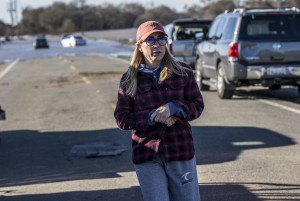
“I really thought I was going to die, to be honest,” Rachel Thorpe said after her husband Jamey came to her rescue on Sunday, Jan. 1, 2023 on Twin Cities Road near Highway 99. Thorpe was one of dozens of motorists who were stranded on south Sacramento County roads as the Cosumnes and Mokelumne rivers flooded following the major New Year’s Eve storm.

A truck drives through standing water on Highway 99 near the Dillard Road exit in Sacramento County on Sunday, Jan. 1, 2023, past abandoned vehicles pushed against guardrail by floodwaters. A four-mile section of the major state highway route is in the county’s 100-year floodplain. Three motorists died in the flood.
The flooding photo on the highway shows a key strength of effective breaking news photography: being in the right place at the right time. The photographer utilized smart lens choice to compress the scene and depth of field that directs the viewer’s attention. In addition, the photographer demonstrated a range of skills through the other images, such as storytelling drone photography in a news situation and showing the situation at a personal level.
JUDGES
Danny Gawlowski, visuals editor, The Seattle Times; Ellen M. Banner, visual journalist, The Seattle Times; Erika Schultz, visual journalist, The Seattle Times
For excellence in reporting that either uncovers news that would not be public or explains the context and import behind government decisions. This category recognizes journalism that takes a deeper look at the decisions made in the Capitol, the influences behind them, and their effect on the public. Enter coverage of a political story or policy topic aired as a series or in-depth stand-alone story. Entries may include live and/or recorded elements. Submissions may not exceed more than 20 minutes total.
WINNER
Julie Watts – CBS13
“Failed Policies: One suspect. Three agencies. Countless questions.”
Watts’s reporting offered strong investigative journalism that was thorough and in the community’s interest. She answered questions the public has a right to know and made the most of existing visuals to tell a compelling television story.
JUDGES
Jon D. Garcia, coordinating producer, White House unit, ABC News; Frances Wang, anchor and reporter, NBC Philadelphia; Kevin Riggs, retired Capitol reporter, KCRA Sacramento; Ethan Harp, content producer, NBC New York, and former reporter, KCRA Sacramento; Pamela Wu, former reporter and anchor, KCRA Sacramento, and director of news and media relations, UC Davis Health
For excellence in reporting about the Capitol, state government or the broader impact of state government decisions. Entries may focus on a single subject or a range of topics, each aired as a stand-alone story. Submissions may include up to three short pieces to exceed no more than 10 minutes total.
WINNER
Julie Watts and Byrhonda Lyons – CBS13/CalMatters
Judges said it was a good use of a former inmate’s story to illustrate the importance of rehab. The coverage made a good case for why CDCR should be willing to provide information to the legislature and public. The care and preparation that went into the production was evident.
JUDGES
Jon D. Garcia, coordinating producer, White House unit, ABC News; Frances Wang, anchor and reporter, NBC Philadelphia; Kevin Riggs, retired Capitol reporter, KCRA Sacramento; Ethan Harp, content producer, NBC New York, and former reporter, KCRA Sacramento; Pamela Wu, former reporter and anchor, KCRA Sacramento, and director of news and media relations, UC Davis Health








